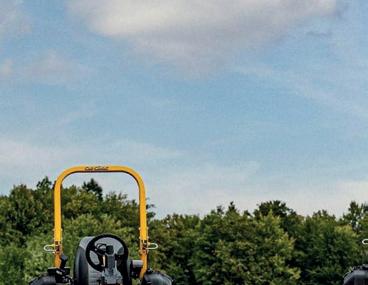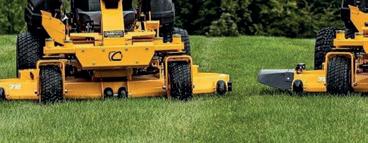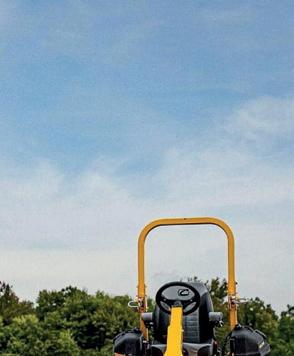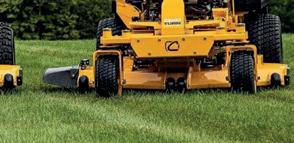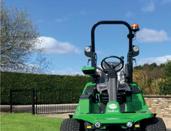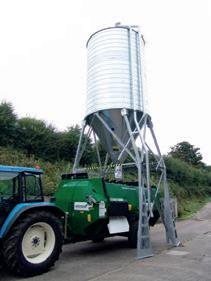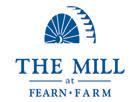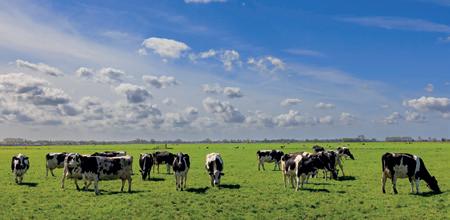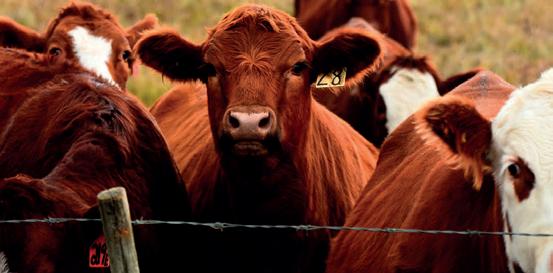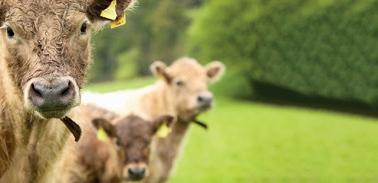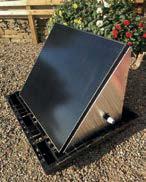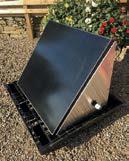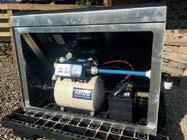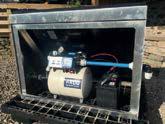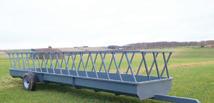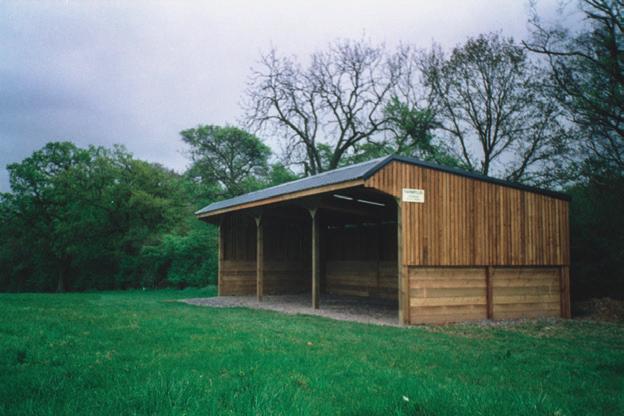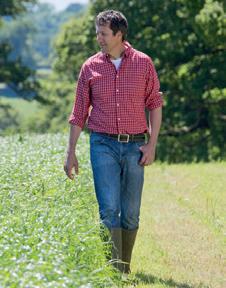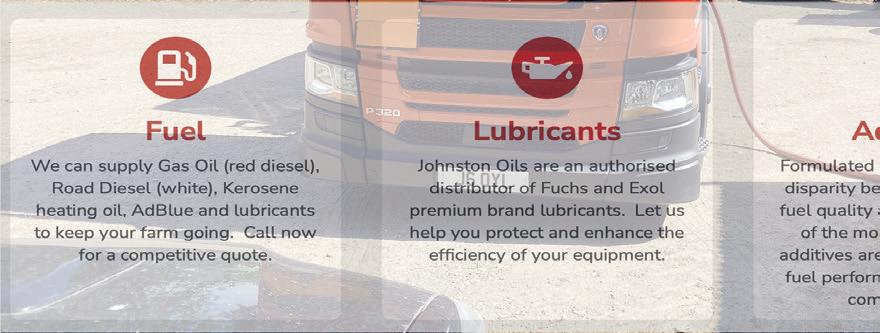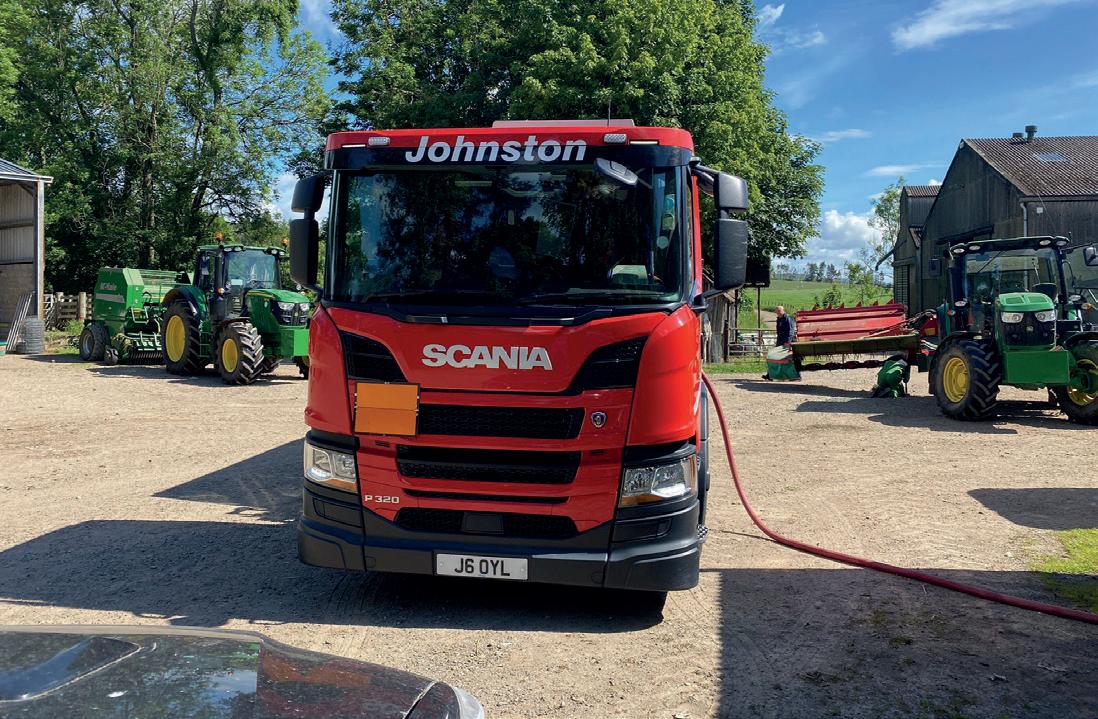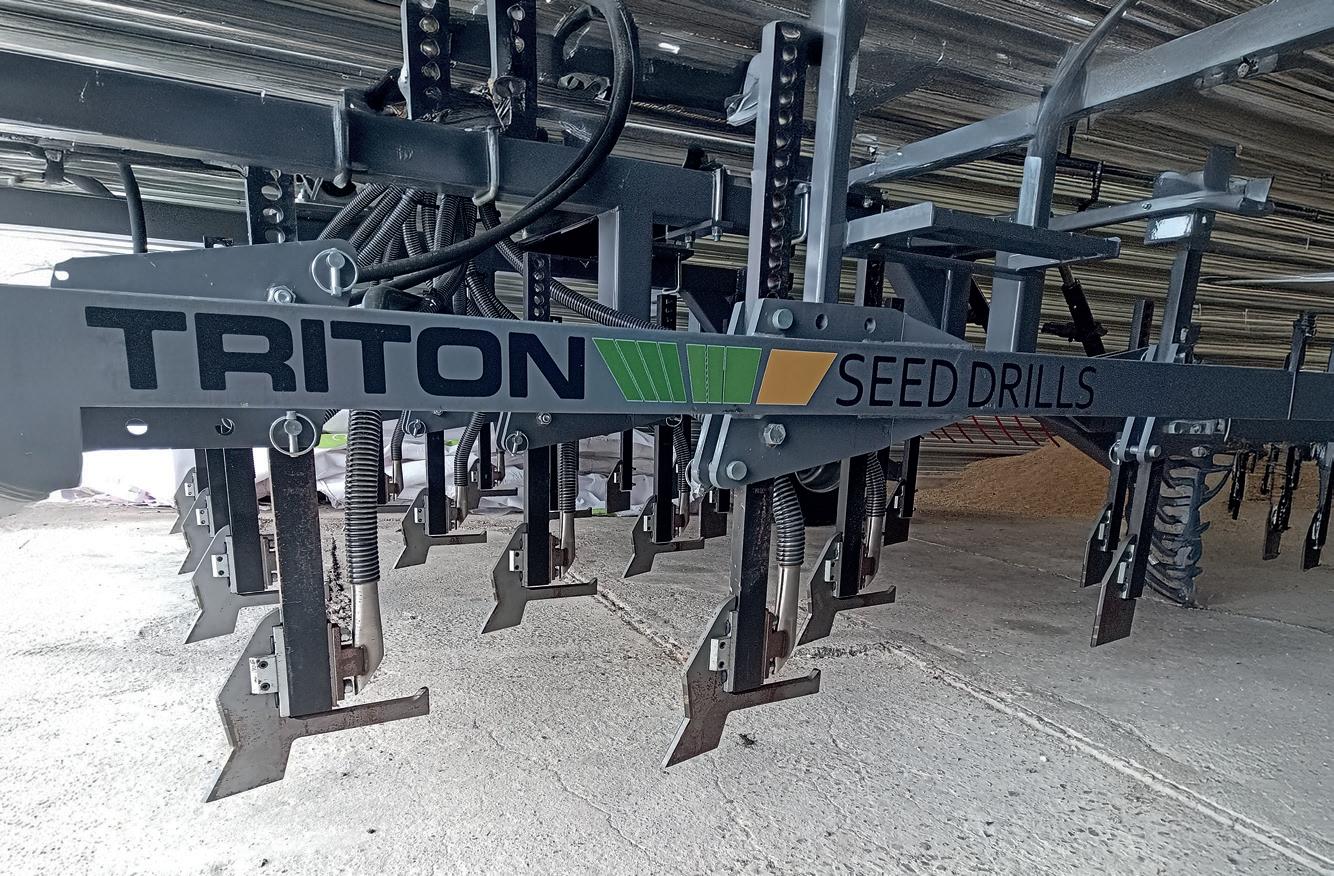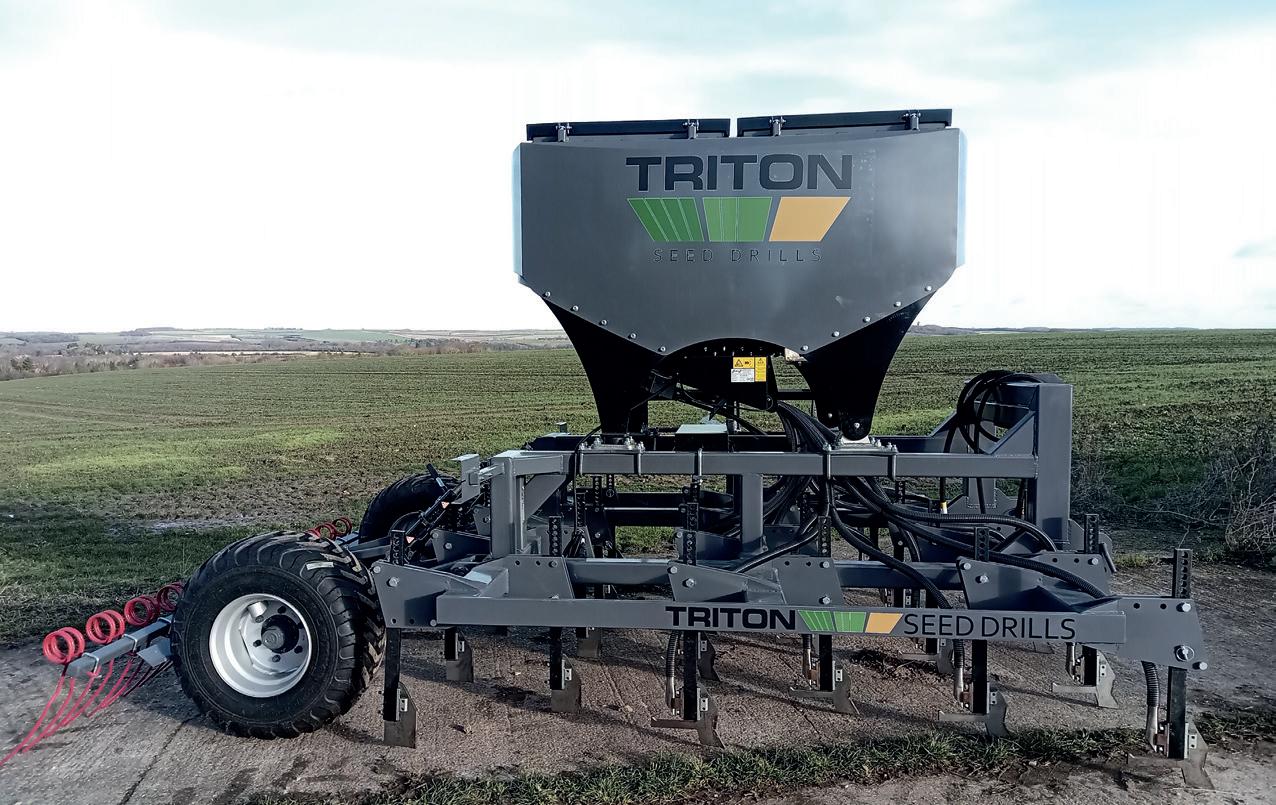LEADER
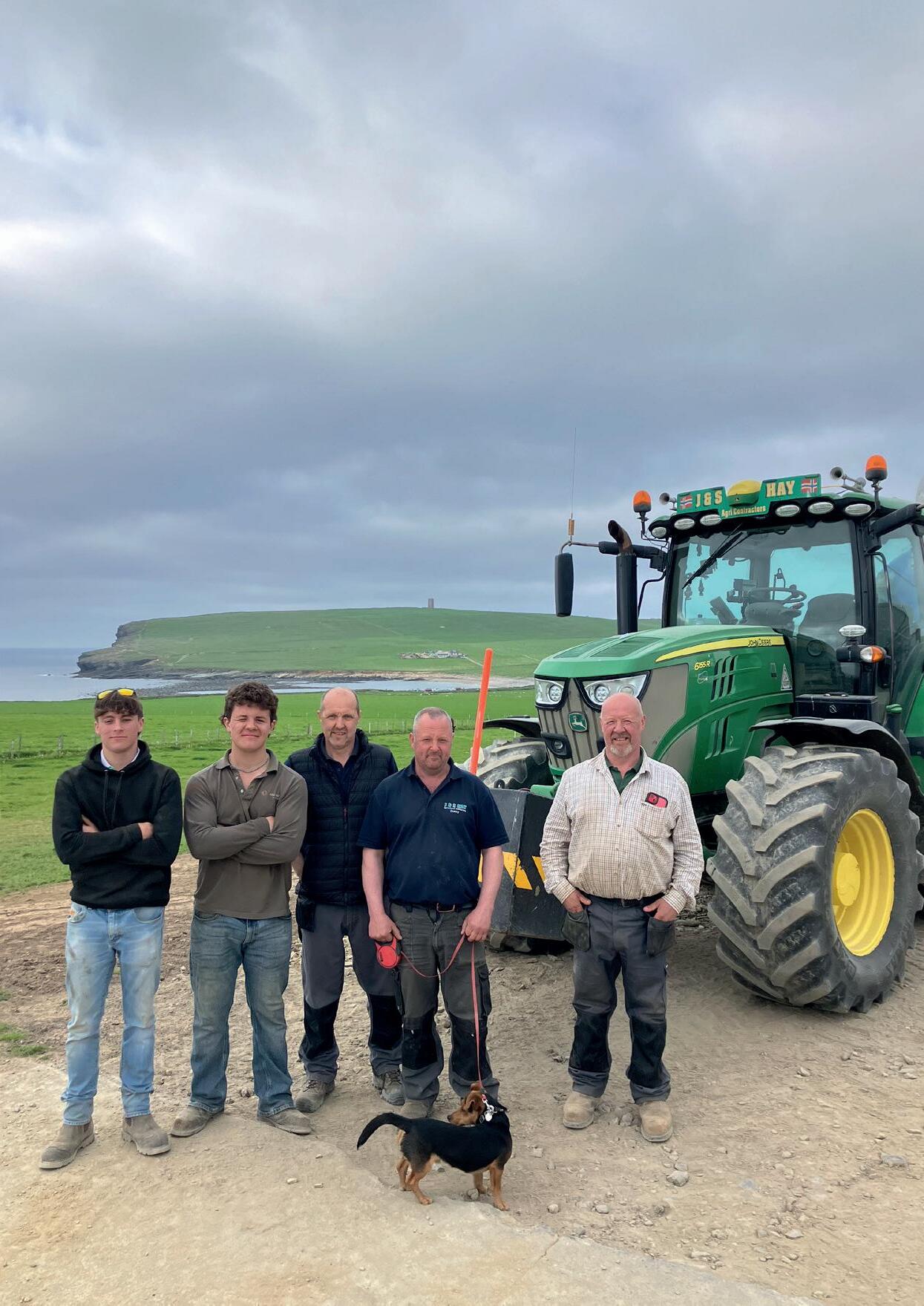


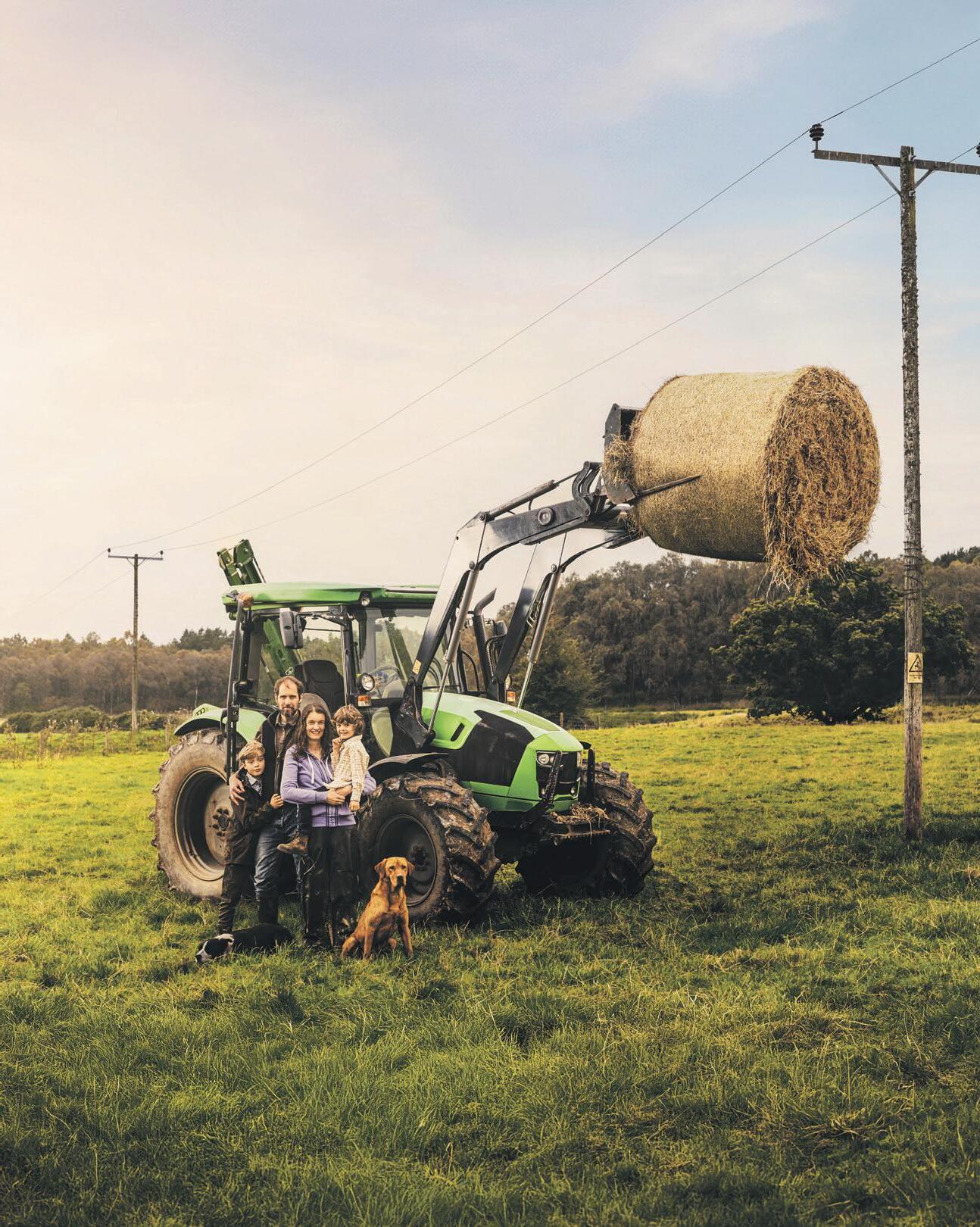
Before you head out on the farm, check for overhead power lines.
NFU Scotland, Rural Centre, West Mains Ingliston, Edinburgh EH28 8LT
NFU Scotland, Rural Centre, West Mains Ingliston, Edinburgh EH28 8LT

0131 472 4000
Tel: 0131 472 4000


OW often do you see or learn about something and think ‘I’m up for that’, but then
www.nfus.org.uk nfuscotland @NFUStweets

www.nfus.org.uk nfuscotland @NFUStweets @nfuscotland
Editor editor@nfus.org.uk
Design & Production
Hpositive thought/ silent commitment? Possibly too often or not at all.
Editor Diana McGowan editor@nfus.org.uk
Mark Shreeve mark.shreeve@micropress.co.uk
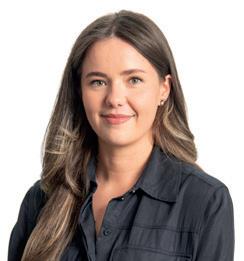
Andrew Hirst andrew.hirst@micropress.co.uk
Managing Editor
Craig Gibson
Advertising Sales
Design & Production
Danny Lewis 01502 725862 danny.lewis@micropress.co.uk
Ryan Swinney
Advertising Sales
Lawrence Kenny 01502 725860 lawrence.kenny@micropress.co.uk
Clare Stebbing clare@connect communications.co.uk
Tel: 0131 561 0024
In this month’s magazine, our two features cover inspiring stories and highlight just how rewarding delivering on such thoughts can be both for the individual involved and others who may benefit along the way.
With Diana McGowan now onto new pastures, I was delighted to take on Scottish Farming Leader duties for July. It’s been a whirlwind few months for NFU Scotland’s Communications Team, with Director Carly Ross joining us in May. Since then, we’ve worked hard to inject fresh ideas to the ways we keep you informed and connected.
Published on behalf of NFU Scotland by Connect Publications (Scotland) Ltd. Studio 2001, Mile End, 12 Seedhill Road, Paisley PA1 1JS
Published on behalf of NFU Scotland by COUNTRYWIDE PUBLICATIONS
Fountain Way, Reydon Business Park, Reydon, Suffolk IP18 6SZ 01502 725800
Printed by MICROPRESS PRINTERS LTD Fountain Way, Reydon Business Park, Reydon, Suffolk IP18 6SZ 01502 725800
We’re only a few weeks away from the Royal Highland Show. Over the course of four days, thousands will flock to the show to compete, judge, exhibit, organise, educate and socialise. We’ll see the best of the best and relish the atmosphere. Among the highlights and away from the main show ring, this year will see the welcome return of the Golden Shears Sheep Shearing and Woolhandling World Championships. Taking place at the MacRobert Theatre, the 2023 Worlds will see more than 30 countries compete for the prestigious title and it promises to be an action packed showcase of the art, skill and techniques required to be a world champion.
Last month, we marked the launch of our redesigned Weekly Update email, delivered straight to your mailbox every Friday. This new, more visual format was aimed at simplifying communication updates and focussing on what’s really important to your business. Alongside it, our Deputy CEO and Director of Policy Jonnie Hall, has been providing his ‘Friday Rundown’ vlogs. These short policy summaries are accessible via our social channels (NFU Scotland on Facebook; @nfuscotland on Instagram) and the Weekly Update itself. We would love to hear your feedback on both, please get in touch with the team at info@nfuscotland.co.uk.
Before Diana left us in June, she had the opportunity to visit a multitude of member farms and crofts in Orkney. From pedigree Luings to heritage barley and turbine-powered cottages, her visit showcased the grit, adaptability and ingenuity of the island’s farming community. You can read more about her time in Orkney on pages 29–34.
It was great to catch up with many of you again at the Royal Highland Show last month. Summer shows remain a vital chance for us to connect with members, listen to your concerns, and ensure your voices continue to shape our priorities as a Union.
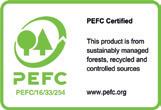
Perhaps a less well known event taking place at this year’s Highland is the final qualifying round of the 2023 Britain’s Fittest Farmer competition. Taking part in this event for the first time is Kyla Graham from Kirkcudbrightshire. Kyla first spotted the event at the Show last year and while watching it thought ‘I’m up for that’. Kyla knew however she couldn’t just enter there and then. Like any competition, she understood you need to be ready for it and without knowing if she would even enjoy it, she set her mind to it to finding out if she would. Kyla shares her journey from that moment to the present and highlights how she’s benefited already in so many ways both mentally and physically, and explains about the positive impact her preparation has had on her working life.
While part of the team welcomed you at the marquee, others took the opportunity to engage with stakeholders, press and politicians. A highlight was our Big Political Debate on Friday 20 June (see a recap on pages 16-18), where we brought MSPs together from all political parties currently in Holyrood. With the next Scottish Parliament election scheduled for 2026, this was an opportunity to hear how politicians plan to support agriculture in the next parliamentary term. Look out for a full event recap in next month’s issue, courtesy of our political team, Beatrice Morrice and Al Walker. Thank you to all who attended and engaged with online coverage.
The other feature looks at how a casual conversation during a Christmas lunch turned into the most rewarding and humbling experience for Next Generation Chair, Matthew Steel, one of the many volunteers who have recently delivered much needed 4x4 vehicles to Ukraine to support the war effort. Matthew explains his contribution to the ‘Pickups for Peace’ campaign and reflects on how the unexpected reception received from the Ukrainians has impacted him and those who were involved.
DIANA McGOWAN, Editor, Scottish Farming Leader
Elsewhere at the Show, our team worked hard to share exciting new benefits, schemes and discounts, including our exclusive UK Fuels fuel card which could save you around 15ppl on diesel! More on page 9.
To save even more, check out our Member Referral Scheme (see page 42). For a limited time only, you’ll receive 10% off your 2026 membership for each new member you refer. Refer ten, and your membership next year could be completely free! Not only is this a great way to save, but it also helps strengthen our collective voice when lobbying on behalf of Scottish agriculture.
Finally, as we head towards the longest day, with the hope of some warmer weather on the horizon, I hope you’re remembering to dress for the weather and wear protective sunscreen and hat when you’re out and about. The strength of the sun even on a dull day can prove harmful if exposed without protection. If you need a new baseball cap, visit the NFU Scotland website and purchase one from the branded merchandise in the Members’ Benefits section.
As we move into July, I hope all find a moment to unwind and enjoy the summer. With a bit of luck, the good weather we saw in June will carry on through the rest of the show season.
news on Facebook or follow us on Twitter @NFUStweets
For the weekly news sent to your email, please send your name and membership number to info@nfus.org.uk
“We’ll see the best of the best and relish the atmosphere”
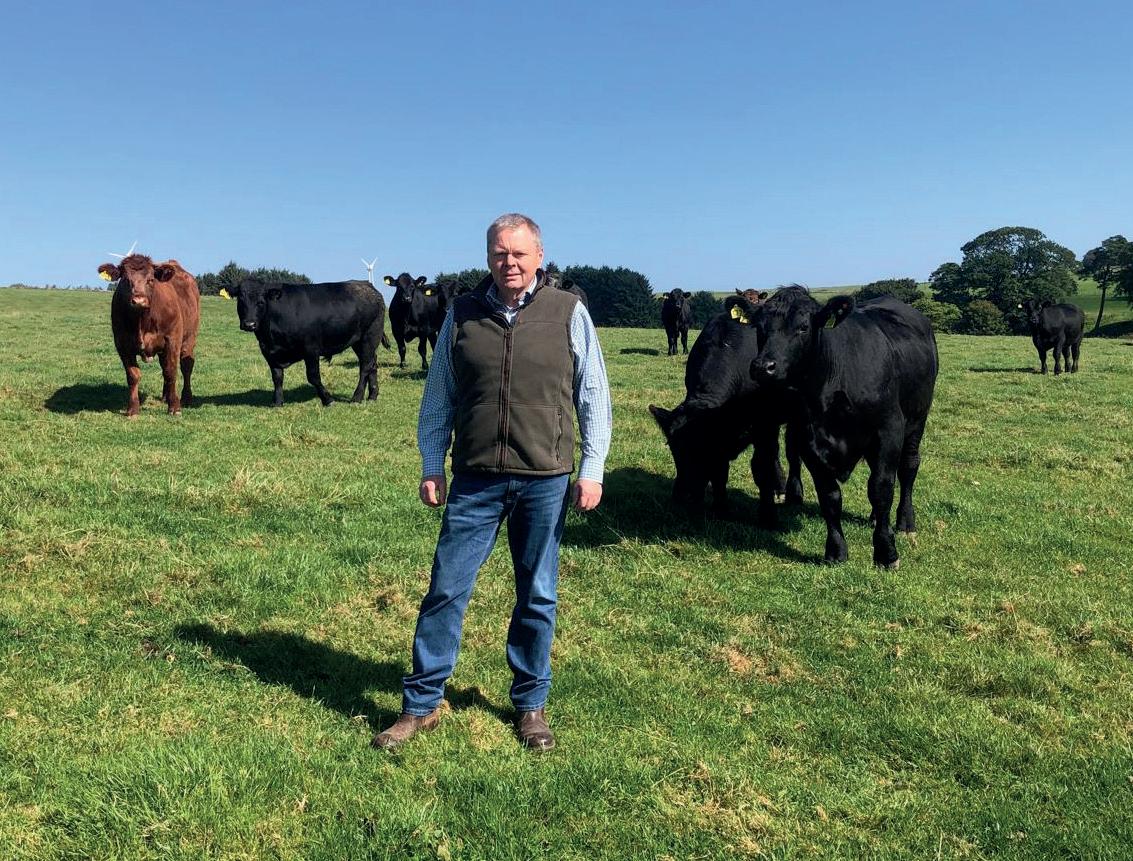
Connon

WKeep up to date with all the news on Facebook or follow us on @NFUStweets and @NFUStweets

For the weekly news sent to your email, please send your name and membership number to info@nfus.org.uk
hat a difference a month makes. In my last Leader article, I highlighted the severe drought affecting much of the country and the significant impact it was having on crops and farmer morale. Thankfully, the much-needed rain has arrived. While it was too late to prevent yield penalties for many spring barley crops, the rainfall has been a huge relief. The threat of abstraction bans has lifted, tattie crops look fantastic, and although lifting carrots after two inches of rain proved challenging for one member, overall conditions have improved considerably.
The Climate Change Committee recently published advice to the Scottish Government that included the staggering recommendation of a 26% reduction in cattle and sheep numbers. Thankfully, these
remain only recommendations. I trust our persistent lobbying on the importance of maintaining critical livestock numbers will be listened to. We have long emphasised the need for critical mass to support our supply chains. The recent closure of ScotBeef Inverurie is a stark example of the consequences of running abattoirs at just 74% capacity. The beef sector, in particular, continues to suffer from poor financial returns, a lack of long-term confidence, and a government focus on tree planting, alongside succession challenges and labour shortages.
At the recent Highland Sheep event, I challenged Minister Fairlie to make a strong, clear commitment to support and maintain livestock numbers and we will keep pushing for that. I also called for a reset in the climate change debate. We urgently need the facts and real science on the table, a full understanding of sequestration,
the carbon and methane cycles, and the role of carbon calculators. We must listen to internationally respected scientists. While we highlighted these points at a recent Climate Change Committee meeting, there’s no denying the scale of the challenge ahead. Governments need to accept that food production carries a footprint: there are no freebies.
A recent meeting with Food Standards Scotland was very productive, allowing us to discuss public health, diets, the benefits of red meat, trade agreements, import standards (including grain), labelling, illegal imports such as eggs, food safety, public procurement, and the Good Food Nation Bill.
Engagement with retailers and processors continues, with ongoing concerns around shelf availability, supply issues, overregulation andFL J notably, the immoral price disparity within sectors, particularly milk.

































































































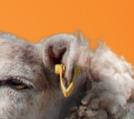



























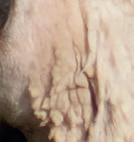


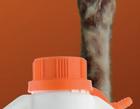


Speak to your prescriber now, about when to include Zolvix as a mid-late season break dose and as a quarantine treatment. Find out more about Zolvix. References: 1.










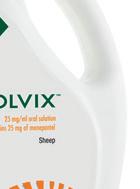
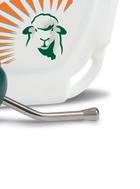
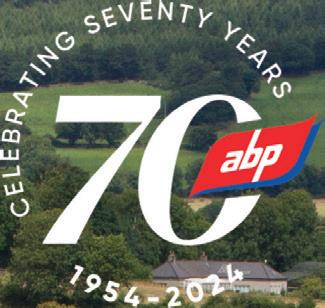
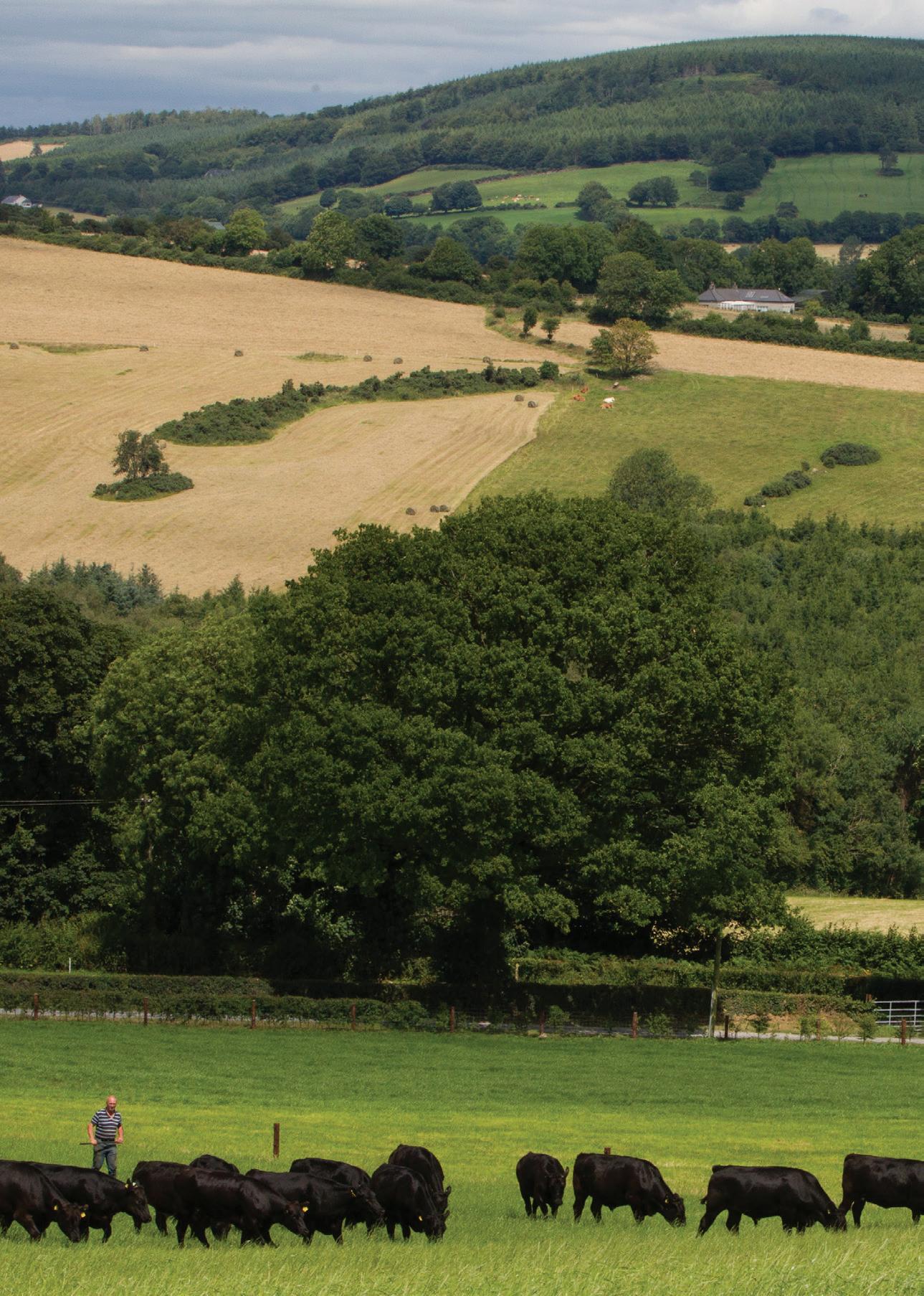
In these uncertain times, some things have not changed:
WEIGH DAY. PAY DAY. SAME DAY.

TDuncan Macalister Vice President
he past few weeks have underlined just how important it is for NFU Scotland to be in sector discussions across the board.
I recently had the opportunity to meet with NatureScot, both informally with board members on Mull and more formally at its Head Offi ce in Inverness with President Andrew Connon. Each of those conversations gave me a clearer understanding of NatureScot’s challenges and how it should work with farmers and crofters to deliver on ambitions. It was this same message that came through in a meeting with The Scottish Environment Protection Agency’s (SEPA). Likewise,

Hthe team fully recognised that SEPA’s targets could only be met in partnership with the agricultural sector.
Elsewhere, I met with Scotland’s large landowners group, who expressed willingness to let more land but made clear this depends on a stable Scottish fi scal policy. At my fi rst Agriculture Reform Implementation Oversight Board (ARIOB) meeting, it was clear why NFUS must be at the heart of policymaking, infl uencing decisions that shape the future of rural Scotland.
It was also a privilege to chair the inaugural Next Generation Summit. I left encouraged by the energy in the room and the shared determination among attendees to tackle the issues
Robert Neill Vice President
arvest 2025 is just around the corner, and once the combines get going, we’ll fi nd out what impact the dry spring has had on crops. We’d like to think that lower yields might lead to better prices but the downturn in demand, driven by reduced livestock numbers and a slowing of whisky exports, means cereal prices could remain under pressure.
We’re also contending with increasing imports of grain and oilseed rape landing on our shores but concerns around the quality assurance of these imported commodities remain. It’s hard to ignore the fact that European farmers are still
allowed to use neonicotinoids pesticides to grow oilseed rape, while these products are now banned in the UK due to its adverse eff ects on bees. That doesn’t feel like a fair playing fi eld.
On the livestock front, we’re now into July and England has moved into a full, country-wide Bluetongue zone. That’s making crossborder movements and trade increasingly diffi cult. Cattle prices have slipped with the number of young bulls coming forward. Hopefully, as we move further through the summer and supply tightens, prices will pick back up.
If livestock farmers can continue to get a fair price for their products, it might encourage more to increase


and fi nd practical solutions. As always, I’m dedicated to champion agricultural safety.
The NFU Mutual Rural Crime Report 2025, reminded us that machinery and livestock theft remains an increasing threat. As we work closely
with Scottish Partnership Against Rural Crime (SPARC) to prevent future incidents, members were encouraged to remain vigilant. Please make time every day to think about safety for your team, your family and for yourself.

numbers and help maintain a strong supply of high-quality Scottish meat. We should be striving to be more selfsuffi cient in meat production and not listening to the
Climate Change Committee, who want to see livestock numbers reduced.
Scottish livestock are part of the solution to climate issues, not the problem.
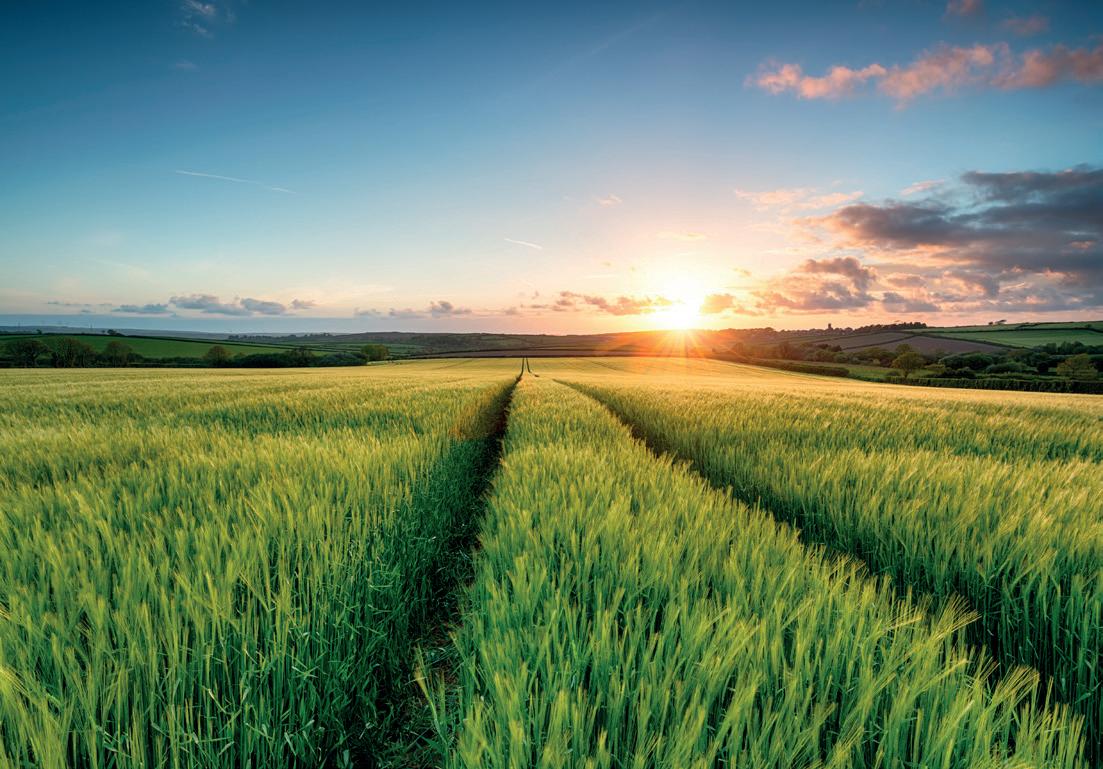
Changes to how you access grain passports have been introduced by Scottish Quality Crops (SQC) and Food Integrity Assurance (FIA).
This year, instead of receiving paper grain harvest passports via the post, these documents have been made available to download online. Growers can then print passports from the new FIA Auditee Portal as required.
Please note: This online version is not a digital passport. It should be downloaded and used in exactly the
same way as previous paper passports. From 2 June, you should have received an email from no-reply@foodassurance.co.uk containing details on how to register and login to the portal. A second email should then have been sent from agriculture@foodassurance.co.uk, informing you that your SQC Grain Passport was available to view and download from the FIA Auditee Portal. Following receipt of the above email, you should have logged into this portal and downloaded your passport ready to print.
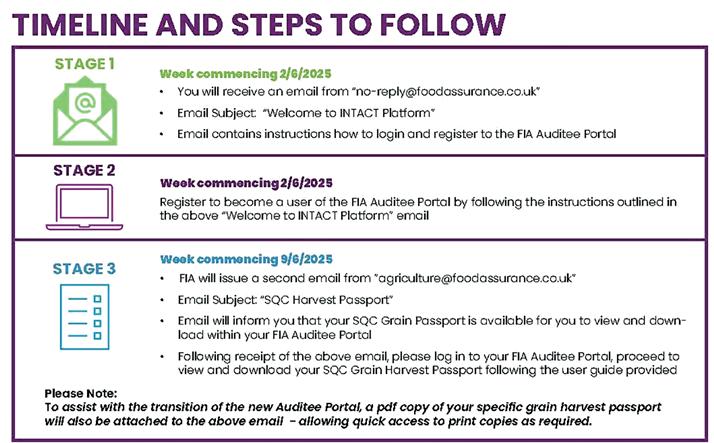

If you did not receive this email in June, please take the following steps:
1. Check your junk email folder.
2. Ensure your mailbox is not full and preventing incoming emails.
3. If you still have no FIA email after completing the above, contact the team on 0131 609 0558 or info@foodassurance.co.uk.
This advance was intended to save significant time, cost and resource for SQC, as well as reduce paper waste. By keeping running costs low, SQC’s ability to keep membership fees down can be increased.
Not only was this a significant improvement to internal processes but it very much aligned to the recent Farm Assurance Review report recommendations. This research found it beneficial for all assurance and certification bodies to adopt technology in order to simplify processes and minimise disruption to growers.
On 19 May, the UK and EU agreed a new Strategic Partnership. As part of the deal, the European Commission and the United Kingdom agree to work towards a Common Sanitary and Phytosanitary Area (SPS) agreement in respect of Great Britain, in order to ease the administration on checks of agri-food traded between GB and the EU.
An SPS agreement aims to facilitate trade in animal and plant derived agrifood products and can take several different forms e.g. establishing a mechanism for the recognition of equivalence of relevant sanitary and phytosanitary (SPS) measures operating within the parties, or an agreement that sees one party accept to follow and implement the rules of another.
The UK and EU have agreed a Common Understanding document which sets out the terms of their SPS negotiations. The UK has agreed to dynamically align on sanitary, phytosanitary, food safety, general consumer protection rules applicable to the production, distribution and consumption of agri-food products, the regulation of live animals and pesticides, the rules on organics as well as marketing standards applicable to certain sectors or products. Dynamic alignment means having a single rule book on the agreed
Members have reported average savings of 15ppl on diesel through our UK Fuels fuel card.
Exclusively available to Union members, the free card can be used at over 7,200 fuel stations across the country including Shell, Esso, BP, Morrisons, Tesco, Sainsbury’s, Applegreen, Texaco, Moto and many more!

areas of law in scope of the agreement. As a result of an SPS agreement, the vast majority of movements of animals, animal products, plants, and plant products between Great Britain and the European Union could be undertaken without SPS certificates and checks.
The UK will make a financial contribution in return for having access to decision making committees, databases, data etc but it won’t have the right to vote as any other Member State. In case of disagreement over rules in scope of the agreement, the EU Court of Justice will have the final say with regard to the interpretation of the EU rules.
In the coming weeks and months, the UK and EU will negotiate the details of the SPS agreement, for instance the pieces of EU legislation in scope and the exceptions to dynamic alignment. Until negotiations with the EU are concluded, and the necessary legislative changes are introduced into UK law, the current arrangements remain in place.
Over the coming months, the BAB team in Brussels will continue to follow the EU-UK negotiations on an SPS agreement, and the implications for British farmers.
You could benefit from:
• Fixed weekly commercial diesel price with annual average savings of pump price minus 15ppl.
• Unleaded will be charged at the pump price minus 1ppl.
• No contract, account charges or card charges.

• Online account management using the Velocity app and website.
• Ability to plan journeys with E-route via smartphone or SatNav.
• Simple weekly invoicing paid via direct debit.
Apply today via the quick and easy form here:

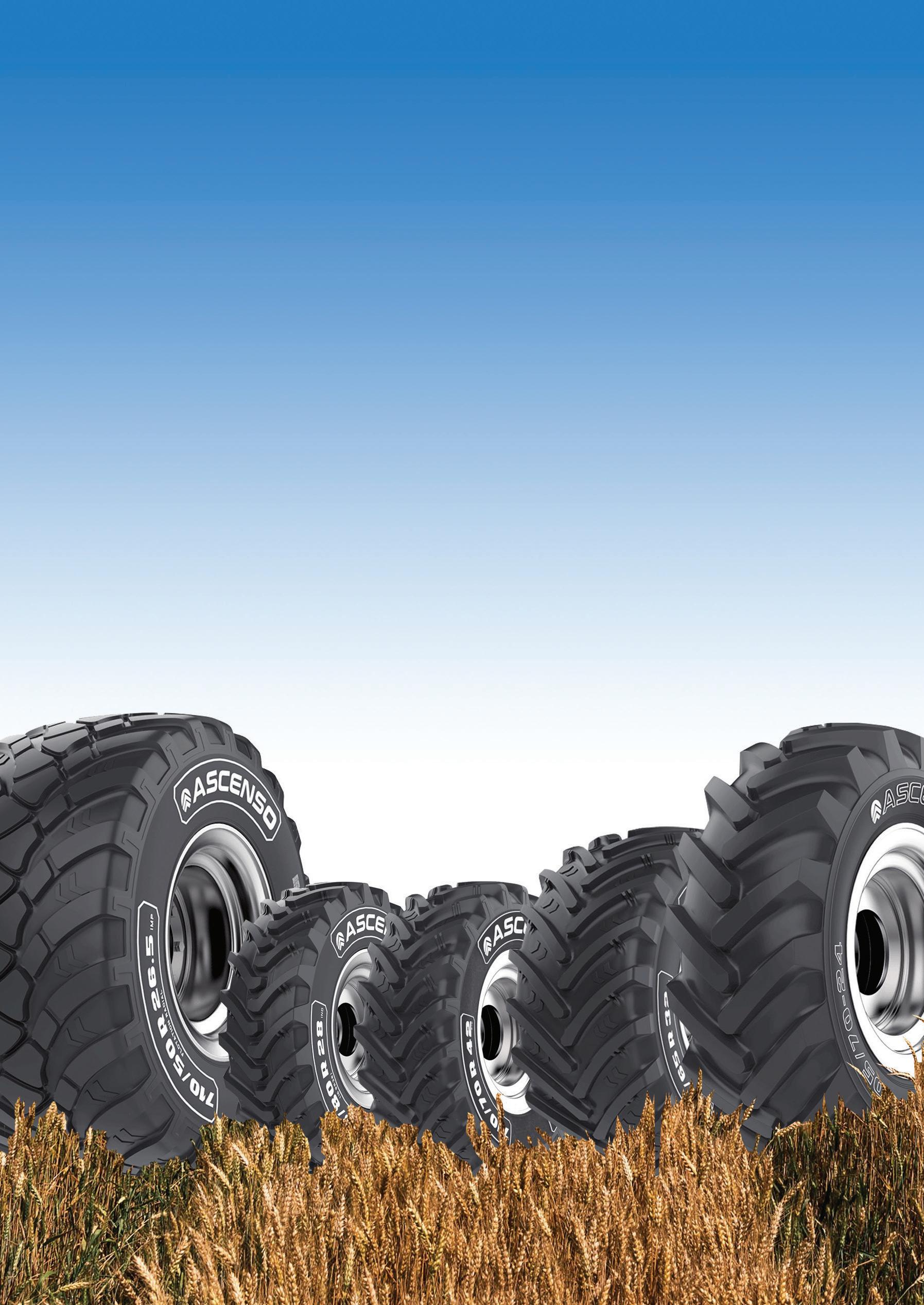



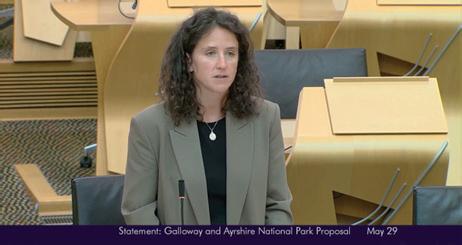
NFU Scotland welcomed the Scottish Government’s decision not to designate a National Park in Galloway. Addressing Holyrood on 30 May, Cabinet Secretary for Rural Affairs, Land Reform and Islands Mairi Gougeon MSP confirmed 57% of local residents opposed the designation through NatureScot’s public consultation.
NFU Scotland has long voiced significant concerns over the Galloway proposal, particularly around governance, duplication of existing regulation and the risk of increased restrictions on productive land. The Union emphasised that while landscape, nature and tourism are all vital, they must work hand in hand with sustainable food production rather than conflict with it.
“This is a sensible outcome,” said Dumfries & Galloway Chair Stewart Wyllie. “We’ve always said we don’t need a National Park designation to deliver for the environment, economy and community. Farmers and crofters here are already doing that every day.”
Sincere thanks to all members who took time to engage in the process, whether by responding to NatureScot directly, completing our survey, attending consultation events or spreading the word. The outcome in May was a reflection of views held by the majority of our members and our formal response to NatureScot. While this was a passionate debate, voicing all concerns was ultimately vital in reaching this conclusion.
President Andrew Connon said: “We’re grateful to every member who made their voice heard. This decision reflects the strength of community input. NFUS remains fully committed to supporting positive rural development but it must be rooted in local priorities and driven by those who live and work on the land.”
The Union will continue to monitor other areas under consideration for National Park status, ensuring farmers and crofters are at the heart of any future proposals. We thank NatureScot for its close engagement throughout the consultation process.

Refer a new member to us and save 10% on your 2026
For a limited time only, you could save up to 100% on your 2026 NFU Scotland membership fees. Launched in May, our Member Referral Scheme offers a 10% 2026 fee discount to existing members that refer a successful new member.
Refer 10 new members? Pay nothing next year.
We want to empower members to grow our Union - and get rewarded for it. With more voices, our collective lobbying efforts are strengthened in Holyrood, Westminster, the media and beyond.
How to refer:
1. Speak to your prospective member – tell them about the benefits of joining NFU Scotland and encourage them to sign up.
2. When they’re ready to join, complete the application form at joinnfus.org.uk, including your name and membership number.
3. Alternatively, the new member can sign-up themselves at joinnfus. org.uk. Make sure they enter your name and membership number during the signup process to make sure you get the credit.
The deadline for referrals is 15 October 2025. All successful referrals will be verified and matched before final 2026 fees are issued. Let’s unite to shape the future of Scottish agriculture and make sure your neighbours, friends and colleagues are part of it. Scan the QR Code or visit joinnfus.org.uk to start referring today.

‘A predictable, enhanced multi-annual budget is essential’ says President Andrew Connon following UK Spending Review
NFU Scotland has called on the Scottish Government to urgently provide a multiannual funding commitment for agriculture. On 11 June, the UK Government’s Spending Review provided much-needed certainty to devolved governments in order to set their multi-year budgets. With the Review, the Scottish
Government was given funding allocations for the next three fi nancial years. With this, the Union urged a three-year support commitment be provided to Scottish agriculture, warning that a lack of long-term budget clarity risks undermining the delivery of future policy.
Currently, there is no confirmed Scottish Government budget for farm
support beyond the current financial year. We believed long-term funding clarity would give the sector confidence to move forward and deliver the outcomes government and public expect.
In the meantime, we continue to work closely with Scottish Government Ministers and officials to ensure farmers and crofters get the support they need to thrive and deliver.

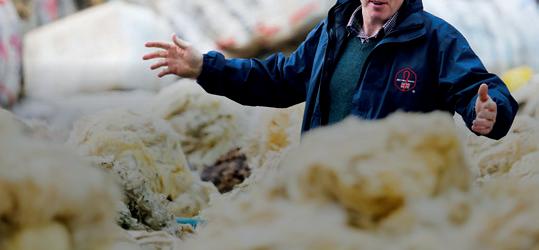


100+
90%
Providing













































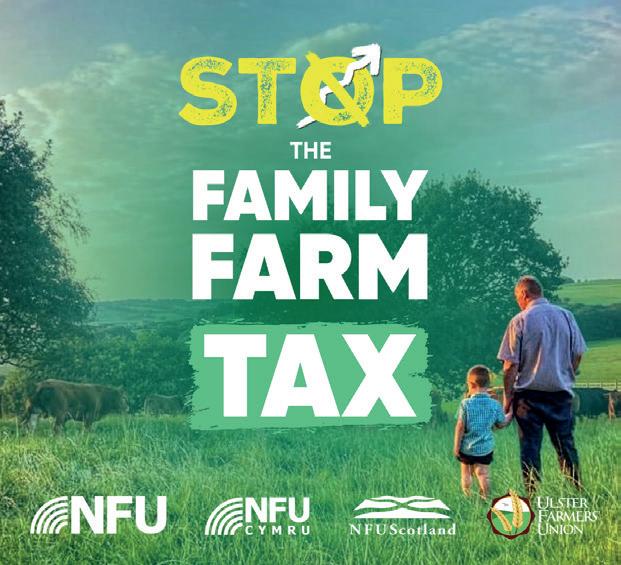
Amajor Westminster intervention was welcomed by the Union while the campaign to hault proposed changes to inheritance tax (IHT) continues. The Environment, Food and Rural Affairs (EFRA) Committee called for a pause to proposed changes to IHT reliefs. This move aligned closely with all UK Farming Union’s longstanding lobbying efforts.
The cross-party report, published mid-May, highlighted serious concerns over the lack of consultation, absence of impact assessment and potential negative consequences for family farms, tenant farmers and food security. The Committee’s call for a full impact assessment complemented the ongoing Farm Profitability Review, led by Baroness Minette Batters, which NFU Scotland believed must inform any future tax decisions affecting agriculture.
The EFRA report calls for the UK Government to:
• Delay IHT reforms until October 2026, with changes taking effect no earlier than April 2027.
• Conduct full consultation and evaluation of the impact on profitability, land values, tenant farming and rural viability.
• Consider alternatives to the cap, such as clawback provisions, that protect family farm continuity.
“This report is a vindication of everything we’ve said since January,” said NFU Scotland President Andrew Connon. “Our farmers, crofters and growers have faced months of anxiety, not just about future planning but about survival. The EFRA Committee has now echoed our call to pause and rethink these damaging proposals. We thank them for listening and we urge HM Treasury to do the same.”
The Union has consistently argued that IHT reliefs have been crucial in ensuring intergenerational succession for agricultural businesses. Alongside NFU, NFU Cymru and Ulster Farmers Union, NFU Scotland made formal submissions to EFRA earlier this year, outlining how reforms could lead to unintended consequences, including forced sales or land fragmentation.
We are now urging the UK Government to accept the EFRA Committee’s recommendations and to consult meaningfully with the agricultural sector before introducing any changes. NFU Scotland will continue working closely with policymakers and fellow unions to ensure any future tax reform recognises the strategic importance of food production and the unique needs of rural communities.
The Scottish Government has released updated greenhouse gas emissions figures, showing record low levels for the agricultural sector. Emissions have fallen by 13% between 1990 and 2023. The data, published on 11 June, highlights the sector’s consistent progress in cutting emissions while continuing to produce high-quality food.
NFU Scotland welcomed the news as timely recognition of the environmental work being delivered on farms and crofts across the country.
“This is a reminder that Scottish farmers and crofters are already playing their part in tackling climate change,” said NFUS President Andrew Connon. “We are producing more with less, improving efficiency, restoring habitats and managing the land in ways that lock in carbon and boost biodiversity.”
The figures came just weeks after the UK Climate Change Committee (CCC) issued its latest carbon budget advice, calling for more ambitious emissions reductions from the agriculture sector. NFUS raised concerns that the CCC’s report lacked a realistic implementation plan and risked placing unfair pressure on farming without the support it needs to adapt.
“These new statistics show what’s possible when government and industry work together,” Connon added. “But we need policies that support climate ambition without undermining food security or rural livelihoods.”
We have continued to call for accelerated delivery of the Agriculture and Rural Communities Bill, longterm funding clarity and practical measures that reward low-carbon farming. The Union has also engaged with Scottish and UK Governments to ensure future climate targets are fair, evidence-based and enable agriculture to lead carbon reduction.
Following reports of high volumes of foreign meat on supermarket shelves, NFU Scotland released a statement of concern. The widespread substitution of Scottish and British meat in favour of cheaper imports, was labelled “incredibly disappointing” by President Andrew Connon.
Since its existence, our ShelfWatch campaign has tracked sourcing patterns in eight major Scottish retailers. In all four phases of research, opportunity to increase supermarket support for Scottish farmers and crofters has been identified. That represents money which could be reinvested into farm businesses, supply chains and rural communities.
Taking concerns directly to retailers, the Union team held talks with several retailers at the Royal Highland Show in June. Our position has always been clear – we want to work with supermarkets and the wider supply chain to deliver for Scotland’s farmers, crofters and growers.
NFU Scotland was delighted to welcome members, stakeholders, retailers, and politicians to the Royal Highland Show in June. Over the four days, the Union hosted high-level meetings with a wide range of decisionmakers including First Minister John Swinney MSP and Secretary of State for Scotland Ian Murray MP. This political engagement extended across parties, reflecting NFU Scotland’s commitment to constructive dialogue at all levels of government.
In parallel, the Union also met with food retailers: Aldi, Asda, M&S Food and Tesco, to push for stronger sourcing commitments and supply chain transparency. President Andrew Connon used these conversations to reiterate NFU Scotland’s core retail asks, focusing on fairness, origin labelling and the economic viability of primary producers.
Friday 20 June marked a key milestone as NFU Scotland hosted its first-ever Big Political Debate in the shared marquee with NFU Mutual. The event brought together representatives from major political parties to debate the future of Scottish agriculture and rural policy. With a strong public turnout and online engagement, the debate underscored NFU Scotland’s growing role as a convenor of rural conversation.
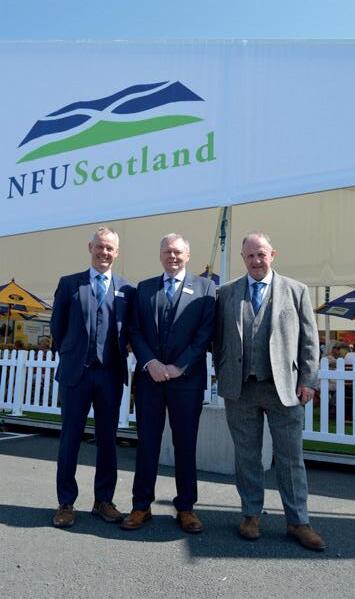
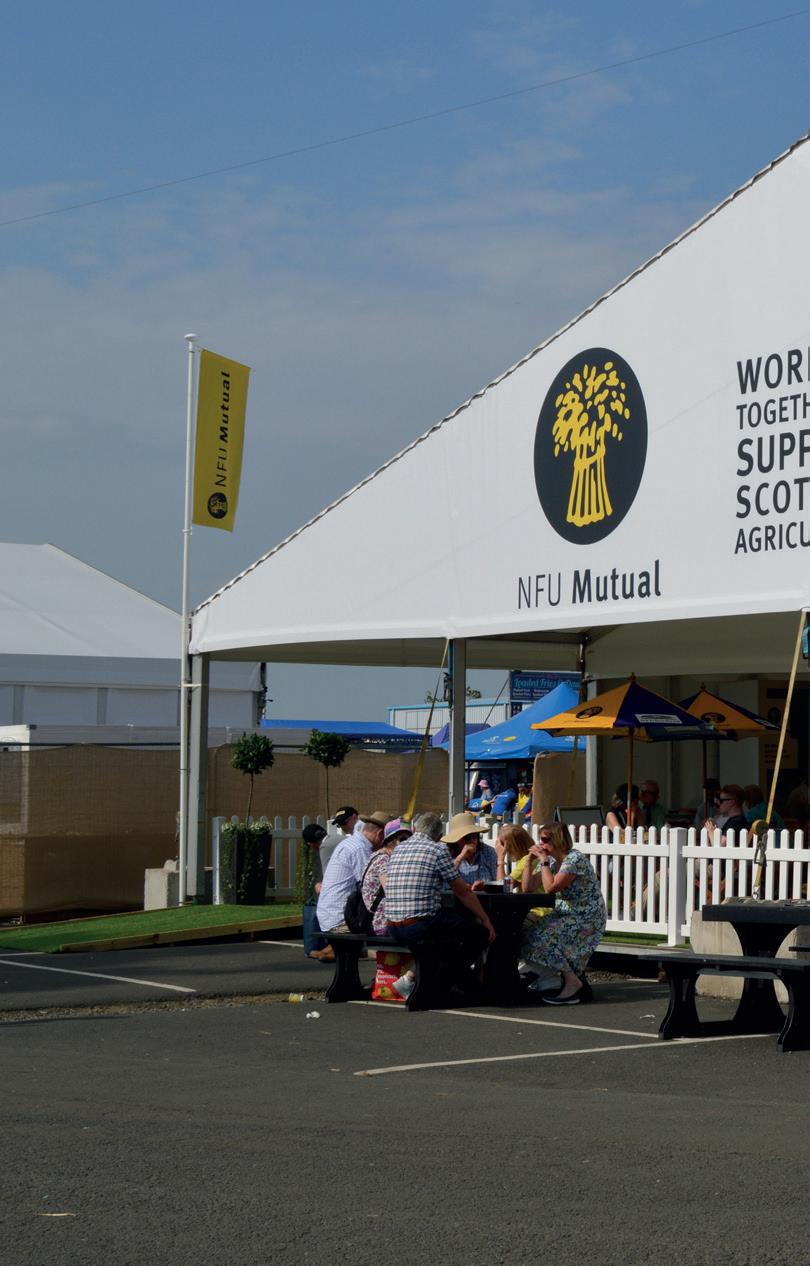
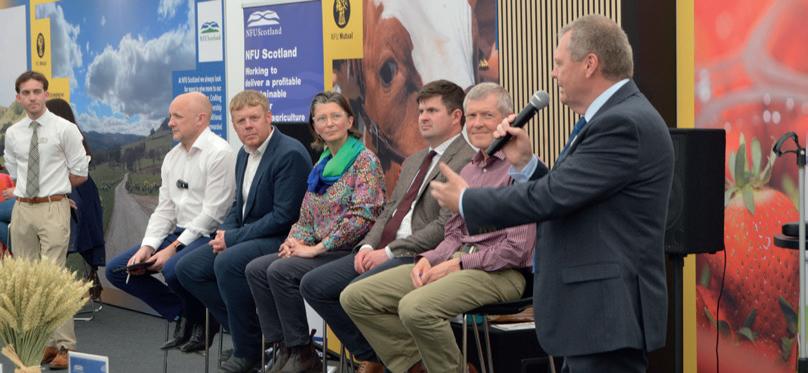
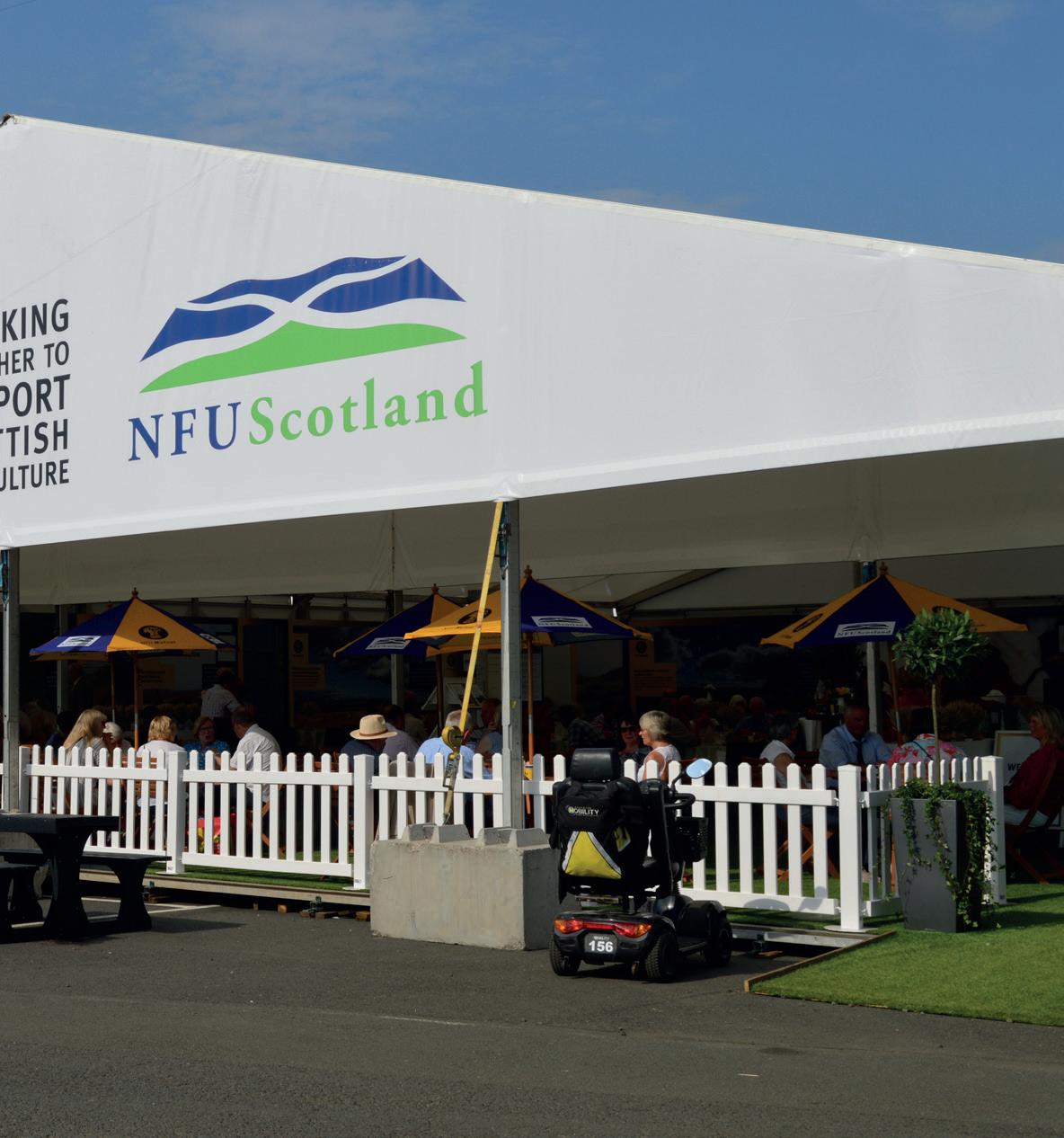
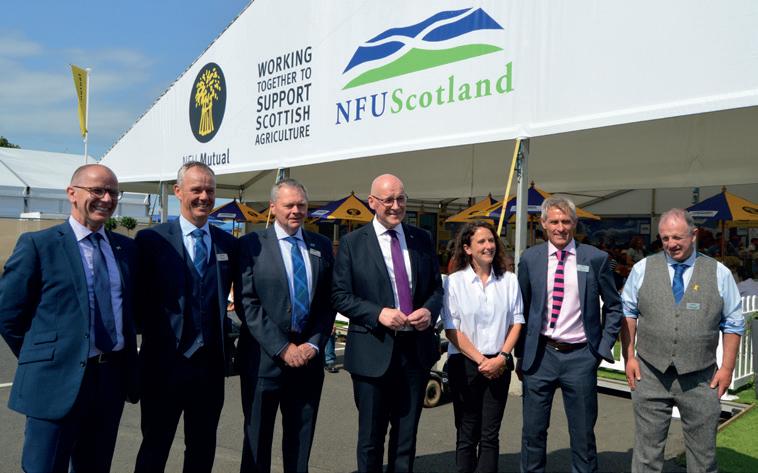
Beyond formal meetings, the Show was a hub for member engagement, informal networking and showcasing Scottish farming’s contribution to climate action, food security and the rural economy. With agriculture high on the policy agenda, NFU Scotland’s presence at the Show reaffirmed its influence and commitment to securing a profitable, sustainable future for Scottish farmers and crofters.
Look-out for a further rundown of the Royal Highland Show 2025 in the August issue.



Beatrice Morrice Head of External Affairs



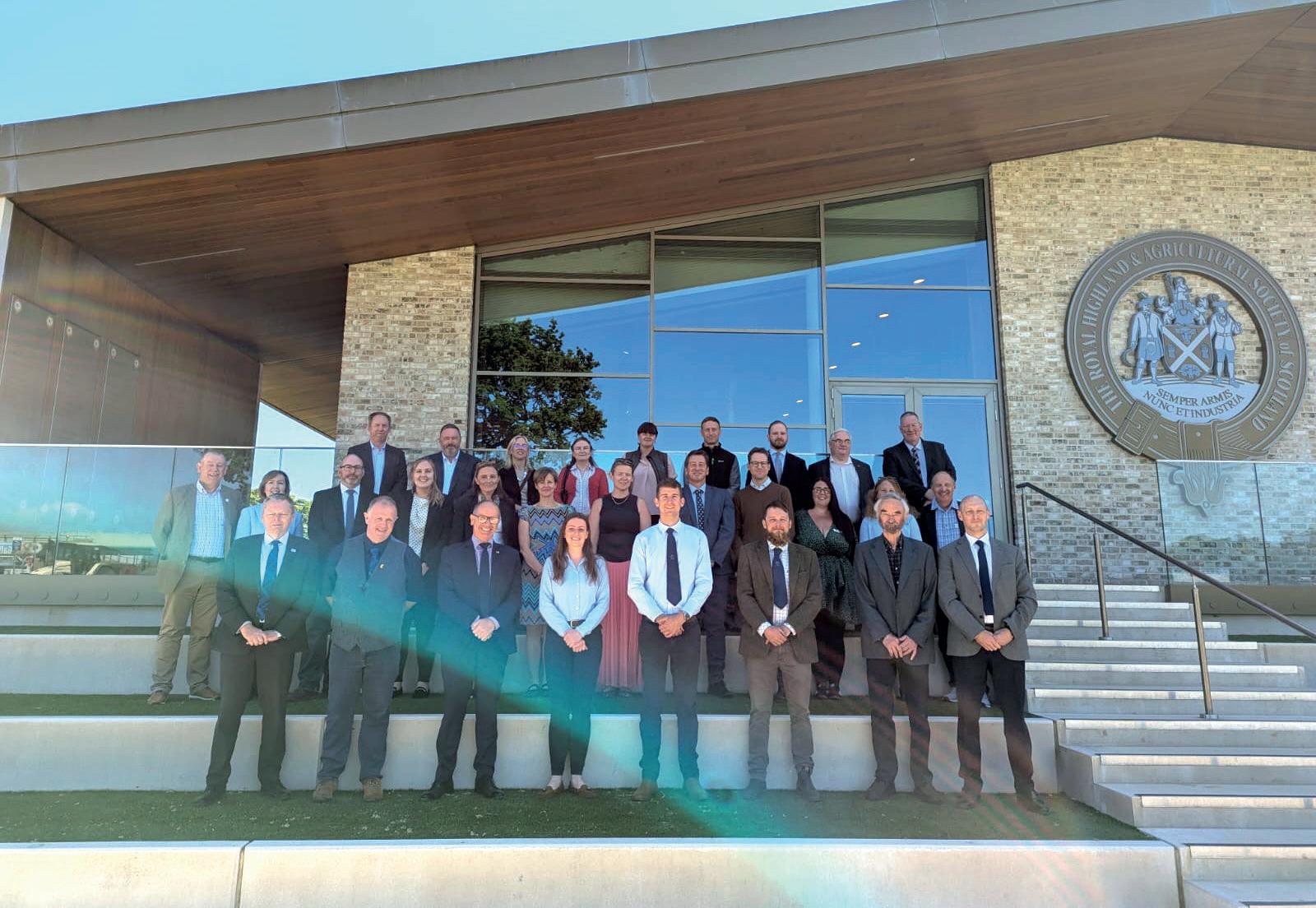
Last month, NFU Scotland and the Scottish Government held its ‘Supporting the Next Generation of Scottish Farmers and Crofters Summit’ in Ingliston. Barriers to our next generation and new entrants, such as access to funding, access to land upskilling and training opportunities,
were all discussed at the meeting in The Pavilion at Ingliston. Next generation farmers and representatives from the Scottish Association of Young Farmers Clubs, were joined by the Minister for Agriculture and Connectivity Jim Fairlie MSP, Scottish Government offi cials, banking representatives,
large landowners, and stakeholders who off er training and skills to support and develop our next generation. The Minister announced funding support for our sector, re-launching the Practical Training Fund and the Land-Based Pre-Apprenticeship Programme, which we welcomed.
NFU Scotland has welcomed a recent report by the House of Commons Environment, Food and Rural Affairs (EFRA) Committee, which urges the UK Government to pause proposed changes to inheritance tax (IHT). The Committee raised serious concerns over the lack of consultation, the absence of a proper impact assessment and the potentially damaging consequences for family farms, tenant farmers and UK food security.
The EFRA Committee is chaired by Scottish Liberal Democrat Alistair Carmichael MP and includes seven Labour MPs among its eleven members. In its report, the Committee echoed many of the concerns NFU Scotland has raised in recent months, particularly around the threat the changes pose to
We understand the pressure on public finances, but if the Government wants economic growth, it must start with food security and the rural economy.
President Andrew Connon
intergenerational succession and longterm business viability in rural Scotland.
NFU Scotland has held regular engagement with Alistair Carmichael MP, including a meeting at Westminster in May, where we reiterated the real-world impact these tax changes would have on Scottish agriculture.
Ahead of a recent Westminster Hall debate on the subject, NFU Scotland also submitted a written briefing to Scottish Labour MPs. Several MPs went on to challenge the government’s plans, calling for full consultation and the consideration of alternative proposals that would still meet the Treasury’s objectives without undermining the future of family-run businesses.
NFU Scotland continues to press for a solution that recognises the unique nature of farming businesses and protects the long-term resilience of Scottish agriculture.
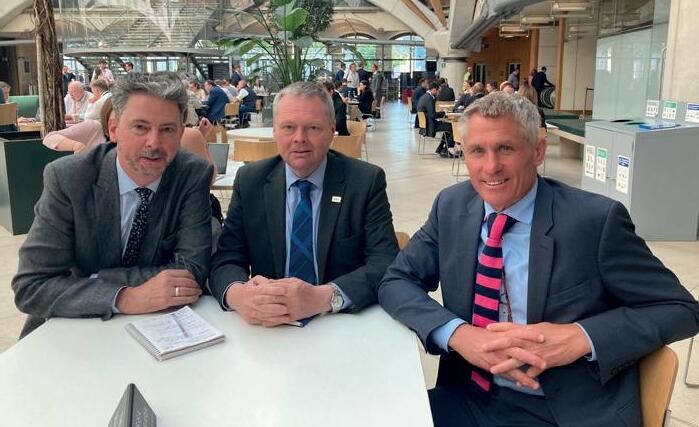
President Andrew Connon, Deputy CEO/Director of Policy Jonnie Hall and Head of External Affairs Beatrice Morrice recently held a series of high-level meetings at Westminster to raise concerns on trade policy, taxation and barriers to growth within Scottish agriculture.
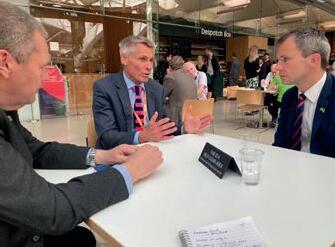
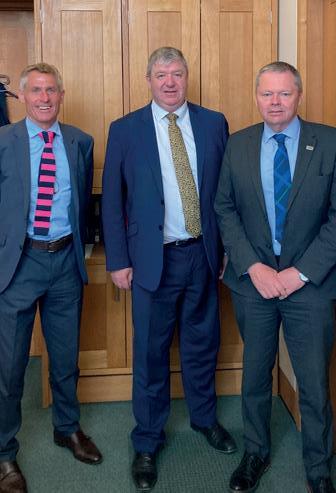
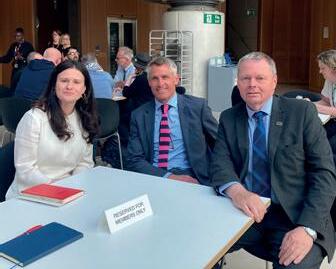
Meetings were held with:
• Chair of the EFRA Committee Alistair Carmichael MP (Scottish Liberal Democrats).
• Shadow Scottish Secretary Andrew Bowie MP (Scottish Conservatives).
• Torcuil Crichton MP, Imogen Walker MP and Joani Reid MP (Scottish Labour).
The delegation also met with a Treasury official to discuss the real-world impact of proposed inheritance tax changes on family farms and met with Baroness Minette Batters, who is leading a national review into farm profitability.
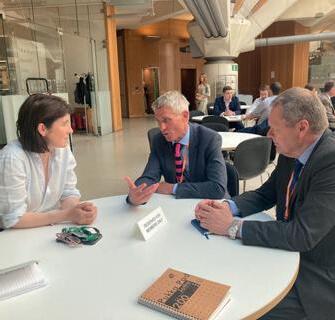
n May, NFU Scotland President Andrew Connon and Head of External Aff airs Beatrice Morrice attended an immigration roundtable hosted by the First Minister at St Andrew’s House.
During the discussion, the team emphasised the urgent need for an immigration policy that enables skilled and willing workers to come and contribute to Scotland’s agriculture and food processing sectors. A functioning, productive agrifood supply chain depends on accessible and responsive labour routes.
NFU Scotland has prepared its formal response to the UK Government’s White Paper on immigration.
We need an immigration policy that enables skilled and willing workers to come to Scotland’s farms, crofts and food businesses.
President Andrew Connon
The Scottish Parliament’s Net Zero, Energy and Transport Committee is currently considering amendments to the Land Reform (Scotland) Bill. NFU Scotland has provided briefings to MSPs in advance underlining whether the proposed amendments would be positive for the sector or have unintended consequences for our members. We successfully secured amendments we would like to see to be lodged and are working to encourage support for them as Stage 2 continues.
Read the full member briefing on our Land Reform (Scotland) priorities at nfus.org.uk or by scanning the QR code opposite. We’ll continue to keep members updated through our refreshed Weekly Update. Not receiving it yet? Email us at info@nfus. org.uk to get signed up.

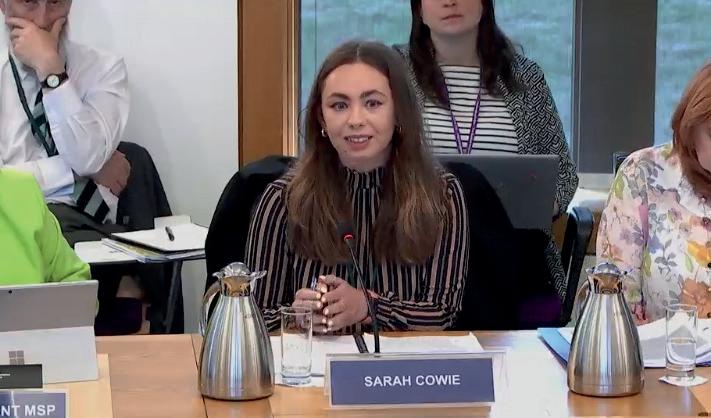
Sarah Cowie, Senior Policy Manager Climate, Land and Business, gave oral evidence to the Scottish Parliament’s Rural Affairs, Land Reform and Islands Committee on the Natural Environment (Scotland) Bill. She highlighted that farmers
and crofters are committed to helping to enhance biodiversity and that many are already taking steps to do so and that food production and nature go hand in hand. She also underlined the need for actions rather than outcomes to be the aim.
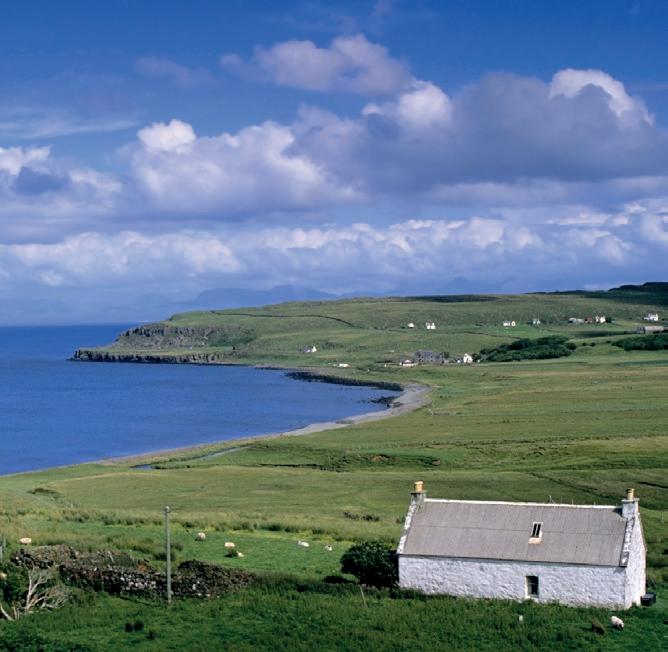
NFU Scotland welcomed the publication of the Crofting and Scottish Land Court Bill at the start of the month.
We are currently going through the detail of the Bill and will engage with members as the Scottish Parliament consults on the Bill over the coming months.
NFU Mutual hails the work of FareShare, who are supported by Southern England Farms
NFU Mutual hails the work of FareShare, who are supported by Southern England Farms
WAWWhile many people look forward to traditional festive fare at this time of year, others are unable to afford even the most basic food for themselves, and their families.
hile many people look forward to traditional festive fare at this time of year, others are unable to afford even the most basic food for themselves, and their families.
Khile many people look forward to traditional festive fare at this time of year, others are unable to afford even the most basic food for themselves, and their families.
t NFU Mutual, we understand that your farm is more than a business, it’s your livelihood, your legacy, and your home. But every year, devastating fi res threaten farms across the UK, causing millions of pounds in damage, endangering lives, and disrupting operations. Many of these fi res are preventable. That’s why we’re urging farmers to take proactive steps to reduce fi re risks and protect what matters most.
Learn how to make your money work best for you with advice from NFU Mutual on investing wisely and understanding your allowances

The cost-of-living crisis – and rising cost of even basic foods – has made it even more difficult for many people to put a meal on the table this year. In fact, more than 13 million people in the UK face food insecurity, according to FareShare, the UK’s biggest charity fighting hunger and food waste.
eeping all of your money in cash savings accounts may seem like a safe option. But you may miss out on the potential to grow your money, particularly if interest rates don’t keep up with inflation. Now could be a good time to reconsider how and where to keep your money, and understanding your allowances can be helpful.
The cost-of-living crisis – and rising cost of even basic foods – has made it even more difficult for many people to put a meal on the table this year. In fact, more than 13 million people in the UK face food insecurity, according to FareShare, the UK’s biggest charity fighting hunger and food waste.
Fires on farms can start in many ways, from faulty electrical systems and overheating machinery to spontaneous combustion of hay and straw. Biomass boilers, increasingly used for sustainable heating, also pose risks if not properly maintained. Even a small oversight can lead to catastrophic consequences.


Ensure all systems, vehicles, and machinery are serviced regularly by competent professionals.




The current tax year ends on 5 April 2024. Here are some things for you to consider:
up your pension
WTalk to an NFU Mutual Financial Adviser. Together we’ll review your financial situation and help you to understand your options.
At the same time, every year, more than three million tonnes of good-to-eat, surplus food goes to waste on UK farms. That’s enough for seven billion meals, according to FareShare, which takes good-to-eat surplus food from across the food industry, sorts it and passes it onto a network of nearly 8,500 charities and community groups across the UK.
At the same time, every year, more than three million tonnes of good-to-eat, surplus food goes to waste on UK farms. That’s enough for seven billion meals, according to FareShare, which takes good-to-eat surplus food from across the food industry, sorts it and passes it onto a network of nearly 8,500 charities and community groups across the UK.
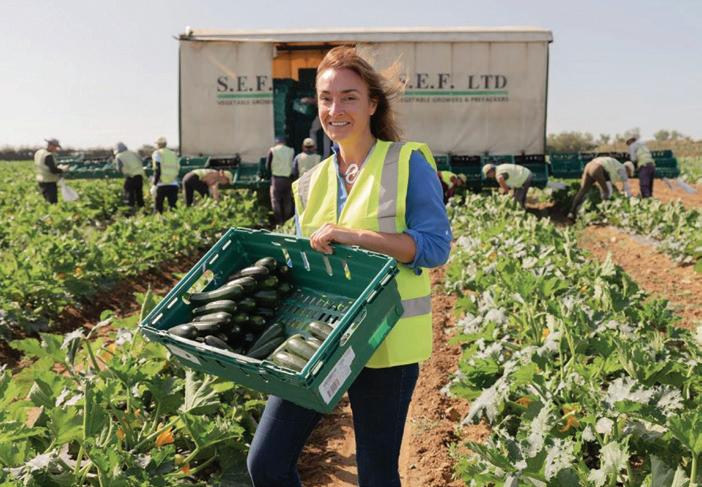
Jane
Farm fi res are estimated to have cost NFU Mutual in excess of £66 million in 2024 alone, with the most common suspected cause determined as electrical fault. The impact goes beyond fi nancial loss, it can mean the loss of livestock, crops, equipment, and even lives.



Electrical wiring installations must be installed and regularly inspected by a qualified electrician. Faults often result in a total loss of buildings, especially if they are located in buildings which contain combustible insulating materials, such as poultry sheds or potato storage, or are predominately made of timber.
Heat stress can have a major impact on farm businesses but you can protect dairy cattle.
when you make the gift. Inheritance tax planning is not regulated by the Financial Conduct Authority.

ith climate change driving hotter and more extreme weather, it’s no wonder that research conducted by NFU Mutual shows that heat stress in cattle is becoming a bigger consideration for farmers.
The fi rst step in fi re prevention is to understand the risks. Conducting a thorough fi re risk assessment is essential. This means identifying the potential ignition sources, evaluating who might be at risk, and implementing measures to reduce or eliminate those hazards. But despite the best eff orts, fi res can still happen. Having a plan in place can make all the diff erence. Install fi re extinguishers in key locations, ensure water supplies are accessible, and keep emergency contact numbers updated and visible.
In 2022-2023, the charity redistributed 54,000 tonnes of food: enough to make 128m meals, or four meals every second. At NFU Mutual, we see it as part of our role to make positive impacts on the welfare of those working and living in rural communities in the UK, and we are only too aware of the growing impact of food poverty in rural communities.
• Reduced milk yields from cows.
But what is heat stress and why is it a problem?
Putting money into a pension is one of the most tax-efficient ways to invest for the long term. The government helps you invest – for every £80 you pay into your pension, HMRC currently pays an extra £20 tax relief making your actual contribution worth £100. In a pension, any growth is free from UK Income Tax and Capital Gains Tax. There are however rules on the amount you can contribute to your pension each year and still receive tax relief.
In 2022-2023, the charity redistributed 54,000 tonnes of food: enough to make 128m meals, or four meals every second. At NFU Mutual, we see it as part of our role to make positive impacts on the welfare of those working and living in rural communities in the UK, and we are only too aware of the growing impact of food poverty in rural communities.
You can invest up to £2,880 per child each tax year into a pension and HMRC will top this up with a further £720 to give a total of £3,600. This is a long-term investment, designed to give children a head start.
As farmers know all too well, this surplus food will often end up getting ploughed back into the ground, used for animal feed or sent to landfill.
As farmers know all too well, this surplus food will often end up getting ploughed back into the ground, used for animal feed or sent to landfill.
As farmers know all too well, this surplus food will often end up getting ploughed back into the ground, used for animal feed or sent to landfill.
• Reduced farm income, putting pressure on fine margins and profitability.

Capital Gains Tax

Build an ISA nest egg


Store hay, straw, fertilizer, and other combustibles away from ignition sources, including hot vehicle engines. Allow hay to dry fully before storage to prevent spontaneous combustion. Continue to monitor the moisture content and temperature once stored.
But the Surplus with Purpose scheme avoids thousands of tonnes of surplus fresh fruit and vegetables, meat and dairy products being wasted. Even cupboard items, and chilled and frozen foods, find a new home as part of the scheme.

But the Surplus with Purpose scheme avoids thousands of tonnes of surplus fresh fruit and vegetables, meat and dairy products being wasted. Even cupboard items, and chilled and frozen foods, find a new home as part of the scheme.
But the Surplus with Purpose scheme avoids thousands of tonnes of surplus fresh fruit and vegetables, meat and dairy products being wasted. Even cupboard items, and chilled and frozen foods, find a new home as part of the scheme.
• Health-related issues such as increased risk of disease, lameness and reduced fertility. There is also evidence to suggest that it affects the unborn calf and their subsequent performance.
You can invest up to £20,000 this tax year in an ISA, building up a nest egg free of UK Income tax and Capital Gains tax.
NFU Mutual Risk Management Services Ltd offers a comprehensive Risk Management Programme to help you assess and mitigate fire risks.

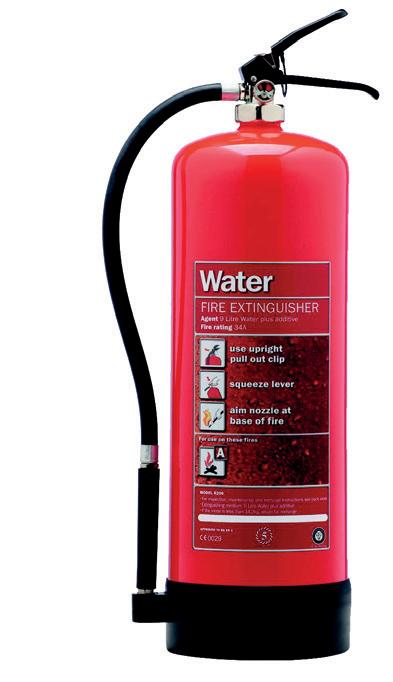
Things you should know:
Heat stress occurs when cows retain more heat than they can release, affecting both indoor and outdoor herds.
The same tax benefits are available with Junior ISAs, which you can use to build up a pot of money for a child – they’ll be able to access that when they’re 18 years old.
Our local Agents and Risk Management Specialists are here to support you with tailored advice and practical solutions.
The cost-of-living crisis – and rising cost of even basic foods – has made it even more difficult for many people to a meal on the table this year. In fact, more than 13 million people in the UK face food insecurity, according to FareShare, the UK’s biggest charity fighting hunger and food waste. same time, every year, more than three million tonnes of good-to-eat, surplus food goes to waste on UK farms. That’s enough for seven billion meals, according to FareShare, which takes good-to-eat surplus food from across the food industry, sorts it and passes it onto a network of nearly 8,500 charities and community groups across the UK. 2022-2023, the charity redistributed 54,000 tonnes of food: enough to make 128m meals, or four meals every second. At NFU Mutual, we see it as part of our role to make positive impacts on the welfare of those working and living in rural communities in the UK, and we are only too aware of the growing impact of food poverty in rural communities. is why our NFU Mutual Charitable Trust – which exists to promote and support charities working in agriculture, rural development and insurance – is proud to support FareShare’s fight against food poverty. Since 2021, the NFU Mutual Charitable Trust has donated a total of £250,000 to the charity.
This is why our NFU Mutual Charitable Trust – which exists to promote and support charities working in agriculture, rural development and insurance – is proud to support FareShare’s fight against food poverty. Since 2021, the NFU Mutual Charitable Trust has donated a total of £250,000 to the charity.
This is why our NFU Mutual Charitable Trust – which exists to promote and support charities working in agriculture, rural development and insurance – is proud to support FareShare’s fight against food poverty. Since 2021, the NFU Mutual Charitable Trust has donated a total of £250,000 to the charity.
If you operate a biomass boiler, follow manufacturer guidelines strictly. Keep flues clean, check for blockages, and ensure proper ventilation. It is vital that biomass fuel is stored separately in a non-combustible building and that housekeeping is excellent. Install an automatic fire detection system to provide early warning of a fire inception.
Fire breaks and access

The cause is due to a rise in environmental temperatures and humidity and an increase in the cow’s heat production associated with increasing milk yields. To monitor heat stress levels, the industry uses the Temperature Humidity Index (THI) which indicates how severe the condition could be and suggests that action needs to be taken.
Furthermore, farmers tell us they’re not always aware of the extent of the financial losses they’re suffering from heat stress in cattle.
Farming is a way of life built on resilience, but no one should face fi re risks alone. By taking simple, proactive steps, you can protect your farm, your family, and your future.
The maximum Junior ISA contribution is £9,000 in the 2023/4 tax year.
Putting money aside for children can also help reduce your potential Inheritance Tax bill.
Sta training
One grower making the most of the opportunity presented by the scheme is Southern England Farms, based in Hayle, West Cornwall. The business works over 6,500 acres and is a key supplier to several major UK retailers, including a number of supermarkets, of Cornish-grown courgettes, cauliflower, broccoli, spring greens, sweetheart and savoy cabbage.
Those selling or gifting shares, or property other than their main home, will see the amount of tax-free gain they can enjoy fall from £6,000 to £3,000 from April 2024.
How farms are donating their surplus for good Farms and rural businesses throughout the are also doing their bit to help. They can participate through FareShare’s Surplus with Purpose scheme, which helps businesses to cover the extra costs of redistributing their unsold food to people who need it most.
How farms are donating their surplus for good Farms and rural businesses throughout the UK are also doing their bit to help. They can participate through FareShare’s Surplus with Purpose scheme, which helps businesses to cover the extra costs of redistributing their unsold food to people who need it most.
How farms are donating their surplus for good Farms and rural businesses throughout the UK are also doing their bit to help. They can participate through FareShare’s Surplus with Purpose scheme, which helps businesses to cover the extra costs of redistributing their unsold food to people who need it most.
Once you reach 55 (57 from 2028), you can take money from your pension as you wish. The first 25% will normally be tax-free, any amount over and above is added to your other income and taxed. So withdrawing lump sums from your pension could push you into a higher Income Tax bracket. Spreading withdrawals over a number of tax years could help reduce the impact of any tax liabilities. There’s also a limit on the annual pension contributions you and your employer can make if you’ve already taken a taxable withdrawal from your pension. This could mean you miss out on valuable employer pension contributions in addition to your own.
In recent years industry studies have highlighted the condition and the impact it can have on farm businesses. It’s generally acknowledged that heat stress can result in:
To learn more about effective fire prevention and to access our free fire risk assessment guides, scan the QR code or visit the NFU Mutual website at nfumutual.co.uk/SFL-lossprevention
It’s wise to take a long-term view on inheritance planning, so that your heirs don’t pay more tax than they need to.
“The scheme with FareShare is a brilliant wa excess produce is redistributed to those who really need it. It is so very rewarding when we find out how many meals our surplus veg has gone on to make. It is great that NFU Mutual has embraced the scheme so wholeheartedly and supports their customers who wish to participate in ‘Surplus with Purpose’ too.”
Don’t forget Inheritance Tax planning
Our latest research has found that just over four in ten (41%) say that heat stress is a priority risk for their business while 70% are yet to take further steps to reduce the risk. *
One grower making the most of the opportunity presented by the scheme is Southern England Farms, based in Hayle, West Cornwall. The business works over 6,500 acres and is a key supplier to several major UK retailers, including a number of supermarkets, of Cornish-grown courgettes, cauliflower, broccoli, spring greens, sweetheart and savoy cabbage. Co-owner Jane Richards, along with her 400-plus pickers, works with FareShare to ensure any excess vegetables never go to waste. Since 2019, they have donated 396 tonnes of excess produce to the charity.
One grower making the most of the opportunity presented by the scheme is Southern England Farms, based in Hayle, West Cornwall. The business works over 6,500 acres and is a key supplier to several major UK retailers, including a number of supermarkets, of Cornish-grown courgettes, cauliflower, broccoli, spring greens, sweetheart and savoy cabbage. Co-owner Jane Richards, along with her 400-plus pickers, works with FareShare to ensure any excess vegetables never go to waste. Since 2019, they have donated 396 tonnes of excess produce to the charity.
• The tax benefits of pensions and ISAs depends on individual circumstances and may change in the future.
“The scheme with FareShare is a brilliant wa excess produce is redistributed to those who really need it. It is so very rewarding when we find out how many meals our surplus veg has gone on to make. It is great that NFU Mutual has embraced the scheme so wholeheartedly and supports their customers who wish to participate in ‘Surplus with Purpose’ too.”
“The scheme with FareShare is a brilliant wa excess produce is redistributed to those who really need it. It is so very rewarding when we find out how many meals our surplus veg has gone on to make. It is great that NFU Mutual has embraced the scheme so wholeheartedly and supports their customers who wish to participate in ‘Surplus with Purpose’ too.”
• • • where appropriate – this technique involves cows grazing directly after milking and then being ‘housed’ at around 10am, with buffer feed available to them. Cows are then sent back out to graze after afternoon milking to graze until dusk.
• The value of your pension and investment funds can go down and you may get back less than you invested.
Maintain clear access routes for emergency services and create fire breaks around vulnerable areas.
• Adjusting milking times to coincide with the cooler periods of the day.
Co-owner Jane Richards, along with her 400-plus pickers, works with FareShare to ensure any excess vegetables never go to waste. Since 2019, they have donated 396 tonnes of excess produce to the charity.
• Installing shade and fans in holding yards.
Make sure everyone on the farm knows what to do in the event of a fire. Regular fire drills and training can save lives and livestock. Ensure there is a plan for livestock if they need to be moved to a safe area, only if it is safe to do so, as smoke inhalation can result in livestock needing to be culled.
Should you suspect heat stress with your dairy cattle this summer, Dr Tom Chamberlain** highlights some of the key actions that you can undertake to reduce heat stress whilst cows are grazing:
We at NFU Mutual applaud Jane and all the team at Southern England Farms for their outstanding efforts in supporting the work FareShare does to alleviate food poverty in our communities.
We at NFU Mutual applaud Jane and all the team at Southern England Farms for their outstanding efforts in supporting the work FareShare does to alleviate food poverty in our communities.
We at NFU Mutual applaud Jane and all the team at Southern England Farms for their outstanding efforts in supporting the work FareShare does to alleviate food poverty in our communities.
• Implementing a tree planting programme at the boundaries of grazing paddocks to provide suitable levels of shade within the grazing environment.
We’re proud to support FareShare –and we praise all farms and rural businesses who participate in the Surplus with Purpose scheme.
We’re proud to support FareShare –and we praise all farms and rural businesses who participate in the Surplus with Purpose scheme.
We’re proud to support FareShare –and we praise all farms and rural businesses who participate in the Surplus with Purpose scheme.
Jane says: “No farmer ever wants to see their produce go to waste. But sometimes circumstances mean there is a surplus that will often go into the waste trailer or simply become compost.”
One way of doing this is to make gifts to your loved ones, taking advantage of the annual £3,000 gift allowance, or the ‘gifts out of normal expenditure’ exemption. Larger gifts can also be exempt from Inheritance Tax as long as you live more than seven years from
Jane says: “No farmer ever wants to see their produce go to waste. But sometimes circumstances mean there is a surplus that will often go into the waste trailer or simply become compost.”
Jane says: “No farmer ever wants to see their produce go to waste. But sometimes circumstances mean there is a surplus that will often go into the waste trailer or simply become compost.”
To find out more about NFU Mutual insurance or financial services, speak to your local NFU Mutual agency office or visit nfumutual.co.uk/tax-allowances
Consider installing localised suppression systems to combines. NFU Mutual offer an exclusive 15% policy discount for combine harvesters insured on an NFU Mutual Agricultural Vehicle policy, if fi tted with a compliant fire suppression system.
For more information about FareShare’s Surplus with Purpose scheme, and how you can participate, visit www. fareshare.org
For more information about FareShare’s Surplus with Purpose scheme, and how you can participate, visit www. fareshare.org
For more information about FareShare’s Surplus with Purpose scheme, and how you can participate, visit www. fareshare.org
NFU Mutual Financial Advisers advise on NFU Mutual products and selected products from specialist providers. When you get in touch, they’ll explain the advice service and charges.
To find out more visit nfumutual.co.uk/ heatstress or contact your local agency office.
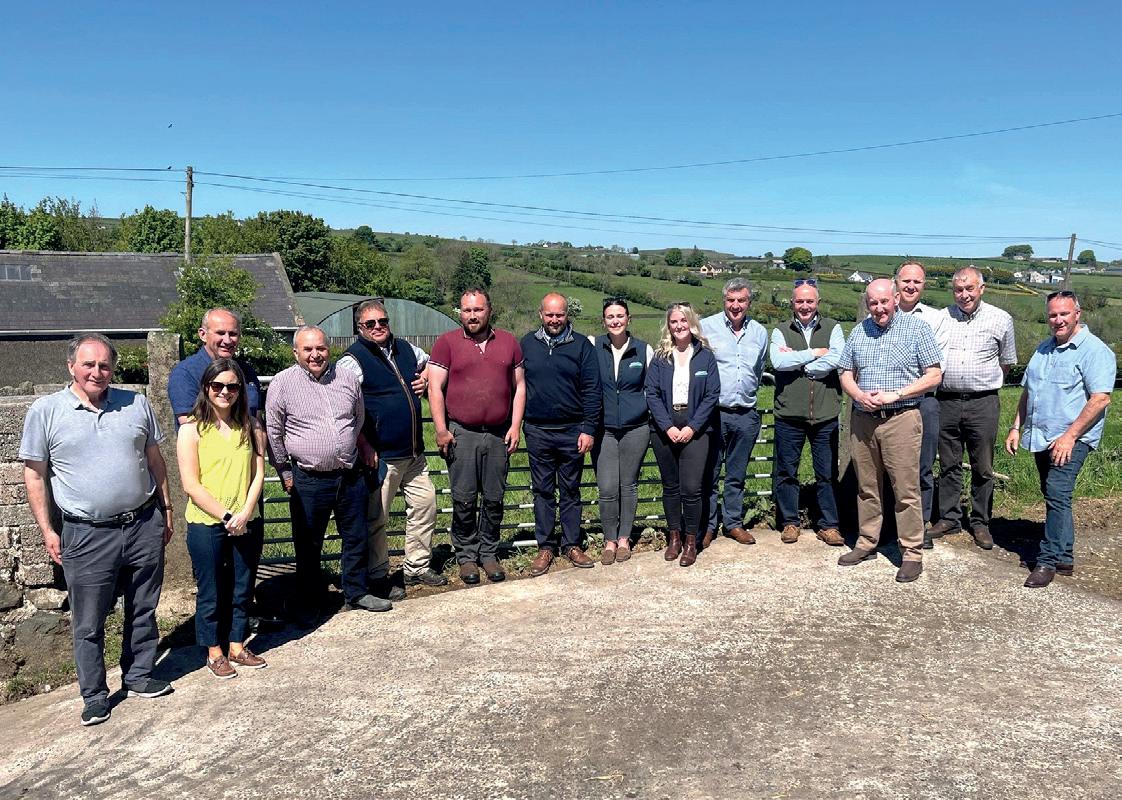




BLucy McGillivray Policy Manager
ack in May, Lisa Hislop and myself, along with Livestock Chair Hugh Fraser and Vice Chair John Ritchie headed to Belfast to meet with other UK Unions. It was great to meet my counterparts in the National Farmers Union (NFU), NFU Cymru, Ulster Farming Union and British Agriculture Bureau. Livestock chairs and policy offi cers regularly meet online to discuss issues aff ecting individual nations, UK and world livestock farming. Every year, a diff erent nation hosts and this year it was Northern Irelands turn.
We started off the day with an excellent farm visit to a calf rearing unit with ABP in Glenarm, hosted by James Davidson. Rearing 2500 calves a year for ABP, James highlighted the importance of calf health, welfare and nutrition. It was interesting to hear about the process and the role they play in the supply chain.
After the visit, we headed to Belfast for a meeting on policy issues. Livestock prices, as well as declining herds and disease issues were discussed. As can be expected, Bluetongue virus was high on the agenda with discussions on restricted zones and what the developments would mean for diff erent parts of the UK.
We also touched on traceability and Electronic Identifi cation (EID). At that
ultra-high frequency (UHF) technology. While we welcome DEFRA’s move to implement electronic identifi cation on newborn calves, we have concerns that the low-frequency mandate doesn’t deliver the same long-term benefi ts the Ultra-high Frequency (UHF) alternative.
UHF offers greater accuracy and efficiency for farms, particularly largescale operations. We therefore, urge both DEFRA and Scottish Government work
UHF offers greater accuracy and efficiency for farms, particularly large-scale operations.
time, there was still no certainty from Department for Environmental Food Rural Aff airs (DEFRA) on the route they would take regarding EID. However, as of 2 June, DEFRA announced they will be mandating Low Frequency technology in the implementation of bovine EID. NFU Scotland has consistently supported electronic tagging for cattle, particularly
together to ensure effective roll out of forward-looking technology. We also urge Scottish Government to communicate the timelines for UHF EID roll out as per their announcement in February.
Overall, it was a great trip to meet with the UK Unions. I’d like to extend my thanks to UFU for hosting us all over in Belfast.
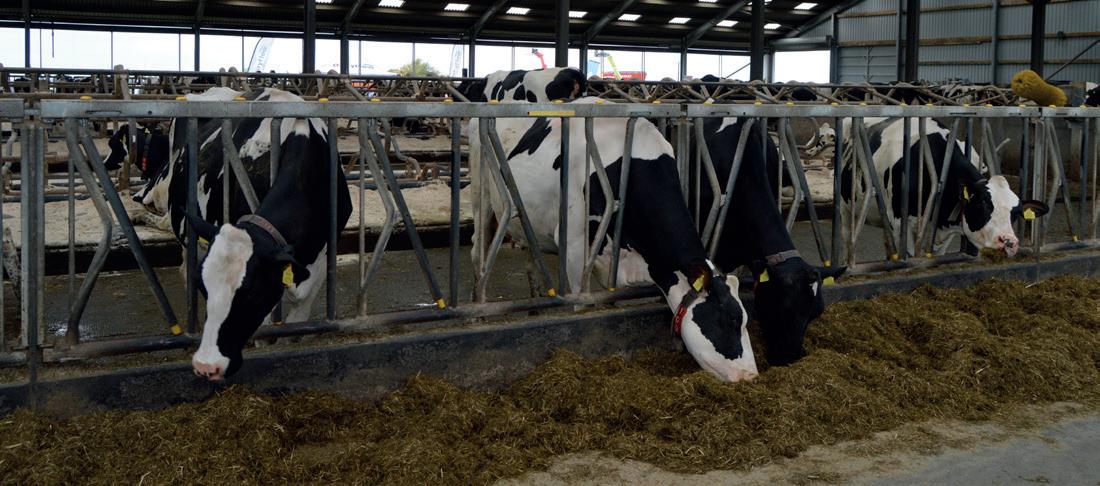


Bob Carruth Policy Manager
More than a decade of work by UK farming Unions looking to deliver fairness and transparency in milk contracts will come to fruition on 9 July. For Scottish dairy farmers, the contract with a buyer for your milk is the single most important piece of paper for the business.
In 2020, Defra launched a consultation on contract regulation which found strong support for a statutory baseline to help ensure all contracts meet an acceptable standard. The Fair Dealings Obligations (Milk) legislation was passed in April 2024. From 9 July 2024, all new contracts
issued had to comply with the legislation and from 9 July 2025, all existing contracts must also comply. The legislation will be enforced by the new ASCA (Agricultural Supply Chain Adjudicator’s Offi ce) and NFU Scotland has met with the Adjudicator and his offi ce in private on several occasions now, including at the recent Highland Show.
ASCA has set out guidance for the new regulations and, more importantly, has mapped out a clear process for dairy farmers to follow if they have issues with their contract and want to bring these to the adjudicator’s attention. This can be found at: https:// www.gov.uk/government/publications/ the-agricultural-supply-chainadjudicator-asca-making-a-complaint
NFU Scotland believes the new regulations must introduce more transparent, freely negotiated and fairly balanced contracts which meet the
needs of both buyers and farmers.
The regulations, while not stipulating what the milk price should be, will allow for greater transparency and a fl exible approach to diff erent pricing mechanisms and how that price may be varied.
There are other improvements including cooling off periods; maximum notice periods for farmers and buyers; the need for variations to be negotiated and agreed; an end to exclusivity where the contract is for a fi xed volume; it will also not be possible to have tiered pricing in an exclusive contract.
In this new era, NFU Scotland continues to encourage all producers to consider legal advice when considering a new milk contract and its compliance with the new regulations. More information, including a milk contract checklist, can be found at: https://www.nfus.org.uk/policy/dairy/ dairy-contracts.aspx


IGemma Cooper Head of Policy
n recent times, farm assurance has been a divisive topic for industry. Following concern over the Greener Farm Commitment, it was concluded that a fundamental reset was needed to rebuild farmer confi dence in assurance. A major independent review commissioned by the UK’s farming unions and AHDB, identifi ed nine strategic recommendations, including reducing and simplifying
audits, greater farmer involvement in standards development, and improved communication across the industry.
Following publication of the review, the AHDB and farming unions agreed a need to monitor the actions to ensure that progress was made. It has taken some time to agree a format for progressing in a collaborative and constructive way. In late May, thirty representatives from AHDB, the NFUs and assurance schemes met in London. The purpose was to discuss specifi c recommendations requiring collective action.
Discussion focussed on the benefi ts of farm assurance-whilst recognising
the issues identifi ed, and the need for both progress and reset. The value of farm assurance, including understanding of associated premium and defi nition of value a was a key area of focus. There was also discussion on use of data and technology, enhanced collaboration and earned recognition.
Future work will be progressed on a bi-lateral basis as well as more collectively. We are represented on the leadership group and will also work on policy areas identifi ed in priority actions such as imported grain. We will keep members updated as this important area progresses.





Penny Middleton Policy Manager
From 1 July 2025, the Bluetongue Virus 3 (BTV-3) Restricted Zone (RZ) will be extended to cover the entire area of England. While this removes movement restrictions within England, any
movements of susceptible animals into Scotland will still require licensing. Movements into Scotland
To a designated abattoir: Movements can take place under a general licence with no requirement for testing or vaccination. These movements must be direct, and occur between dawn and dusk. General licences do not need to be applied for but the conditions must be strictly followed.
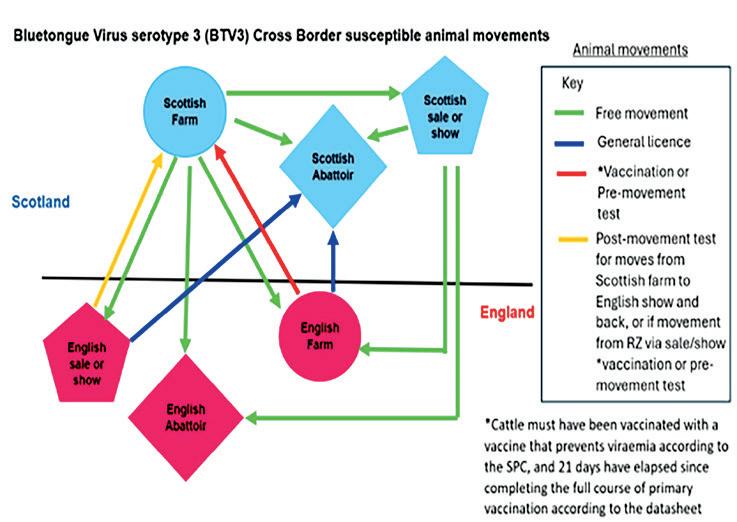
To a holding, sale or show: Movements will require a specifi c licence and animals must meet one of the following criteria:
o A clear pre-movement test within 7 working days of the move.
o Cattle vaccinated with Bultavo3, with 21 days elapsed since the full course was completed, do not require testing. Your vet can advise on vaccine suitability.
Scottish animals attending sales or shows in England do not require testing or vaccination before leaving.
However, if those animals return to Scotland, they must be:
o Post-movement tested.
o Isolated until the test result is confi rmed negative.
If animals stay in the English RZ for more than four days, they must:
o Be pre-movement tested while in the RZ.
o Remain there until a clear result is received before returning to Scotland.
Cattle vaccinated with Bultavo3, with the full course completed 21+ days prior, do not require any pre- or postmovement testing, regardless of the length of stay.
Vaccination against BTV-3 is voluntary in Scotland and is currently permitted using any of the three authorised vaccines. It remains the best protection against the disease.
• Cattle, sheep, and goat keepers who choose to vaccinate must record individual animals on ScotEID.
• NFU Scotland urges keepers to speak to their vet as soon as possible to secure vaccine supply and ensure animals are protected ahead of any planned moves.
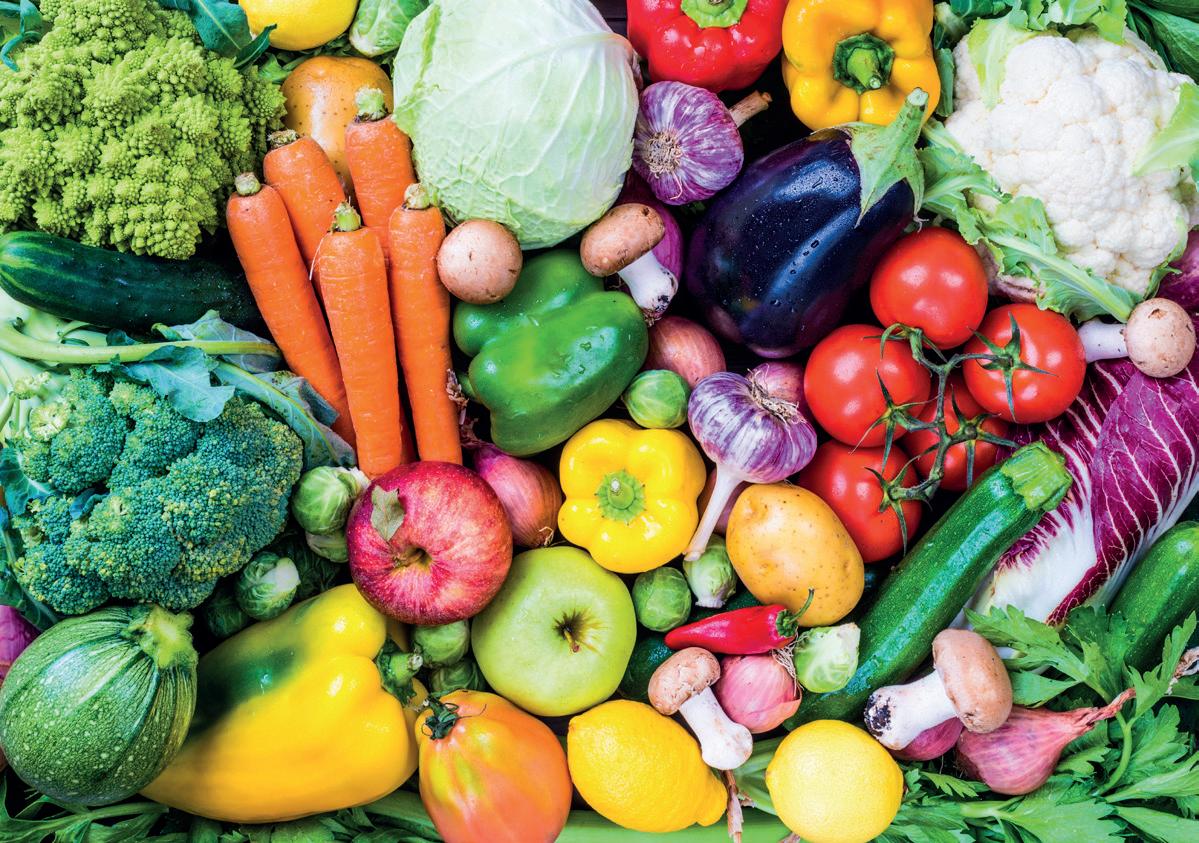




WLisa Hislop Policy Manager
e anticipate the publication of the National Plan as part of the Good Food Nation Act imminently. While the notion of a Good Food Nation has been around for almost ten years, the delivery of National Plan is progress. It formally outlines the desired outcomes Ministers want to see related to food issues, the indicators that will be used to mark progress and relevant policies which will be used to address the outcomes.
While at the time of writing, the fi ner detail is to be confi rmed, but we do know that the broad principles set out in the National Plan will ultimately set the direction of travel relevant authorities to incorporate at a local level. It’s important to note that each local plan will look slightly diff erent and there is fl exibility, which is not necessarily a bad thing. This can enable local plans to best refl ect local issues, and opportunities.
The bigger question remains as
to what does this mean for Scottish farmers, growers and crofters? The Good Food Nation should trickle through to improve our food supply chain and ultimately support a sustainable and profi table supply chain. We continue to underline the need local authorities to
to ensure they can access and pay a fair price for Scottish and British produce. Furthermore, we must have the supply chain infrastructure across all commodities to add value to primary production and meet demands.
The National Plan and subsequent
We continue to underline the need local authorities to lead by example by taking a “Scottish First” policy to public procurement, so that schools, hospitals and other local authority bodies are serving Scottish or British produce.
lead by example by taking a “Scottish First” policy to public procurement, so that schools, hospitals and other local authority bodies are serving Scottish or British produce. The Bronze Food for Life Programme established by the Soil Association demonstrates how this can be implemented. However, our local authorities must be funded adequately
Local Plans will be evolutions and there remains a requirement for the national plan to be reviewed in fi ve years’ time. Over the coming months, there will be a number of opportunities for stakeholder engagement at local level, it is crucial that farmers, growers and crofters engage in the local events to infl uence and shape local plans.
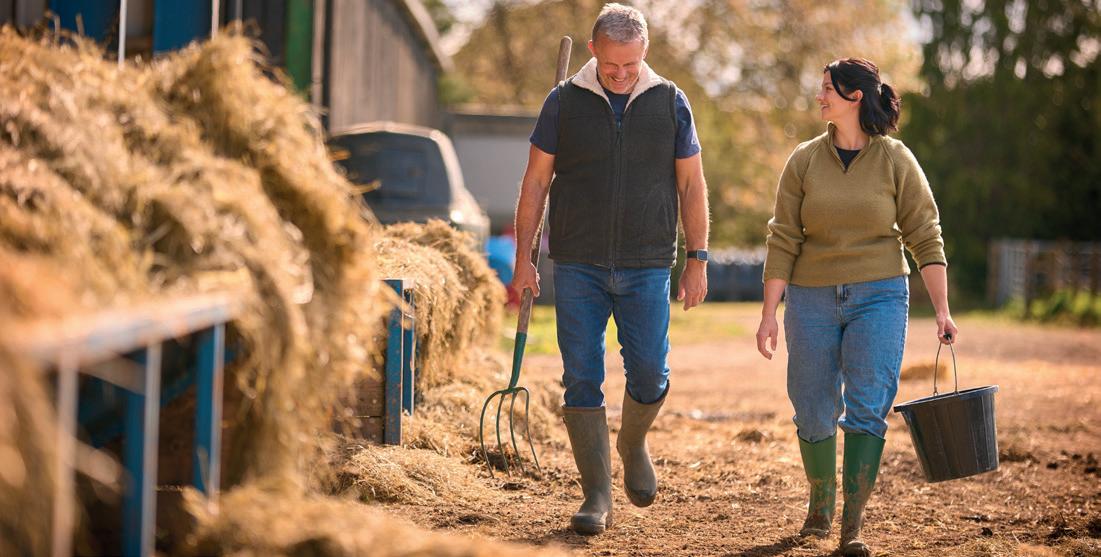




Ensuring that your employees have the legal right to work in the UK is not just a best practice; it’s a legal requirement. The Home Office’s updated guidance, effective from 12 February 2025, outlines the steps employers must take to comply with immigration laws and avoid potential penalties.
Why Right to Work Checks matter
Employers are legally obligated to verify that every employee has the right to work in the UK. Failure to conduct these checks correctly can result in civil penalties of up to £60,000 per illegal worker, criminal convictions and even the loss of sponsorship licenses. Conducting proper checks provides a ‘statutory excuse,’ protecting employers from liability if an employee is later found to be working illegally.
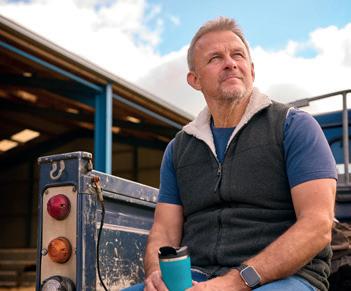
Methods for conducting checks
Employers can establish a statutory excuse by performing one of the following before employment commences:
1. Manual Checks:
Verify original documents in person, ensuring they are genuine and belong to the individual.
2. Digital Checks via Identity Service Providers (IDSPs):
For British and Irish citizens with valid passports, employers can use certified IDSPs to conduct digital identity verification.
3. Home Office Online Service:
For non-British and non-Irish citizens, employers can use the online service by entering the applicant’s share code and date of birth to confirm their right to work.
Key Updates in the latest guidance
• Biometric Residence Permits (BRPs) and cards:
Physical BRPs and BRCs are being phased out. Individuals must now use a UK Visas and Immigration (UKVI) account to access their eVisa for proof of right to work.
• Acceptable Documents: Clipped (cancelled) British or Irish passports are no longer valid for right to work checks. However, both short and long UK birth certificates are acceptable when presented with official evidence of the individual’s National Insurance number.
Employer best practice
• Consistency:
Apply the same checks to all prospective employees to avoid discrimination.
• Record Keeping:
Retain copies of the documents or online profiles used to verify right to work for the duration of employment and for two years afterward.
• Follow-Up Checks:
If an employee has time-limited permission to work, schedule follow-up checks before their current permission expires.
By adhering to these guidelines, employers can ensure compliance with UK immigration laws and contribute to a fair and lawful employment environment.
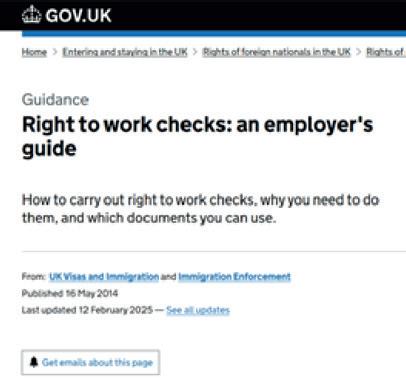


but it’s bigger than that.




Jonnie Hall Deputy CEO/ Director of Polic
It’s been no time since the close of the Single Application Form (SAF) window on 15 May, wrapping up applications for the key direct support schemes that underpin most farms and crofts across Scotland. For 2025, there were one or two new things we had to consider, such as the Whole Farm Plan requiring 90 percent of Basic Payment Scheme applicants to meet two out of fi ve needs.
But no sooner had the SAF window closed before another ‘Dear Customer’ letter hit doormats of every agricultural business in June.
That letter is important – don’t bin it, read it.
In essence, it set out changes to BPS requirements that will come into
eff ect from 1 January 2026 – the most signifi cant being the introduction of ‘Enhanced Greening’.
What is ‘Enhanced Greening’ and why is it important?
Greening isn’t new.
The reality is, all BPS claimants already have mandatory Greening requirements - and have done so since major Common Agricultural Policy (CAP) reforms were implemented in 2015. Delivered mainly through Ecological Focus Areas (EFAs), Greening is a topup to BPS payments for undertaking management practices that help environmental outcomes.
The annual Greening budget, £142 million, augments the BPS budget of £282 million. The Scottish Government is now building on the current Greening approach to deliver the new Tier 2 (Enhanced Greening) direct support payments with more conditions attached for more farmers and crofters. The Enhanced Greening
requirements mean that more farm businesses will have to actively manage EFAs on arable land in return for the 30 percent of their BPS payments that make up this Greening element.
What’s changing for 2026?
Some 3,700 farm businesses are currently required to undertake EFA requirements, and typically, they must manage fi ve percent arable land using options such as fallow land, buff er strips, nitrogen-fi xing crops, catch crops, green cover, agroforestry, and hedges.
The Scottish Government made it clear it intends to increase the number of agricultural businesses contributing to Greening and increase the area managed under EFAs. The initial step is the removal of the socalled, “75 percent exemption rules” – meaning that from 2026, anyone with more than 15 hectares of arable land, including temporary grass, must meet EFA requirements.
As a result, from next year, some 2,300 more businesses will have to manage EFAs for the fi rst time. These will tend to be larger grass-based livestock units that also have more than 15 hectares of arable land – including temporary grass.
While the EFA percentage will remain at five percent for 2026, the Scottish Government’s intention is then for it to increase to seven percent for 2027.
In addition, the guidance for six of the existing seven EFA options has also been updated and four new EFA options have been added – including low input grassland, herb and legume rich pastures, unharvested crops, and alternative agro-forestry.
My instinct tells me that based on the 15 hectares or more of arable land threshold alone, the proportion of BPS claimants required to manage EFAs in 2026 will increase from about 20 percent to about 33 percent.
It follows that in 2026, some twothirds of farms and crofts will receive their Enhanced Greening payments with no EFA requirements – largely made up by the fact that over a third of all those

As we move into the new four-tier framework of future support, the Scottish Government must uphold existing commitments on direct support and its allocation.
claiming BPS having no arable land.
While the move to Enhanced Greening has been trailed by the Scottish Government for some time, we must insist on a pragmatic and commonsense approach to be taken for those undertaking EFAs for the first time.
The changes for 2026 must not compromise either business viability or food production. Over the past few years, BPS and Greening budgets have eroded in real terms, Therefore, all implications of adding further conditions to existing support measures must be fully accounted for – we cannot afford any
unintended consequences.
That then introduces another dimension beyond any specific implications of Enhanced Greening for individual businesses and sectors. This a dimension that I’m concerned about.
It goes back to BPS and Greening budgets – the mainstays of direct support for Scottish agriculture and which are critical to the viability of all too many individual businesses.
What we’re calling for:
As we move into the new four-tier framework of future support, the Scottish Government must uphold existing commitments on direct support
and its allocation.
First, as set out by the then First Minister at our AGM in 2024, at least 70 percent of total funding should be delivered as ‘direct’ support through the new Tiers 1 and 2.
Second, as set out by the First Minister at our AGM in 2025, at least 70 percent of that direct support should initially be allocated as Tier 1 base payments from 2026 onwards as the replacement for BPS, with the remaining 30 percent to go into Tier 2 under Enhanced Greening.
We also need both the current and the next Scottish Government to unequivocally commit to a real terms increase in the overall direct support budget.
As we move increasingly towards more conditions being attached to direct support payments a real terms increase on overall direct support funding, with a majority allocated to Tier 1 support to underpin the viability farms and crofts, is entirely justified.
For me, more strings attached to direct support whilst funding continues to decline in real terms would set Scottish agriculture on an extreme cliff edge. Ultimately, it could result in an abject failure to meet any aspirations to deliver on those stated and shared priorities around food, climate, nature and people.

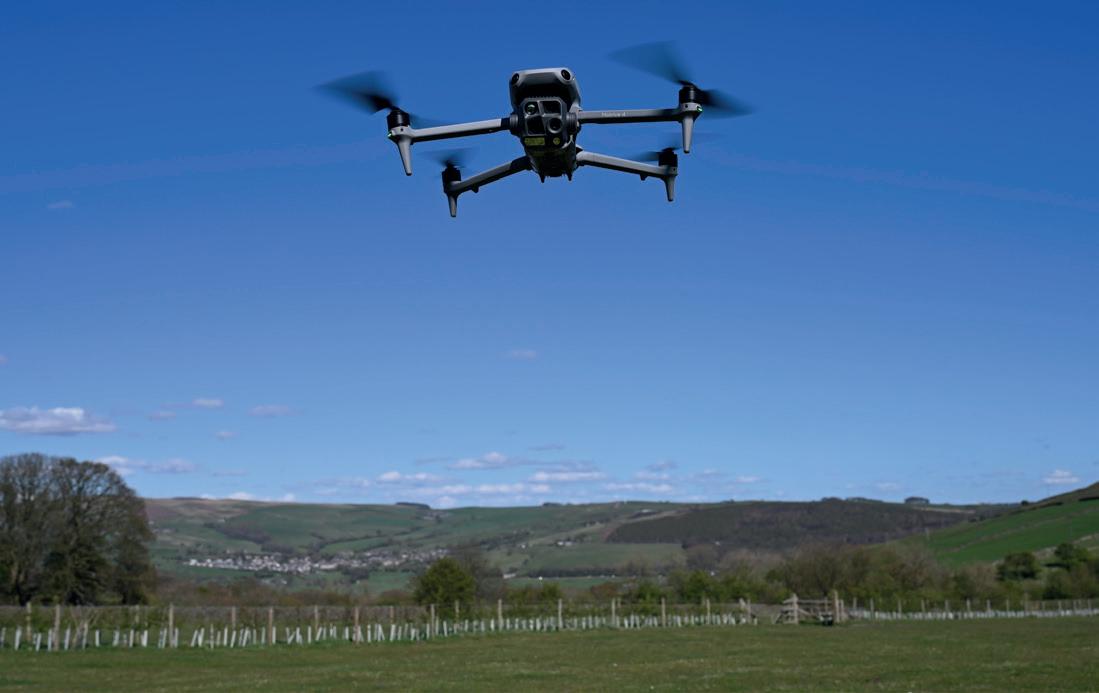










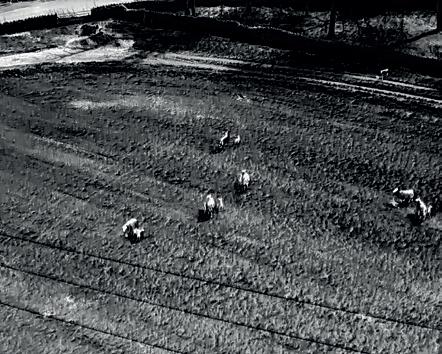








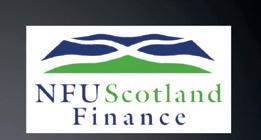


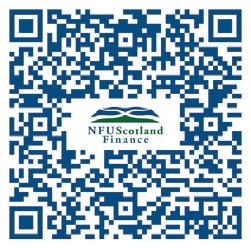
















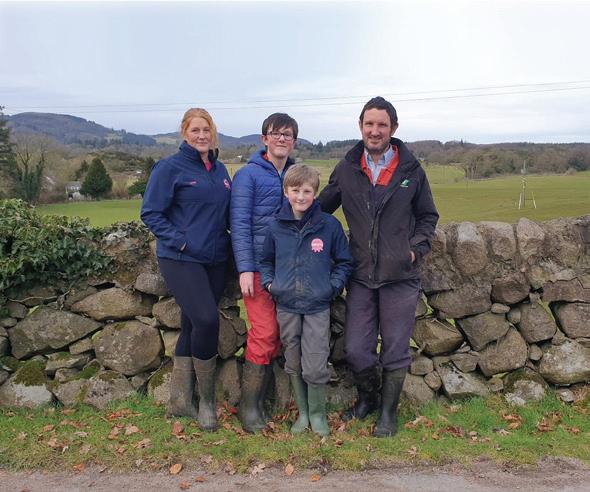
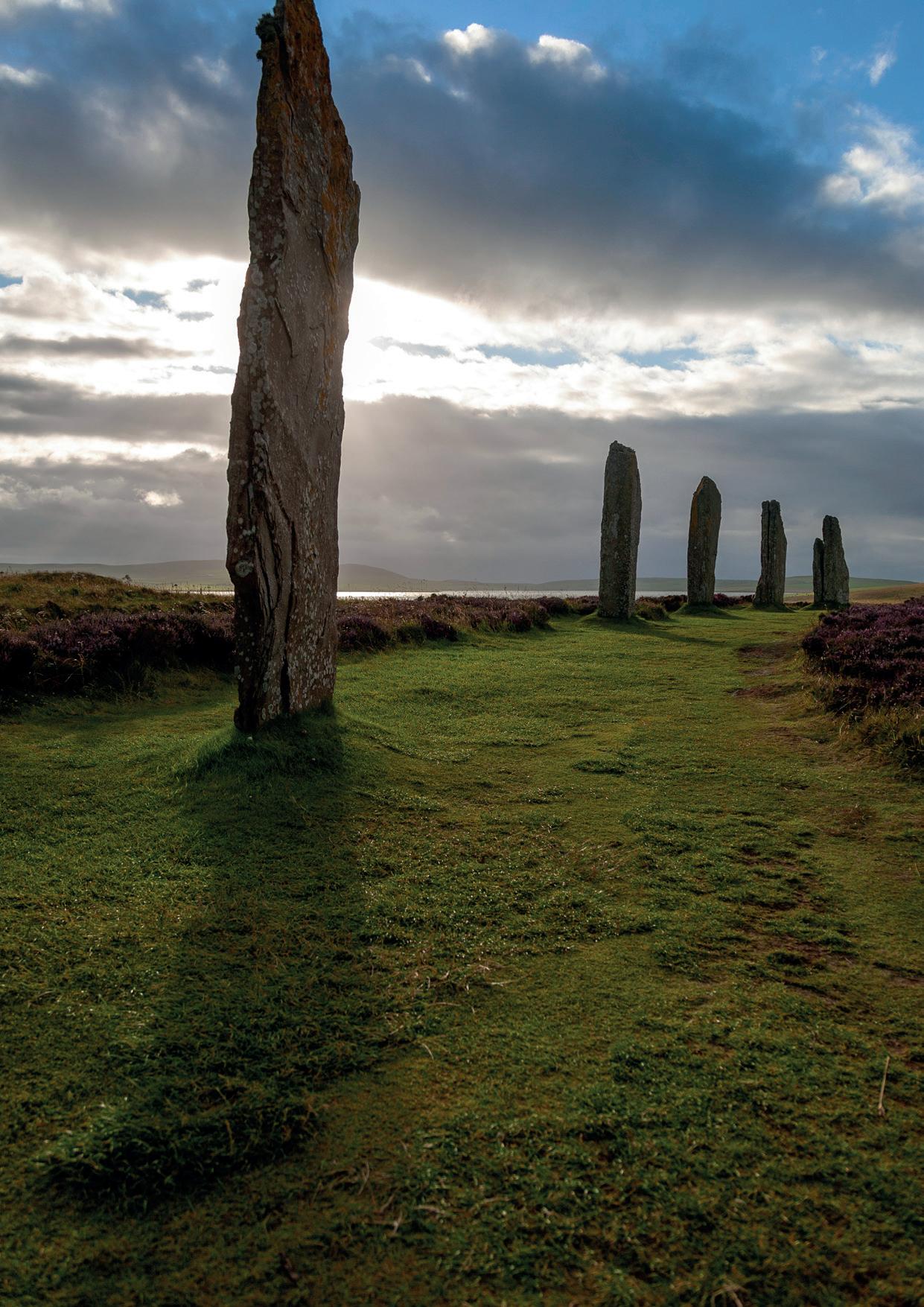




Words by Diana McGowan
Situated off the north coast of Scotland, Orkney is an archipelago of around 70 islands, 20 of which are inhabited. The largest, known as Mainland, spans 523 km², with Orkney’s total land area covering 990 km². With a population of around 22,020 (2022), the islands lie 10 miles north of Caithness across the Pentland Firth. Kirkwall, on Mainland, is the largest settlement and administrative centre.
Agriculture is a cornerstone of the local economy. Orkney’s rich grasslands support beef, lamb and dairy production, including the unique North Ronaldsay sheep, famed for their seaweed diet. Despite ferry reliance, high haulage costs and weather extremes, farming remains vital, over one in ten Orcadians are involved in the sector.
From 12 to 18 July, Orkney will host the 20th International Island Games, welcoming 2,000 athletes, officials, and media from 24 island groups. It’s the UK’s biggest multi-sport event of 2025, expected to bring a significant boost to local businesses.
Landing by plane from Edinburgh, I caught a glimpse of Orkney’s landscape below – a mosaic of green grassy fields, scattered small settlements and the odd road linking them all together. The fields ran right to the rugged coastline, but the sea was calm and sparkling so I knew ferry passengers spotted below were enjoying a smooth transition between islands. It was mid-May and Orkney, like the rest of the UK, had basked in glorious sunshine, warmth and dry conditions. I was certainly going to see the place at its best but was aware that the islands are exposed to extreme weather more often than not.
Having overnighted in Kirkwall ahead of a packed two-days, Nicola Tait from the NFU Mutual office, picked me up to take me to the first farm. “It’s not like this usually, you’re going to be lucky,” she laughed as we hit the road.
Firing loads of questions at Nicola as we went, she provided me with lots of information about farming life on Orkney. “It’s predominantly beef and sheep farming here but we have 12 dairy farms too. We’ve a perfect climate and environment for growing grass but some long, hard winters so the majority of livestock is housed from October to May on slats. We’re big on suckler cows, which are sold in Aberdeen and elsewhere as store for finishing.
“Costs are a big thing – if you want to get anything imported or exported from Orkney it costs! So farmers have to factor that into their business plan. Haulage, concentrate feed etc. it all adds up. LFASS payments are hugely important to the islands. They help with the high production costs that we can’t escape from. The payments help keep farmers active.
“Production levels are good at the moment. I’m sure there are more cows in Orkney than there are people.
I also asked about the goose problem which John Laughton often reports on in the Orkney updates for this publication. Nicola confirmed that it remains one of their biggest issues alongside ravens.
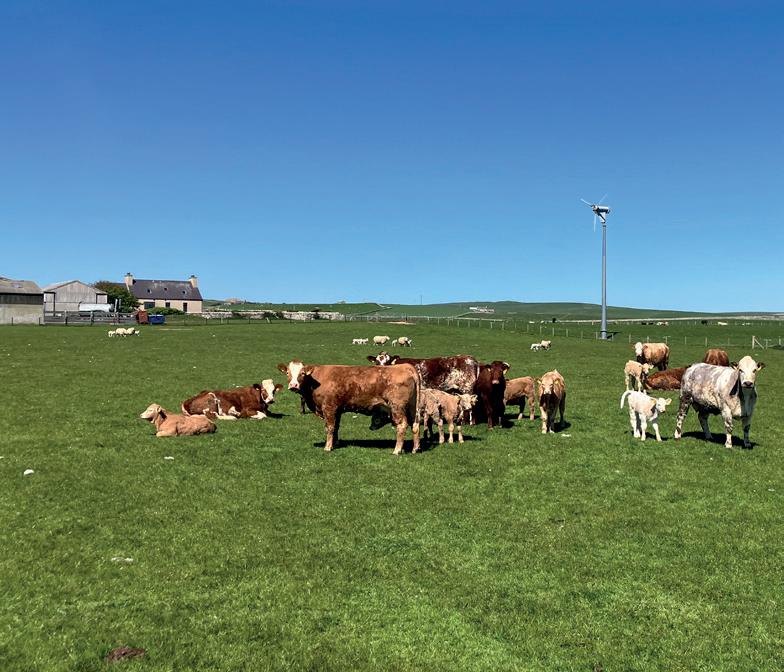
y first stop was Garson, run by Stewart and Gareth Wood. Stewart, a former NFUS Vice President, welcomed the Highland Region members who had arrived by ferry that morning.
Garson was bought by Stewart’s grandfather shortly after WW2 and is now in the hands of the fourth generation. Part of the farm is an old military base vacated after the war. While some of the old buildings remain, the airport runway has been covered over with about six inches of grassland used for grazing.
Their commercial beef and sheep enterprise is made up of 520 acres plus 100 acres rented elsewhere on short-term lease. They breed pedigree Luing and Charolais cattle and have a mix of sheep breeds.
Planning the lambing and calving periods is purposeful to maximise resources, space and grazing, sewing, cutting activity around ‘traditional’ Orkney seasons. This year’s lambing and calving was so much easier given the extremely dry winter and spring.
“We’ve had the driest winters in 50 years,” said Stewart. “Last year we weren’t as fortunate. This February we recorded less than half of what we experienced at the same time last year.”
They strive for efficiency and self-sufficiency, growing 150 acres of barley for feed, making multiple cuts of silage and supplementing with imported wheat straw. Having briefly tried being organic in the past but deeming it being “more hassle than it was worth financially”, they still maintain as close to organic principals as possible.
In addition to the core livestock part of the business the Woods build three self-catering cottages in 2012. These are powered by a 5KW turbine. “The cottages are great for the business – you actually get to keep the bulk of the income directly.” Stewart highlighted. See www.unigarcottages.com
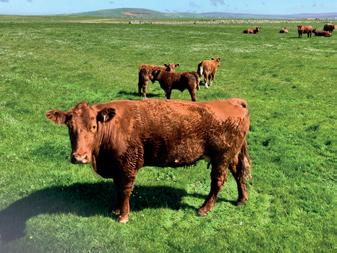
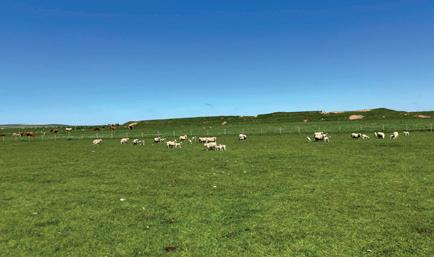
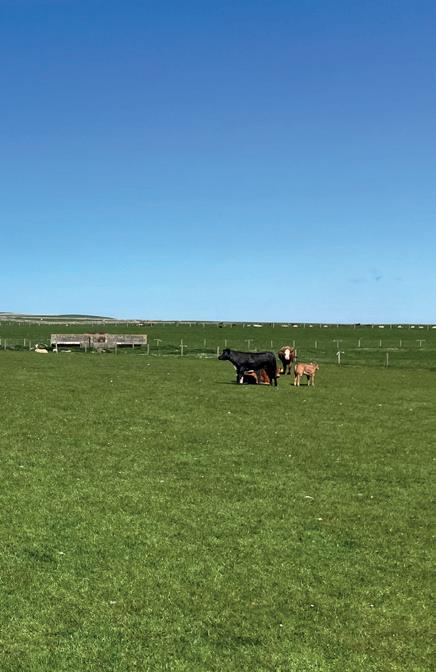
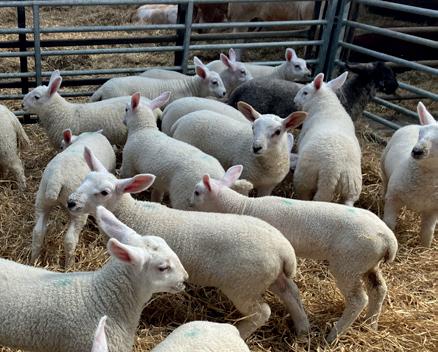
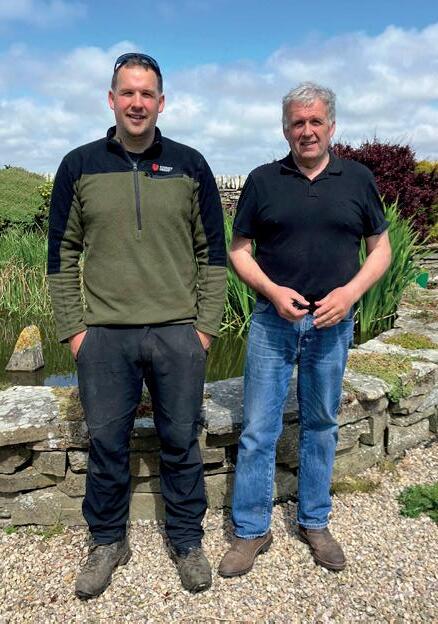
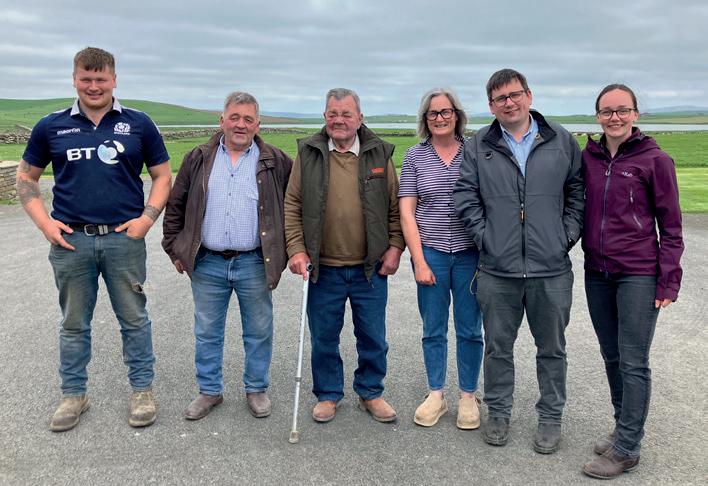
Situated next to the popular tourist attraction of Skara Brae (a remarkably well-preserved Neolithic village) is Skail Farm, tenanted by the Davidson family. It was the second farm we visited.
The Davidson’s have one of the country’s top Aberdeen Angus herds and are firmly focused on food conversion efficiency. Colin Davidson alongside his father Stewart, gave us a warm welcome to the farm, alongside Colin’s son John, a vet, who showed how they track every animal’s inputs and returns. “I love the stats,” he smiled. It seems no stone is unturned when it comes to monitoring input, calving success and progeny but this is reaping rewards in terms of calving rates, pelvic scores, health and sales. John knows exactly what each beast costs and returns to the business.
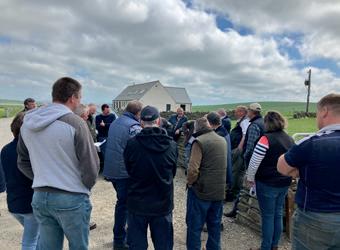
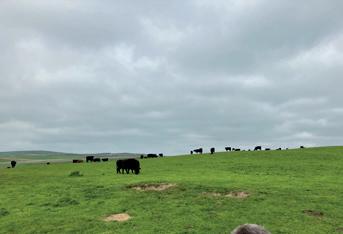
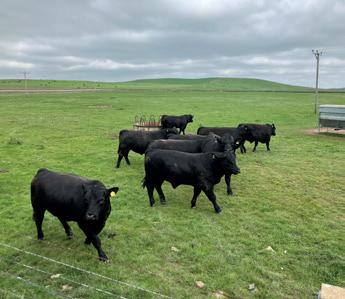
Decisions are not based on a variety of factors but ultimately, they are seeing great rewards for using the evidence and instinct to maximise efficiency.
The herd, comprising of 220 cows and heifers, 50 commercial Angus and 50 pedigree stock, are situated on 1000 acres made up of 400 acres coastal heath and 600 acres in-bye land. The farm also has 200 pedigree Lleyns, monitored carefully for their lambing success rates.
Being on the coast, the land is predominantly sandy which enables to Stewart to keep the cattle out all year.
Again, challenges discussed included the cost of any imports such as feed and weight to account for transportation to market. However, with the success of calving and lambing without needing to house helps keep costs to a minimum.
They’ve moved away from showing bulls, now selling direct. It’s clear the time invested in rearing premium pedigrees has built up a good reputation so he trades from that. A key message from both Colin and John was that for their stats and figures to be meaningful, it important to have consistency of vetting when measuring. “You need that consistency to know that you are assessing on the same basis.”
From there it was off to visit East Howe Farm, where NFUS Orkney Regional Chair, Stevie Hay, farms with his brothers Marty and Duncan. They have a mixed farm of 400 acres, with 100 beef cows and 160 ewes, and a successful contracting business.
“The farm when the family first had it was only 75 acres. Our grandfather had come to work on the farm 100 years ago and the owner didn’t have any descendants for he ended up inheriting it. Our Dad had three boys and we all wanted to farm, so over time we’ve expanded,” explained Stevie. “Our kye (cows) are housed inside from late October to mid-May with calving starting mid-February. We use Charolais bulls and have got a mix of Saler x Simmental and Limousin x Saler which are smaller and actually better on the slats.”
Stevie focusses on mostly livestock,
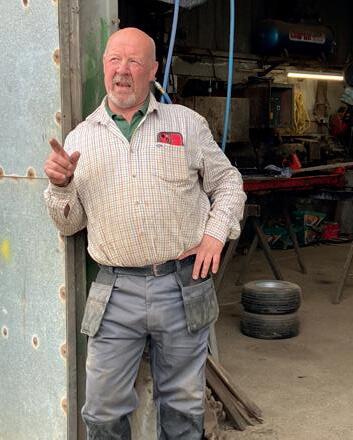

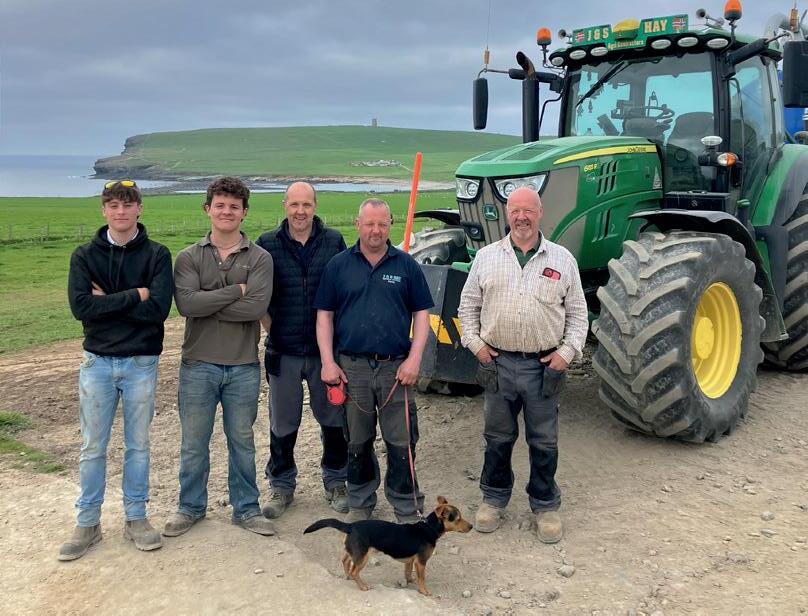
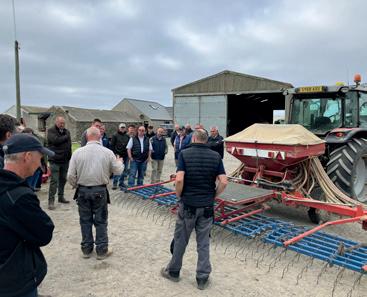
while Marty and Duncan lead the contracting. Marty explained how they have grown that side of the business over time. Demand has fluctuated in the past but now with few contractors around they are never short of work.
“You could say it was the dream scenario, but it also makes us have to work harder and be careful we don’t take on too much given our resources.”
It was interesting to learn about the ongoing challenge they along with
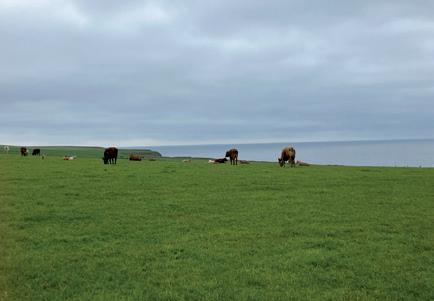
farmers across Orkney have with geese. “It’s incredible how much damage they can do in such a short time frame. They can land and strip all the seed off a field faster than you can imagine all at the cost of the farmer.”
They also grow Bere barley, a fastmaturing heritage grain ideal for the island’s cycle. It’s milled locally and used in malting. Homemade oatcakes and bannocks made from Bere rounded off the visit.




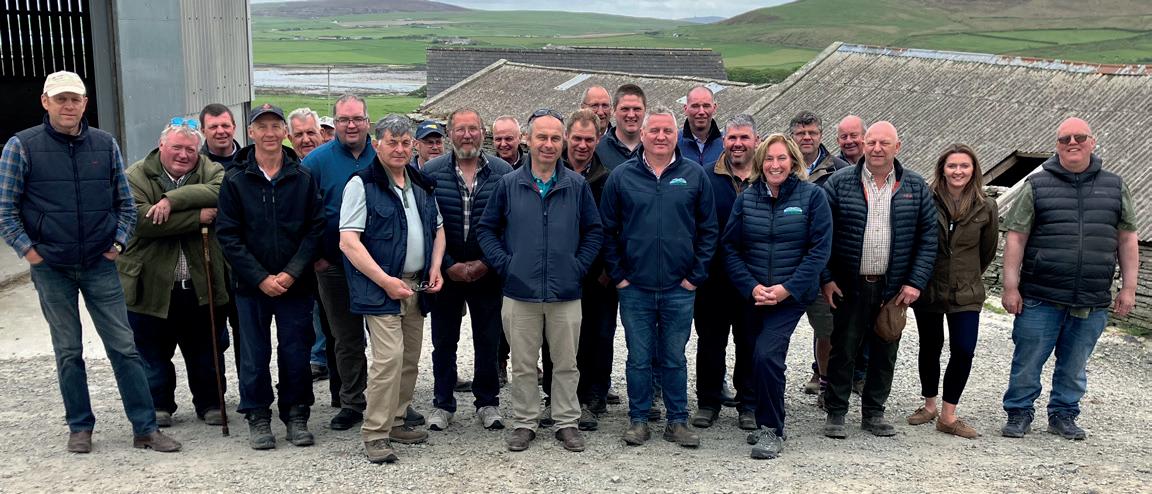
Our next stop was Laga Farm, home to the Cursiter family. Here we met Michael, a past NFUS Orkney Regional Chair and Less Favoured Areas (LFA) committee representative, his son Sean and brother Simon. 534 acres in total, the farm focusses on cattle and sheep, selling Llyen shearling rams, Shorthorn bulls and commercial stock.
“In addition to the livestock we get some good income from the large wind turbine while our small turbine at the home farm supplies the houses and steadings.” explained Michael.
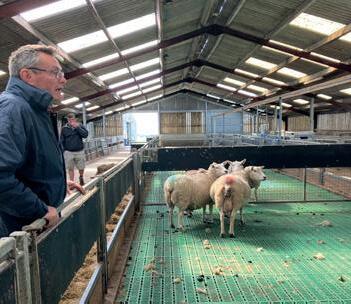
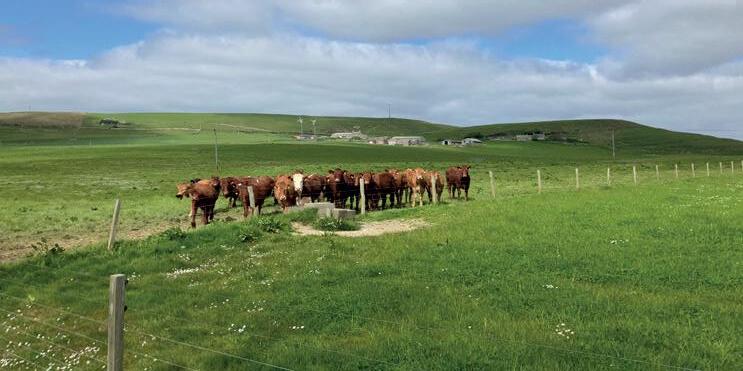
A large wind turbine brings extra income and a smaller one powers the farm. A new lambing shed, complete with adjustable pens and a circular flow system, has streamlined handling.
“Getting the housing and handling system right is important. It’s been worth investing to get something that works and if efficient. For example, buying the weighing scales recently with grant money means that we can do the weighing at the same time as we’re scanning and dipping etc. We also laid the more expensive German-made tiles to put on the slats. The animals really
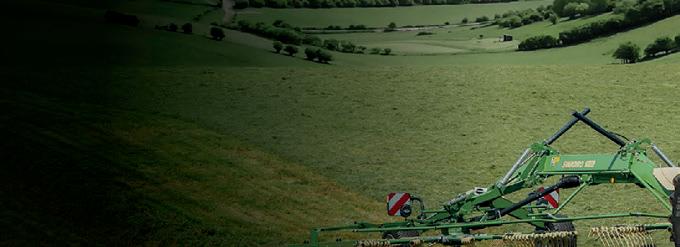

like them and they last longer than other cheaper options.
“Ideally we’d have a deeper slurry collection space beneath the slats but we have to work with what we’ve got. It just means we clear out more frequently.”
The goal of the family is to achieve easy calving and lambing. As farmers, it makes sense to them particularly as they have limited housing space but it’s also something they are conscious the market is looking for at sale.
Sales are split between local markets, Stirling, Carlisle and now online.
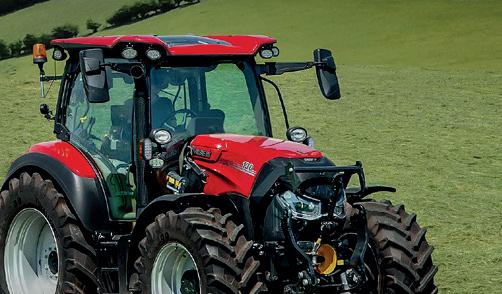

Sadly my visit to North Biggin Farm near Dounby was all too fleeting as I had to head back to the airport to return home. But in the short period I was there, owner Alan Corrigal, a past NFUS Orkney Regional Chair, was able to show us around the steadings and some of his cattle.
Alan is a beef and sheep farmer focusing on stabilisers and unusually for Orkney finishes males as bulls.
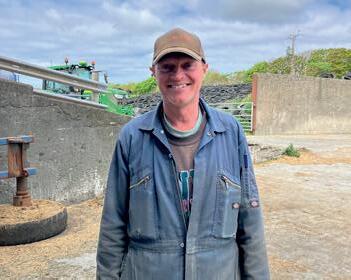
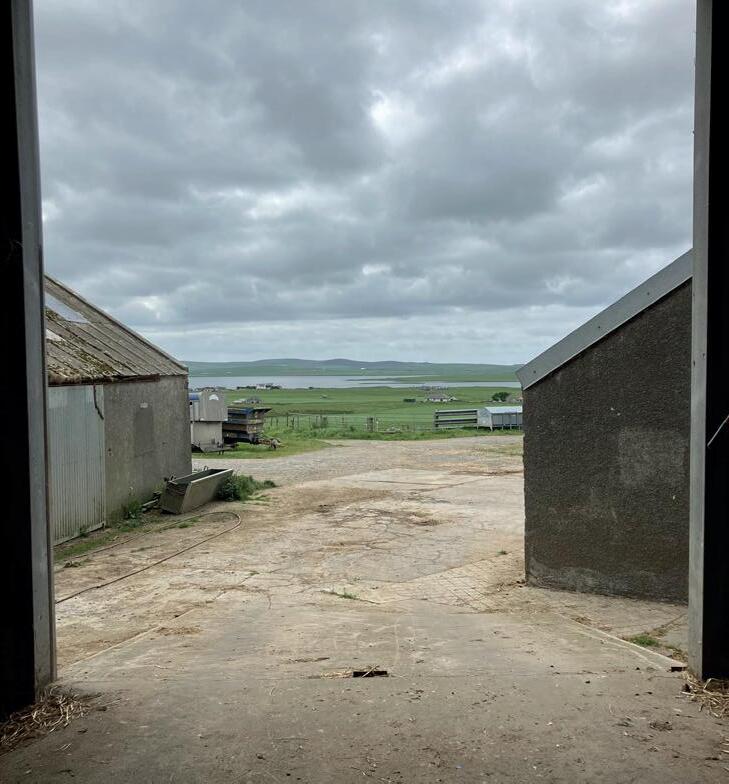
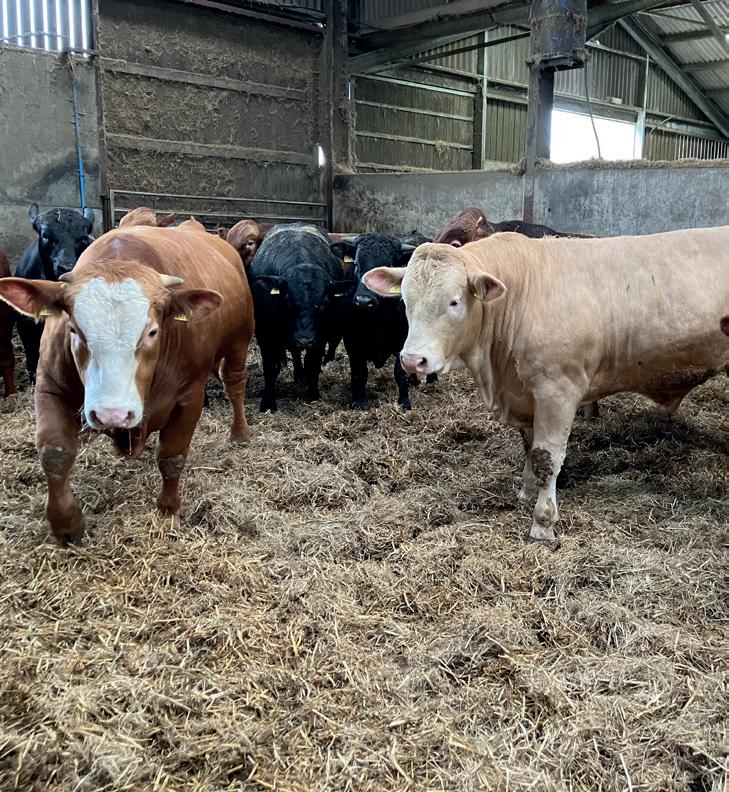
“I’ve got 200 kye and 250 ewes,” he said. “We also grow 100 acres of barley. In 2015, I really started grading up the herd and have been making changes/ tweaks along the way for example mixing molasses with the barley mix which really increases weight gain in the young bulls. I’ve also experimented with breed the stabiliser is a mix of Red or Black Angus, South Devon, Gelbveigh, American Black Simmental. I’m after big frame with feed efficiency.”
On the sheep front Alan is also interested in the stats. He too has been challenged for the weight ahead of transport but insists that it’s needed ahead of transportation. “The variance in weight from home to market is predominantly linked to dehydration. There’s no alternative water replacement solution,” he explained.
From genetics to geese, grain to grazing, Orkney’s farmers are tackling challenges with grit, innovation and a deep respect for the land and livestock. Whether hosting visitors for the Island Games or shipping cattle to Preston, one thing’s clear: agriculture remains at the heart of island life.
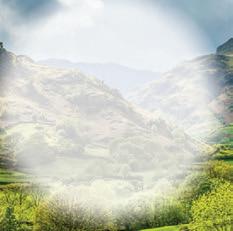





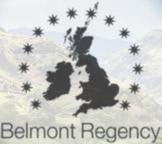




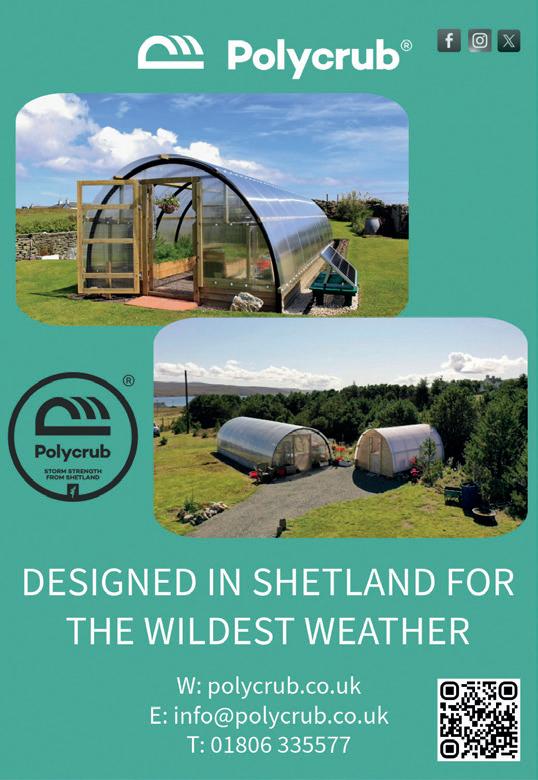


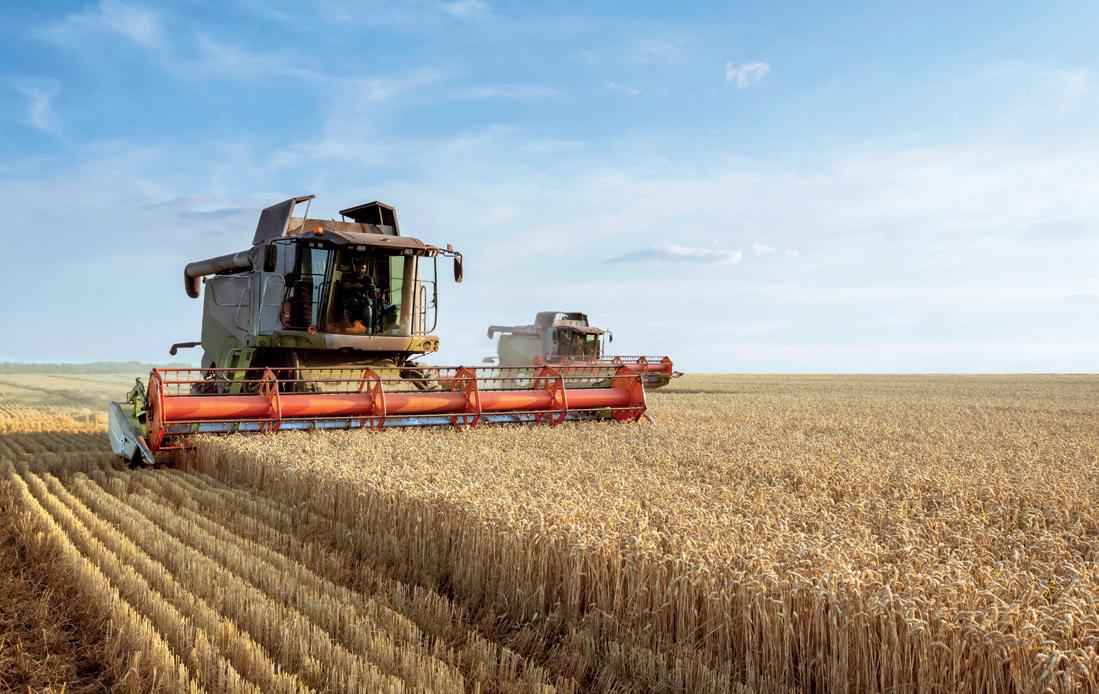
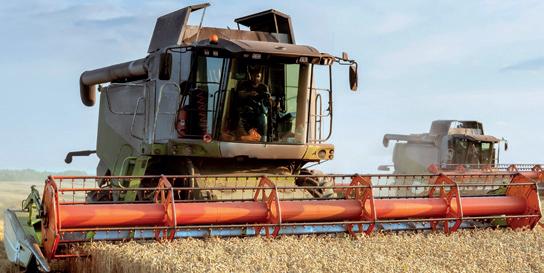













•
•
The
•
•
The
Skips also available for scrap metal. Give
Skips also

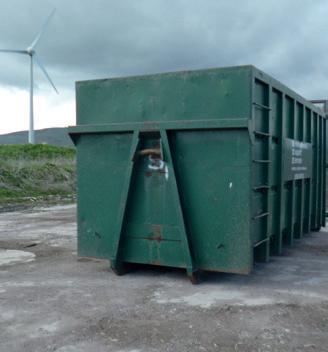
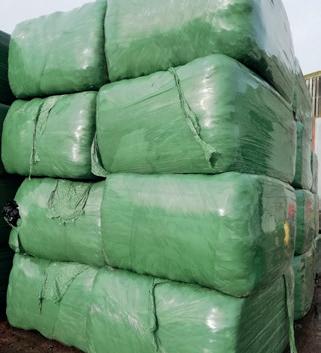
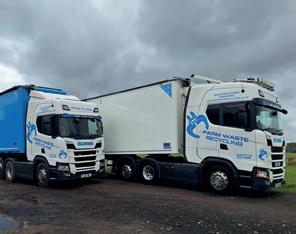
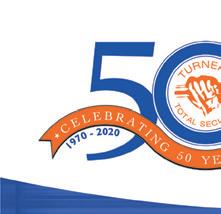


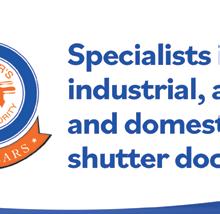



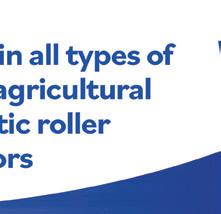

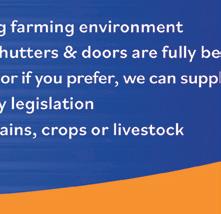






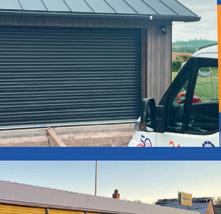

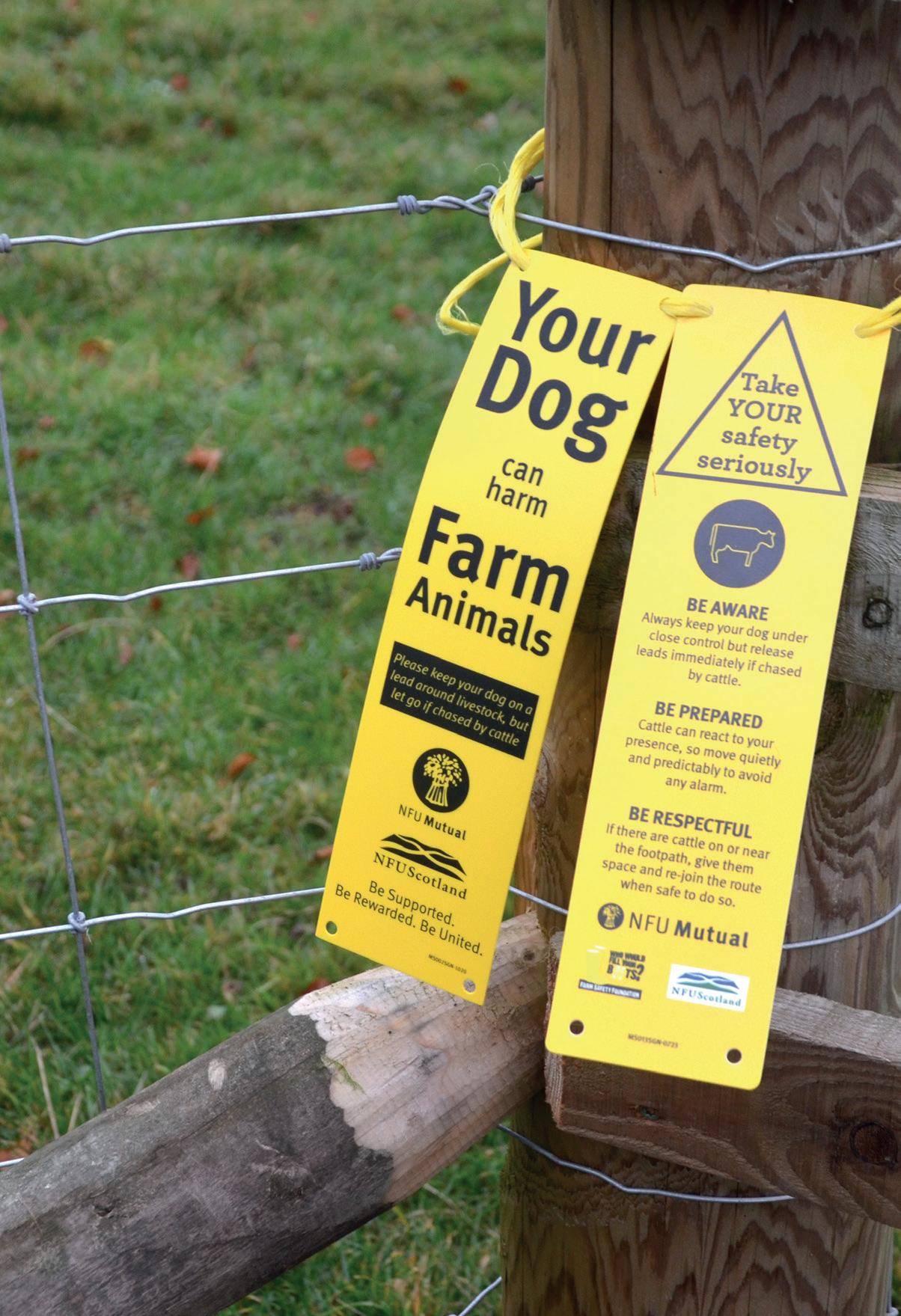
From Shetland to Stranraer, Scotland’s farmers and crofters have long endured daily challenges before added risks of crime or serious injury. As resources have been stretched thin and business demands increased, threats to both personal safety and farm security have become harder to ignore.
This July, the Farm Safety Foundation has announced the return of Farm Safety Week. Just weeks after NFU Mutual’s latest Rural Crime Report highlighted continued concerns for agriculture, the Foundation’s unmistakable yellow wellies and powerful messaging reminds us all to take care and take action.
For the campaign’s 13th year, NFU Scotland has amplified a call to stay alert, stay protected and stay safe. Together, these growing threats have demanded urgent attention.
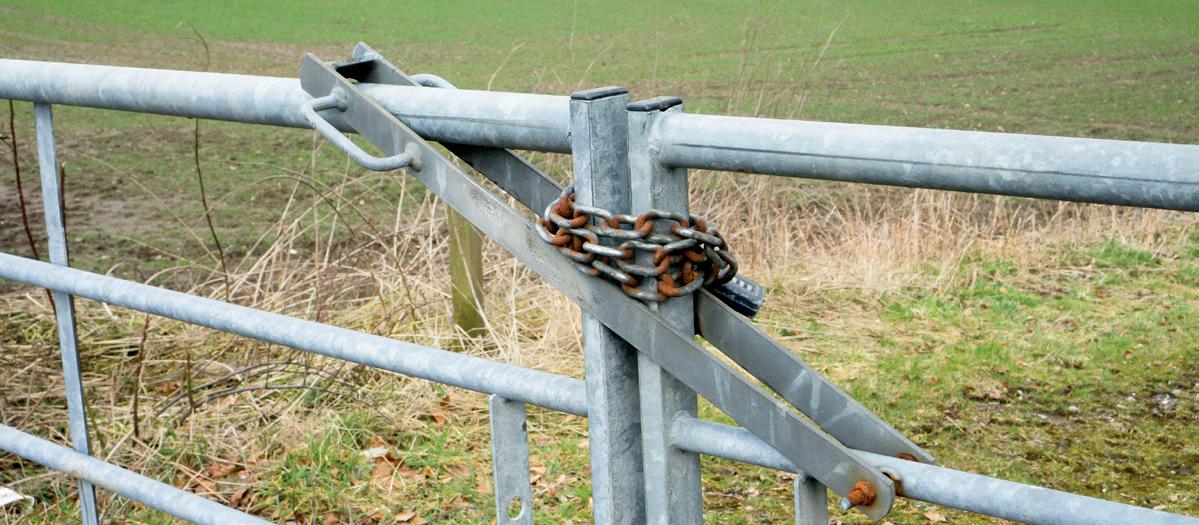
According to the 2025 NFU Mutual Rural Crime Report, costs related to livestock theft increased by 3% across the UK in the past twelve months. While quad, all-terrain vehicle (ATV) and tractor theft costs decreased, trailer theft rose by 15%. Despite an overall decrease in the overall UK costs related to rural crime, this worrying surge in organised thefts left farmers and crofters with considerable financial burdens, emotional distress and insecurity.
A particular security concern this year came during lambing season, when reports emerged of individuals attempting to steal lambs from fields. Members particularly affected were based in the Union’s Dumfries and Galloway, and Forth and Clyde regions. As a core member of Scottish Partnership Against Rural Crime (SPARC), NFU Scotland worked closely with Police Scotland following each theft in the hope of
bringing perpetrators to justice and mitigating further incidents.
NFU Scotland Policy Manager for Rural Business, Rhianna Montgomery, described the thefts as deeply concerning: “Each theft and break-in was an attack on a farm or crofting business and a family’s livelihood. We need robust, coordinated efforts to both prevent these crimes and bring offenders to justice.”

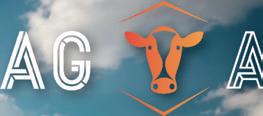


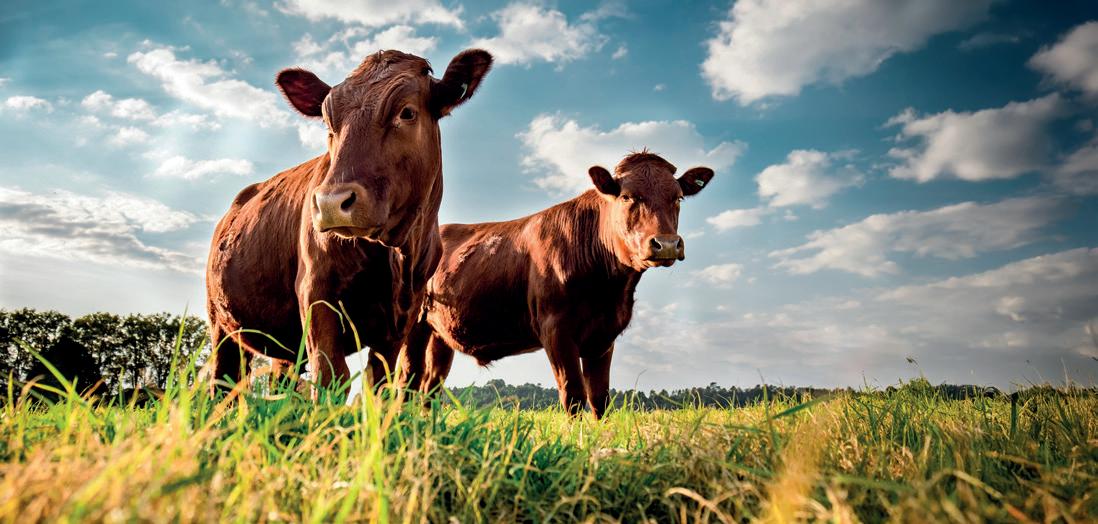









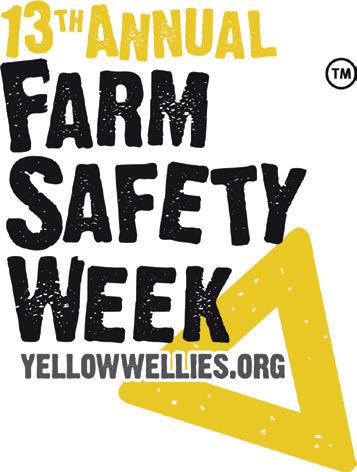
Farm Safety Week has become a staple of the farming calendar. Yet, despite greater awareness, agriculture remained the UK’s most dangerous industry. Between April 2023 and March 2024, 27 lives were lost on UK farms: a heartbreaking toll that included family members, workers and children.
The Yellow Wellies campaign was built on supporting the physical and mental wellbeing of the UK’s farmers and crofters. Through safety training
sessions and ongoing statistic monitoring, it has successfully increased conversation around farming security and wellbeing.
Last year, the campaign focussed on real-life stories from those who had experienced near misses or lost loved ones, aiming to humanise statistics.
Recently, the iconic Yellow Wellies team was spotted around the Royal Highland Show, increasing awareness ahead of July’s Farm Safety Week and continuing that important conversation.
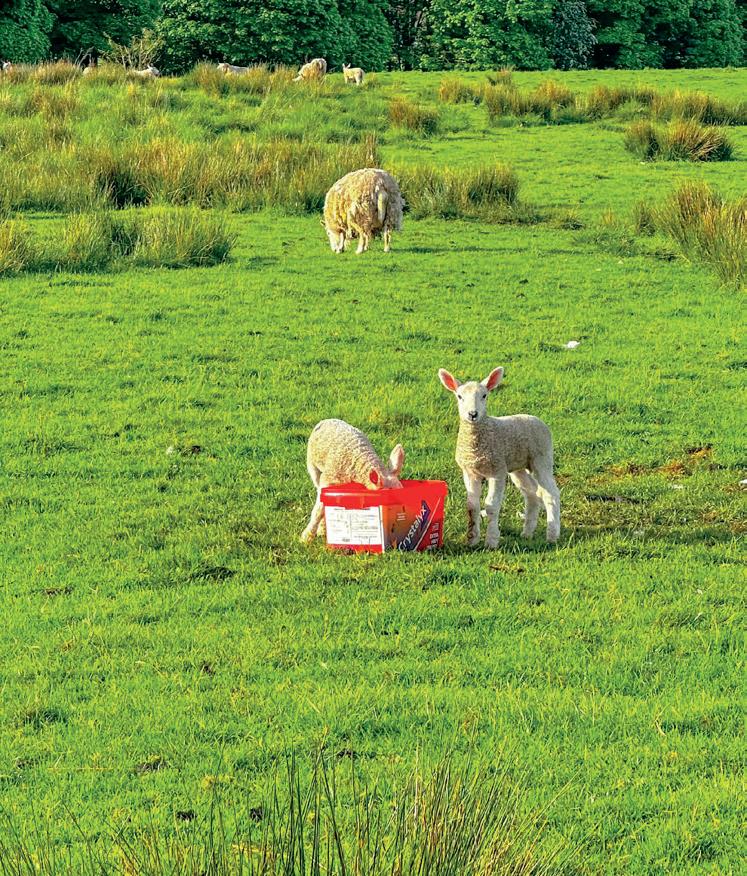
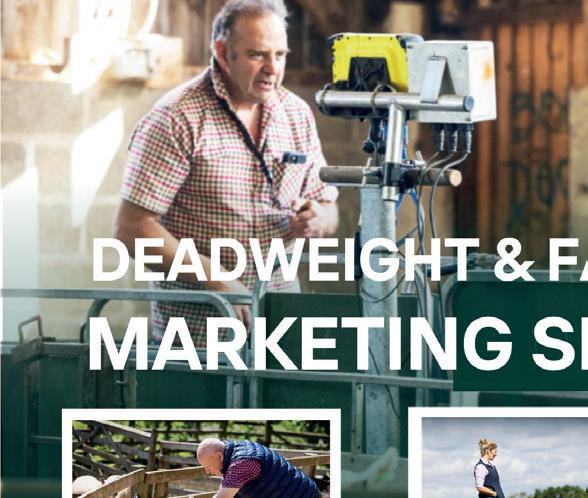
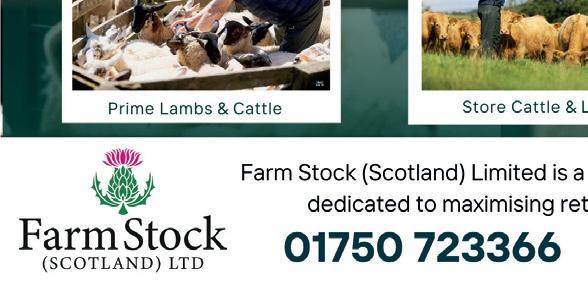
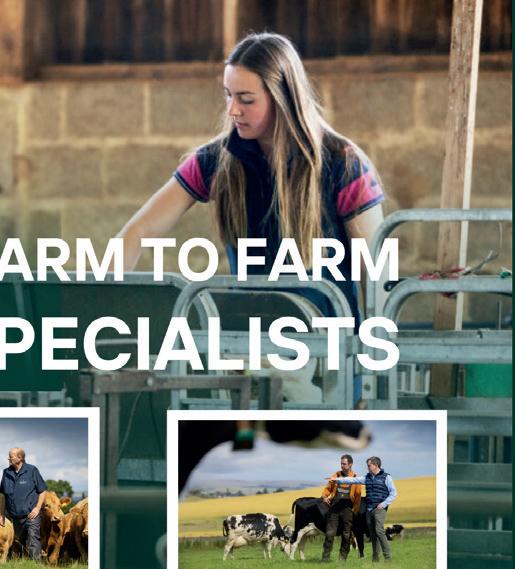
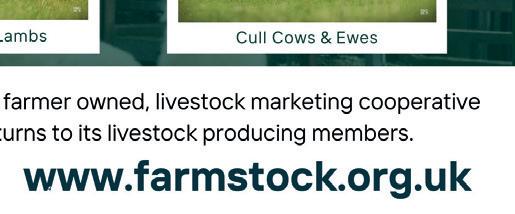
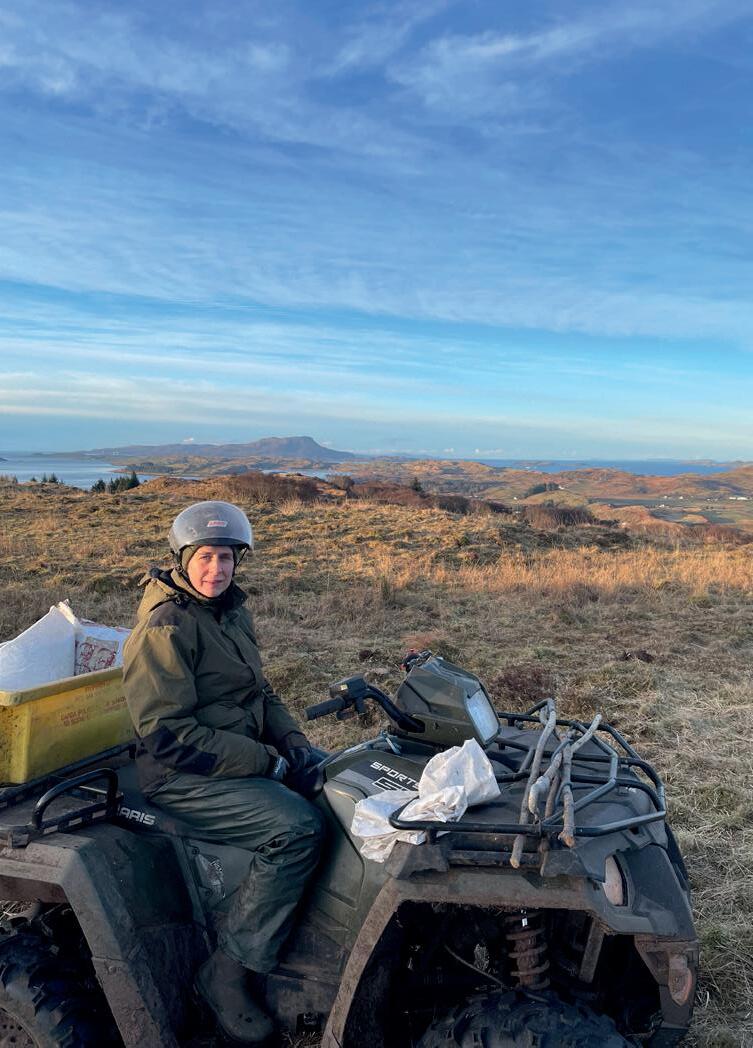
What links farm safety and security is more than shared geography. Both have required prevention, planning, and partnership. Both also have serious mental health implications.
NFU Scotland Vice President Duncan Macalister has led on safety and security for the Union. He put it plainly: “The stress of a major theft or a serious accident doesn’t just end when the police leave or the ambulance pulls away. It stays with farmers and with their families for days, weeks, months and years to come. That toll, while hidden, is very real.”
In recognition of this, NFU Scotland has strengthened its advocacy for wellbeing services, signposting members to the likes of RSABI, which offers confidential, tailored support for those experiencing mental or financial pressure.
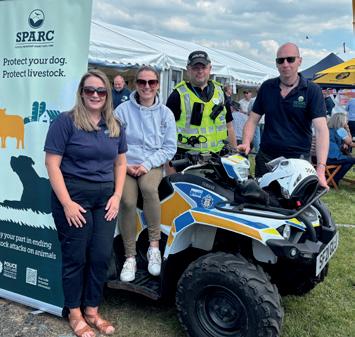

While some solutions require government investment or stronger enforcement, many preventative steps are within reach for every farm business:
• Always wear a helmet when using a quad bike or ATV.
• Fit GPS tracking devices to vehicles to assist emergency response in the event of an accident.
• Keep gates closed and locked, especially near roads or public paths.
• Remove keys from vehicles when not in use and store them securely.
• Park equipment out of sight when possible.
• Install motion-sensor lighting and CCTV in key locations.
• If a theft or livestock attack occurs, gather as much information as you can: vehicle registrations, CCTV footage or photos, precise times and locations. Share this with Police Scotland as soon as possible.
• Contact your local NFU Scotland Regional Manager for further advise and help with signage.
Whether it’s fi tting a padlock, refusing unsafe shortcuts or reporting a crime, every decision matters. Farming is physically demanding, emotionally exhausting and often solitary but no one is alone in facing safety or security challenges.
As Farm Safety Week 2025 approaches, the message from NFU Scotland, SPARC, and NFU Mutual was loud and clear: protecting your people and your business is not a burden and is the foundation of a thriving, resilient rural Scotland.
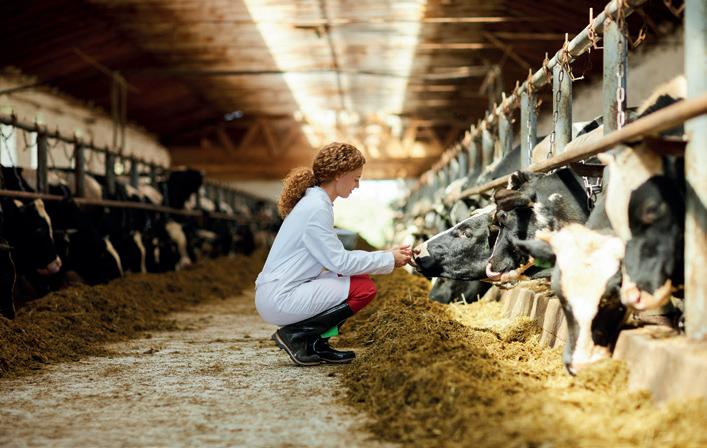
Use well-designed cattle handling systems and take extra care during potentially volatile times like calving or TB testing. Never underestimate the strength and speed of livestock.
Use helmets when riding quad bikes. Avoid carrying passengers on singleperson vehicles, especially children.
There is no doubting the vital role that farming plays in Scotland’s economy and in our communities. 67,400 people are directly employed in the agricultural sector, representing 8% of the total rural workforce, with 367,000 further jobs indirectly supported by the sector.
Sadly, when it comes to accidents at work, this sector is the most hazardous industry in the UK in terms of workplace injuries and fatality rates. According to the Health & Safety Executive’s annual statistics for 2023/2024, the rate of injury is 21 times higher than all other industries.
In 2023/2024 there were 27 deaths in the UK agricultural sector; 23 involving employees and four members of the public. The most common causes of death, and non-fatal injury, were being struck by moving vehicles, falling objects, falls from height and being injured by livestock.
The sector is, by its very nature, hazardous. Farming will always involve some level of risk, no matter what precautions are taken, but many accidents are preventable with the right awareness, planning and training of sta .
Regardless of the size of their business, farms have a legal duty under the Health and Safety at Work etc Act 1974 to ensure, so far as is reasonably practicable, the health, safety and welfare of their employees. This includes providing them with a safe place and system of work and ensuring that members of the public who might be a ected by the running of the business, are not exposed to risks to their health and safety.
Many farming businesses will not have the benefi t of an employed or consultant health and safety advisor
to assist in developing safe systems of working. There is, however, a lot of readily-available free guidance through the HSE’s own website and also through campaigns such as Farm Safety Week run by the Farm Safety Foundation, which this year runs from 21 to 25 July 2025. Farming businesses that get involved in these types of initiatives help to ensure that important safety messages reach every part of the farming community.
Improving safety on farms does not require a considerable overhaul nor costly fi nancial investment. It does however, require some thought into how to create a safer culture. Here are some key considerations to bear in mind, to ensure you are meeting your legal duties and improving practices to create a safer place of work.
Take time to evaluate the dangers present in daily tasks. What could go wrong? What steps can you take to reduce the risk? Documenting and reviewing these regularly helps keep safety top of mind.
Ensure everyone on the farm — including seasonal workers and family members — is trained in safe practices. This includes proper use of machinery, handling of chemicals, and emergency procedures. Carry out regular refresher training.
Keep all equipment in good working order. Replace worn-out parts, check brakes and lights, and ensure guards are in place. Preventative maintenance can save lives.
Farms are not playgrounds. Keep young children away from work areas and never allow them to operate machinery. Designate safe zones where children can play under supervision.
Knowing an employee’s location is important particularly when working in isolated locations or where you have lone workers. Basic steps such as keeping a mobile phone and having emergency contact numbers visible on farm buildings can assist when an incident occurs and time is of the essence to seek emergency help. GPSenabled apps and personal emergency alarms are also useful items.
Taking such steps isn’t just good practice – they are necessary to reduce the number of workplace accidents on farms and improve farm safety.

Partner and criminal solicitor advocate
Clare Bone is a health and safety expert at Brodies LLP, with 25 years’ experience working with clients in the agricultural sector.
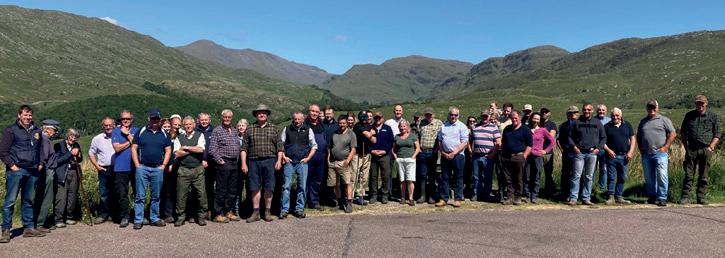


REGIONAL MANAGER
Lucy Sumsion
07787 434 104 lucy.sumsion@nfus.org.uk
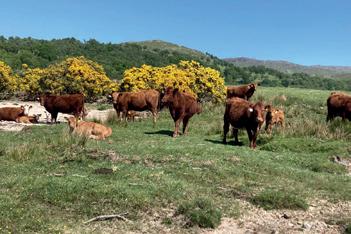
In mid-May, the Locahber and Sunart branch held a very successful onfarm event at Dalilea Farm near Acharacle. Courtesy of the Macaulay Family, over 45 people enjoyed glorious sunshine and spectacular views. Everyone was very impressed with the Stabiliser cross-cows and young calves that John Macaulay rears and to hear about his deferred grazing system.
Making the most of the time, sea eagle predation was also discussed as were some of the other challenges of hill farming in a remote part of the west Highlands. Andrew Connon, NFUS President, also attended and was able to update everyone on some of the
Just one day after the Dalilea event, the Argyll and Islands Regional Board held a meeting in Cairndow where they were joined by Jenni Minto MSP and Brendan O’Hara MP. Union President Andrew Connon was there again for day two of his west coast tour. The afternoon included a visit to A & L McCrae Ltd Clachan Quarry on the Ardkinglas Estate, followed by a visit to Fyne Ales and a tour of their specialist Origins Brewery.
A hot topic of the day was proposed works on the Rest and Be Thankful site and the use of the Old Military Road (OMR) during construction. That very weekend, the OMR was in operation as a safety measure due to heavy wet weather. Thankfully, despite five inches of rain over the weekend and into Monday, there did not appear to be any movement on the hillside. However, it was a timely reminder of the potential impact using the OMR will have on us all while the proposed Debris Flow Shelter is constructed – a minimum of four years.
As we head through the summer months with the Royal Highland Show behind us, attention turns to local shows. Many of you will be heavily involved in these and fully understand the effort that goes into organising great events. We hope the weather is kind to all the shows this year. NFU Scotland and NFU Mutual will again be attending many local shows including Sutherland, Caithness, North Uist, Nairn, Skye and Grantown. Your local group secretaries will have stands at these shows, please go along, grab a cup and have a chat. Members of the NFUS Presidential Team and staff will also be there to learn from you. We want to hear about any issues or concerns you may have, to see how we can help. Also at local shows, you’ll have the
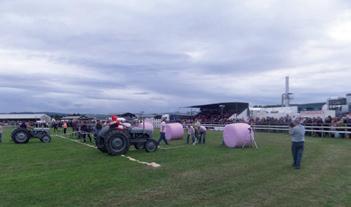
opportunity to meet with new Group Secretaries Dave Jones in Elgin, and Julia Fotherby in Dingwall and Thurso.
The Black Isle Show is always a highlight for NFU Scotland and NFU Mutual. This year, as well as our usual political engagement, President Andrew Connon and CEO John Davidson will be on the stand. Please come along for a hot roll and catchup with all of us. Once more, the Dingwall, Elgin and Thurso NFU Mutual offices from have combined to be headline sponsors of the Black Isle Show.
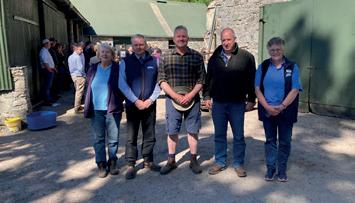
current national issues our Union has been dealing with.
Paolo Berardelli, the BBQ King, cooked up a fantastic lunch of delicious Dalilea beef and mutton burgers as well as the fi nest venison loin. Local home baking and Highland Fold Ice Cream fi nished off the lunch!
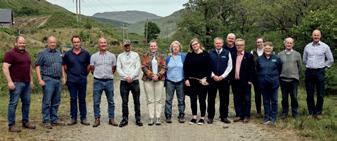
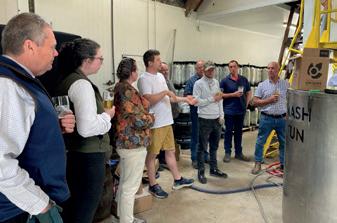
Please encourage your friends and neighbours not already involved with NFU Scotland, to join us. The more members we have, the stronger our voice against UK and Scottish Governments. Right now, we have the exciting Member Referral Scheme to earn you 10% off your 2026 membership fees for every successful sign-up you refer to us.
Refer 10 new members? Pay nothing in 2026.

AND BORDERS




REGIONAL MANAGER
Lindsay Brown 07780 441 750 lindsay.brown@nfus.org.uk

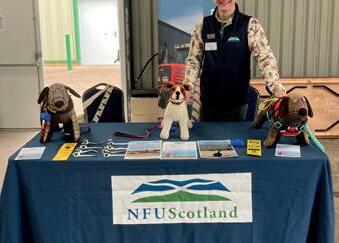
It was another successful Borders School Day with the help of Jordan Orme from the Member Services team. We talked to the children about the importance of keeping dogs on a lead around livestock and the need to pick up after pets, disposing waste responsibly. It was a fantastic day, a great opportunity to share these important messages and a brilliant showcase for the Borders countryside.
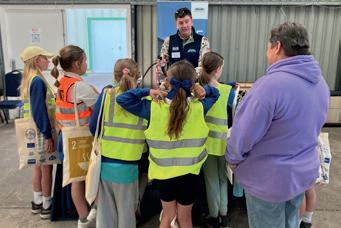
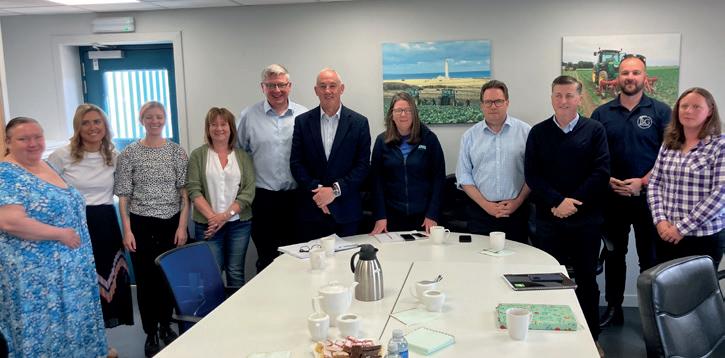
e had a great turnout at Carfraemill for our recent meeting with accountancy firm Johnston Carmichael, legal advisors Gillespie Macandrew, and NFU Mutual. The team covered a lot of important ground from possible changes to Inheritance Tax (IHT), Agricultural Property Relief (APR) and Business Property Relief (BPR), to practical ways to plan ahead.
There was plenty of discussion around getting your business ready for succession, making sure the handover goes smoothly and planning fi nancially for retirement or any unexpected costs. The big takeaway? There’s no one-sizefi ts-all answer. Every business is diff erent and getting professional advice is key. It’s never too early to start thinking about succession planning.
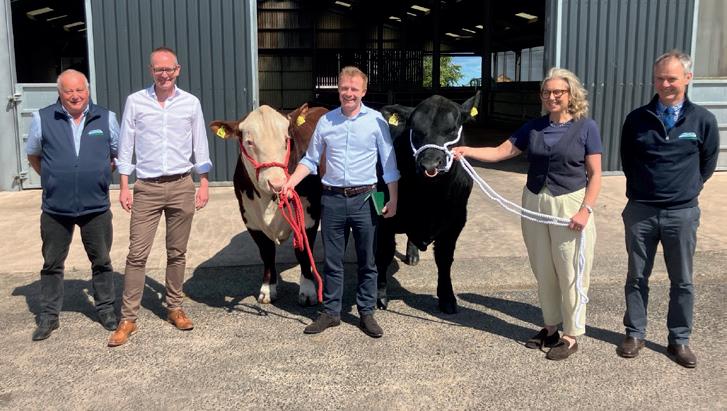
This past month, we had parliamentarian meetings in East Lothian, Midlothian and the Borders. We started at East Lothian and W&R Logan farm with Minister of State for Trade Policy and Economic Security Douglas Alexander MP, and MSPs Paul McLennan, Craig Hoy and Martin Whitfield. Then to Midlothian at Ross Farms Wester Middleton with Kirsty McNeill. Finally, we visited Duns in the Borders with John Lamont MP, Shadow Minister (Environment, Food and Rural Aff airs) Robbie Moore MP, and Rachael Hamilton MSP.
At each of these meetings, there was a lot of discussion on the impacts of Westminster policy for family farming businesses as well as the
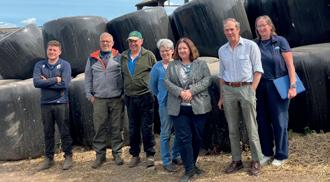
benefi ts agriculture brings to the wider Scottish economy. Thank you to all the members who hosted and attended.
Kelso and Dalkeith Show
With the season well underway, come and meet us at Kelso Show and Dalkeith Show for some refreshments and a blether.
On Saturday at Kelso, NFUS CEO John Davidson and Vice President Robert Neill will be on stand to meet members between 10 – 12pm.
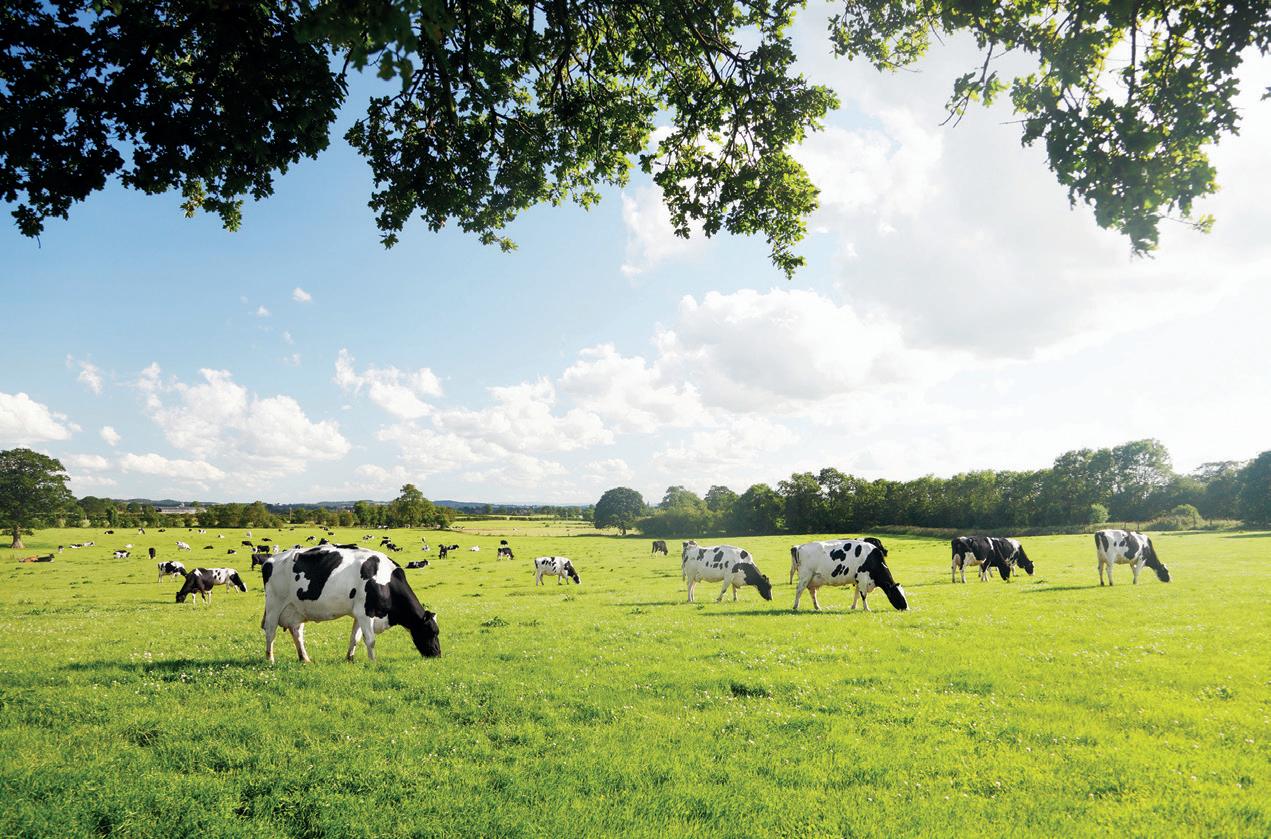



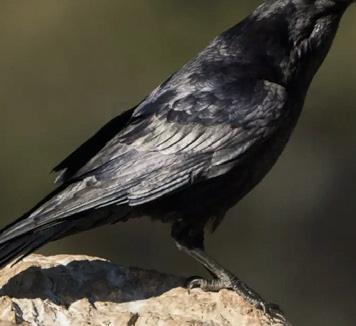




W07554 741 030
lee.smith@nfus.org.uk
e became aware from the team in Orkney that the islands have had significant issues with ravens and after speaking with other regional managers, it’s clear that this is a growing problem. In a recent meeting with NatureScot, Union managers from Argyll and Islands, Orkney, and Shetland all highlighted similar concerns.
Recently, NFUS Shetland Chair Cecil
Eunson attended a meeting in Orkney with NatureScot to outline the scale of the issue locally. He explained that raven numbers have increased noticeably in Shetland and the impact on livestock is becoming more severe.
Ravens are highly intelligent and opportunistic birds, and their growing numbers have brought significant problems for crofters. Some crofters reported “mobs” of ravens attacking livestock. These birds are taking newborn lambs, ducks and even older lambs. In some cases, they have been known to attack vulnerable ewes.
To deter these birds, some crofters are using kites to help protect livestock, others are applying for licences from NatureScot to shoot ravens.
These incidents not only cause distress but also real losses for crofters. The loss of even a few animals can have a major financial impact. For some, it means the loss of future breeding stock, for others, it directly affects their ability to sustain crofts. That’s without mentioning the significant emotional stress.
This is why it’s vital for crofters and farmers in Shetland to report raven incidents. NFUS Shetland encourages anyone affected to come forward and share what they’ve seen, whether that’s attacks on livestock, evidence of increased raven presence, or patterns you’ve observed over time.
You can contact me directly via email at: lee.smith@nfus.org.uk.




H07775 838 926 holly.fitzsimmons @nfus.org.uk
ere in Ayrshire, I had the pleasure of hosting our new Communications Director Carly Ross along with members of our regional team last month. This was a great opportunity to look at where the
communications opportunities are across the organisation and where we can incorporate regional ideas.
We were lucky enough to spend time with the fantastic team at The MacRoberts Farming and Rural Skills Centre at Dumfries House. Ayrshire’s Regional Vice Chair Sally Kennedy, who is one of the Farming and Rural Skills Educators, gave us a fantastic tour of the facilities. Here, we learned all about the training opportunities on offer to schools, students and anyone who would like to pursue a land-based career.
After this, we headed to Muirkirk to meet with David and Cora Cooper to hear
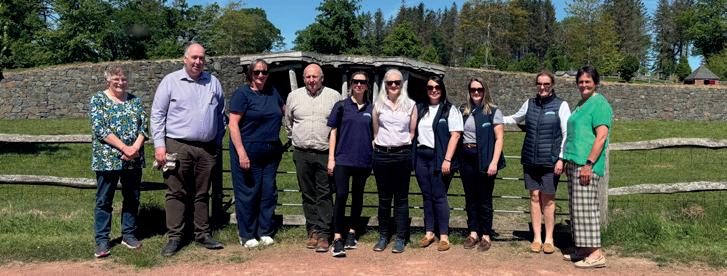
Saturday 2 August: Voe Show, NFUS will have a presence at the show.
Saturday 9 August: Waas Show, NFUS will have a presence at the show.
Wednesday 13 August: NFUS will have a tent at the Cunningsburgh Show with special guest NFUS Vice President Duncan MacAlister. Come along for a chat and to meet Duncan and fi nd out how NFUS are helping you.
Saturday 30 August: Unst Show
Saturday 6 September: Yell Show, NFUS will have a presence at the show.
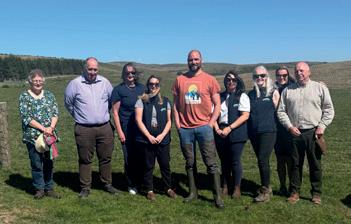
about some of the important work they have been doing on and off the farm.
We spoke in length about the potential consequences of the Land Reform (Scotland) Bill, peatland restoration, the role of livestock in land management and soil health. It was also great to hear about David’s experience with Just Farmers, who are a community interest company, enabling farmers to use their voice for change in the UK industry. They offer fullyfunded media education workshops to build greater connections between us and press. For more information visit www.justfarmers.org
Please do update us on what you are up to in the region or about anything that you think should be highlighted. It’s important we share the good work that is going on behind the scenes – we have the next generation to inspire!




REGIONAL MANAGER
Lorna Paterson
07786 860 453
lorna.paterson@nfus.org.uk
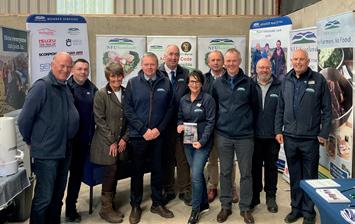
BeefTech at Home Farm, Peterhead, was a tremendous success with fabulous weather, superb hosts and great eff orts by volunteers Fiona Davidson and RNAS (Royal Northern Agricultural Society). Thank you to all staff and offi ce-bearers for supporting the NFUS stand, and to everyone who visited us on the busy day.
Congratulations to Gordon McKilligan for winning Nigel Miller’s Livestock Health Scotland (LHS) competition on our stand. As a result of everyone’s competition entries and suggestions, we look forward to seeing Nigel design new LHS free projects for our farmers and for the benefi t of our industry. The launch of SmaW ids, aimed at boosting the biodiversity of the agricultural landscape in Aberdeenshire, was also a great success and well managed by Bruce Mackie, Jane Oosterhof and Fiona Chirnside from Aberdeen Council.
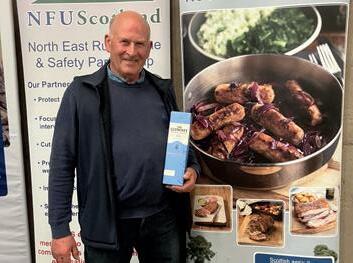
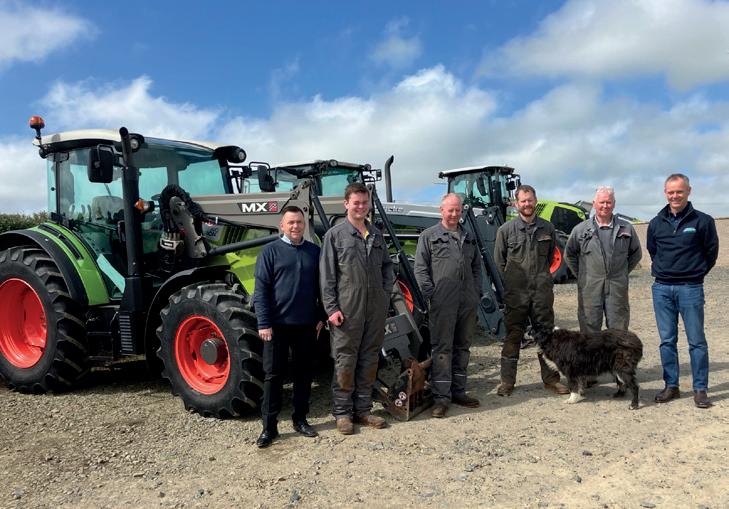
Our Group Secretaries and members were highly grateful of the recruitment support we received from Vice President Robet Neill, in May. During his two-day visit, we were delighted to hear several farmers and two businesses have since signed-up. We need many more farmers, crofters and businesses to join us and strengthen our collective voice for the benefi t of our precious industry.
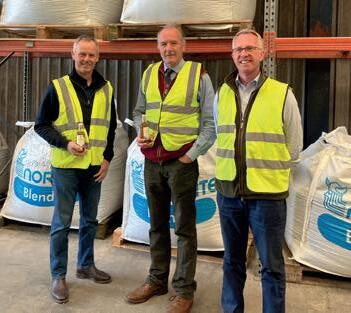
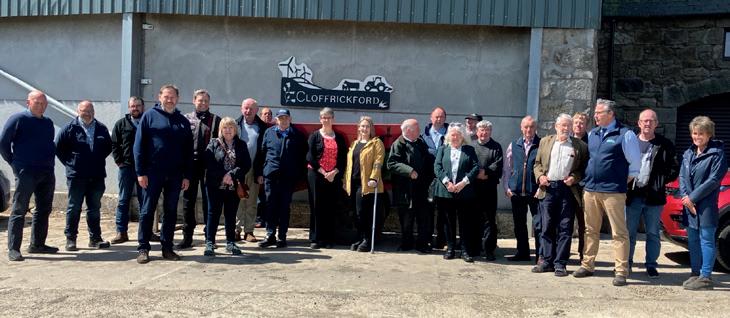
Members, politicians and councillors had fantastic discussions at Cloff rickford Farm, Auchnagatt, courtesy of hosts Davie and Val Smith. We focused on food and energy security as well as land reform and species management.
Local politicians, Karen Adam MSP and Maggie Chapman MSP were inspired by Davie’s knowledge in creating useful, practical green energy opportunities. Since the meeting, both MSPs have committed to supporting members access Just Transition funding. Conservative MSPs: Liam Kerr, Douglas Lumsden and Tim Eagle, all lamented the immense energy, knowledge and leadership which Davie portrayed. A great day was had by all!
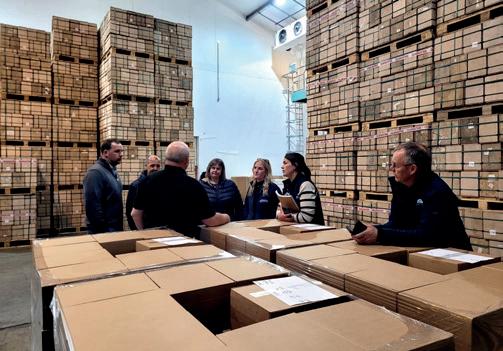
The Orkney Agriculture Forum was established in 2024 for Orkney Islands Council and various stakeholders to regularly discuss opportunities and issues that exist within the island agricultural industry. We have already evidenced the benefi t of this group and the positive outcomes that have materialised as a result.
While on visit, the Head Offi ce team had the opportunity to attend a recent meeting and participate in their fi rst Orkney Islands Council chambers meeting –always daunting fi rst-time!
They heard about the potential impacts of the Scottish Government’s new greening and Ecological Focus Areas (EFA) requirements from SRUC’s Professor Steven Thomson. The work in this fi eld by Agronomy and Agriculture Institute at University of Highlands and Islands Orkney was also covered as well as various up-dates on the proposed Orkney abattoir, sheep scab, fi nancial challenges in the outer isles, the Orkney Dairy Support Programme and the Farm Diversifi cation Grant Scheme. Robert and the NFUS team were also able to update on Union future.
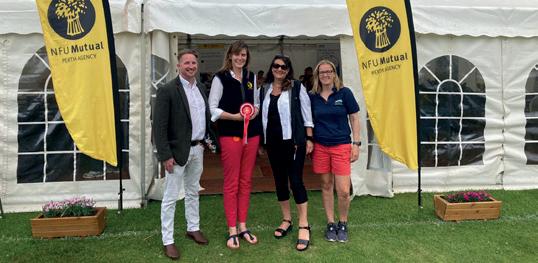




REGIONAL MANAGER
Kate Maitland
07919 001 23 kate.maitland@ nfus.org.uk
Perth Show is nearly upon us. If you plan to attend the show then please pop by and say hello. Myself, local secretaries and NFUS President Andrew Connon will be attendance and will be more than happy to address any matters of concern. Refreshments will be served all day and hot fi lled rolls from 11am.
We will also be in attendance at Aberfeldy Show and Kinross Show both on Saturday 11 August. We look forward to seeing you.




REGIONAL POLICY ADVISOR
John Laughton
01856 872 048
john_laughton @nfus.org.uk
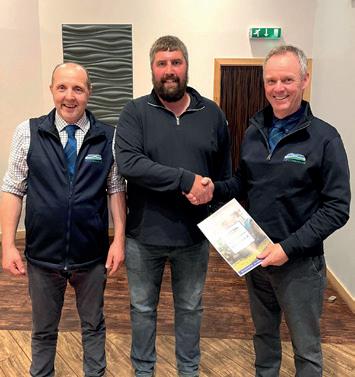
At the end of May, we had the pleasure of hosting Vice President Robert Neill, Supply Chain Policy Manager Lisa Hislop and Livestock and Less Favoured Areas Policy Manager Lucy McGillivray. Not only did this visit allow them to see and hear what was happening in Orkney, but was also a great opportunity for members to hear what NFUS was focussing on at a national level. During the team’s visit, we had a very well-attended regional meeting for members here. The meeting also gave us the opportunity to thank our former chair Colin Flett, for his hard work and eff ort over the past two years.
As well as visits to various beef, sheep and dairy farms to hear about sector issues fi rst-hand from members, the team also visited Linklater Engineering, Orkney Auction Mart, Orkney Livestock Association and Orkney Cheese to take in opportunities and concerns of the wider industry.
The River South Esk catchment spans a significant area of Angus, supporting a wide range of users and ecosystems. From rivers, burns and lochs to groundwater and the Montrose Basin estuary, this diverse water network plays a crucial role in land drainage, wildlife habitat, and the local economy. It provides vital resources for agriculture including drinking water, crop irrigation and livestock watering. It underpins tourism, recreation and salmon fishing in the region.
The River South Esk Catchment Management Partnership successfully delivered a first-stage management plan aimed at improving the health of local watercourses. That work has been recognised for its positive impact and now, the partnership is developing a second catchment management plan to guide activity from 2025 to 2030.
This next stage will focus on environmental improvement, community involvement, and economic opportunity. Land managers across the area are strongly encouraged to engage with the process and have their voices heard as the consultation continues. For more information or to get involved, please contact me directly.
DUMFRIES & GALLOWAY




REGIONAL MANAGER
Mhairi Dawson
07718 425 053
mhairi.dawson@nfus.org.uk
Last month, NFU Scotland welcomed the announcement that Galloway, South and East Ayrshire will not have a new national park. This decision aligned with the views of the majority of our members in the area.
This outcome follows signifi cant member engagement and detailed submissions from NFU Scotland during the consultation process. We were pleased to see that some of our recommendations have been acknowledged in the fi nal report issued for the Scottish Government by NatureScot.
We will now take time to review the full fi ndings and continue to engage constructively with existing land designations and partner organisations. Our goal remains clear: to deliver balanced outcomes that support food production, the rural economy, biodiversity, and climate action without introducing new regulatory burdens.
A sincere thank you to every member who participated in this process. Your constructive input has helped shape a more grounded and practical policy outcome.
NFU Scotland was delighted to speak to local Scottish Association of Young Farmers Clubs (SAYFC) about our exclusive young farmers membership category. The team will be on-hand to help with queries about the membership at Stranraer, Dumfries and Wigtown shows. Here, you’re welcome to come along to fi nd out more and can even sign up on the day. Visit https://joinnfus.org.uk/sayfcmembers/ today!
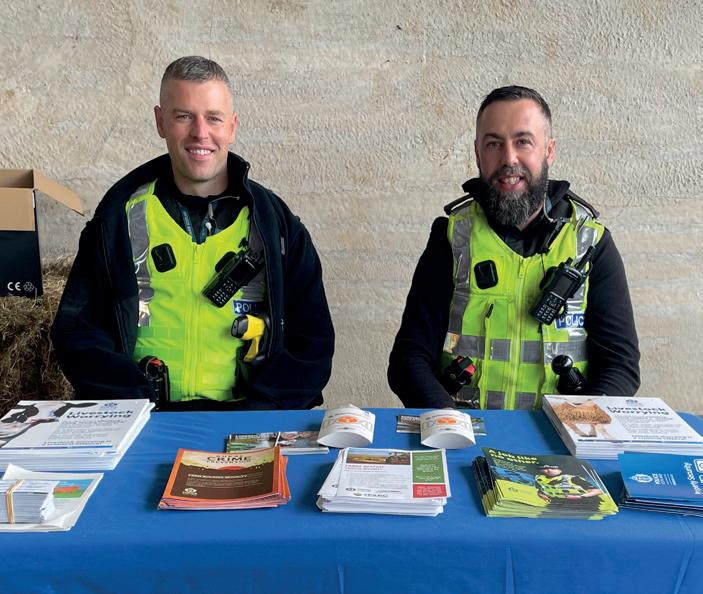
NFU Scotland was pleased to return to Open Farm Sunday this year at Meikle Richorn Farm, Dalbeattie, by kind invitation of James Fingland.
Alongside Police Scotland offi cers PC Andrew Osbourne and PC David Broadfoot, we used the opportunity to engage with the public on responsible access with dogs.
A key part of our messaging was helping visitors understand that while Scotland’s access laws are generous, they are based on responsibility. We taught visitors about the importance of keeping dogs under control, especially around livestock.
For attending farmers, we distributed access signage and highlighted our NFUS access issue log; a vital tool that helps us monitor trends and build evidence for stronger lobbying on access rights at both local and national levels.
Police Scotland was on hand to off er advice on crime prevention, including the benefi ts of DNA-tagging equipment and vehicles. This is a practical step in reducing rural theft and improving recovery rates.
Our thanks go to all involved, especially the Fingland family, for another successful and informative day.
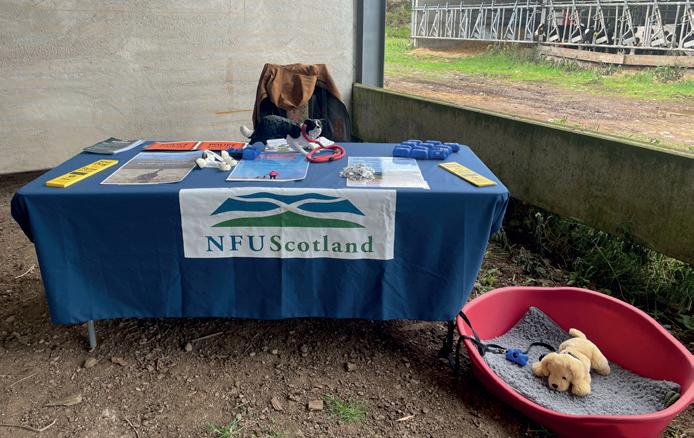
FORTH & CLYDE




Sheena Foster
07789 796 582
sheena.foster @nfus.org.uk
embers of the Dumbarton and Kilpatrick branch recently enjoyed a fantastic day out, taking in the best of rural life and local hospitality. The day began with a visit to Edentaggart Farm in Luss, where Andrew Rankin and his daughter Alice gave members an exhilarating off-road experience. They also offered a valuable insight into the workings and challenges of running their extensive hill sheep farm, a real eye-opener for all involved.
The group then set sail across Loch Lomond to Inchmurrin Island, where they were warmly welcomed by Dugald Scott for a guided tour, followed by a delicious meal at the family-run pub and restaurant.
Also joining the day was Tom Graham from NFU Scotland, who took the opportunity to highlight the range of
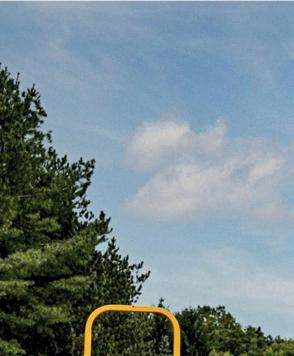
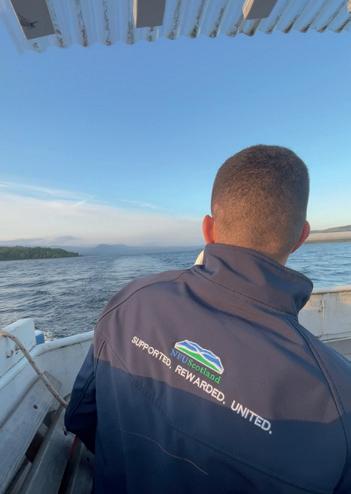
member benefi ts available, with particular interest in the ever-popular fuel card scheme.
It was a day of learning, connection, and great company which was thoroughly enjoyed by all.
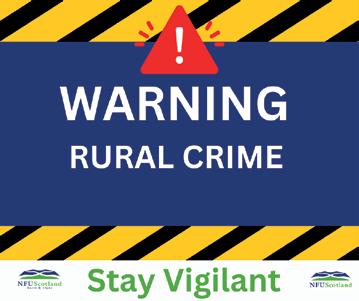

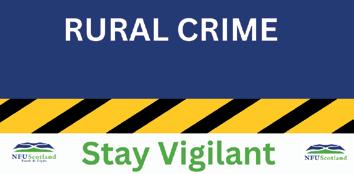

Members across the Forth and Clyde region are urged to remain alert following a recent increase in rural crime reports. Incidents include the theft of machinery, fuel and livestock, with farms and rural properties being particularly targeted. We strongly encourage all members to review their security measures, including lighting, locks, CCTV and signage. Report any suspicious activity to Police Scotland immediately. Members are also encouraged to sign up to Rural Watch for local crime updates and alerts: www.ruralwatchscotland.co.uk










